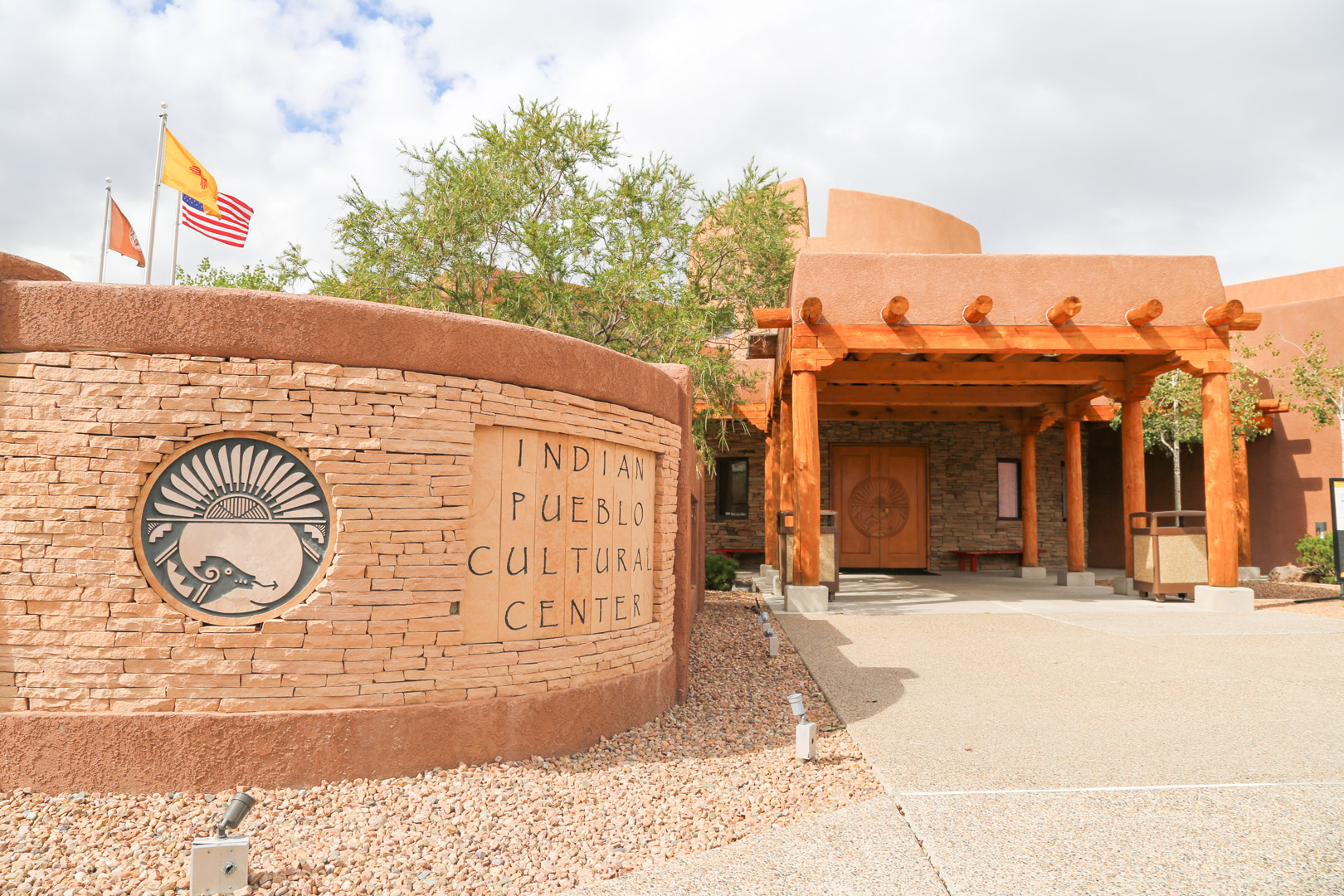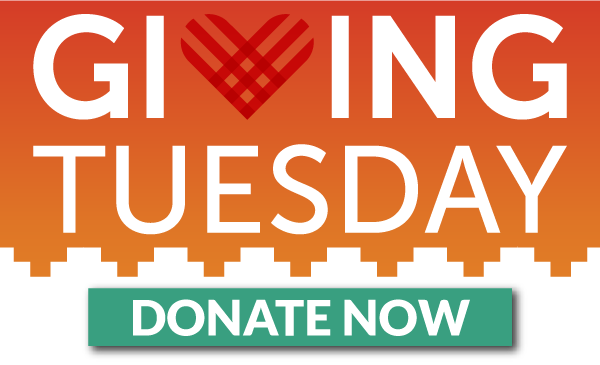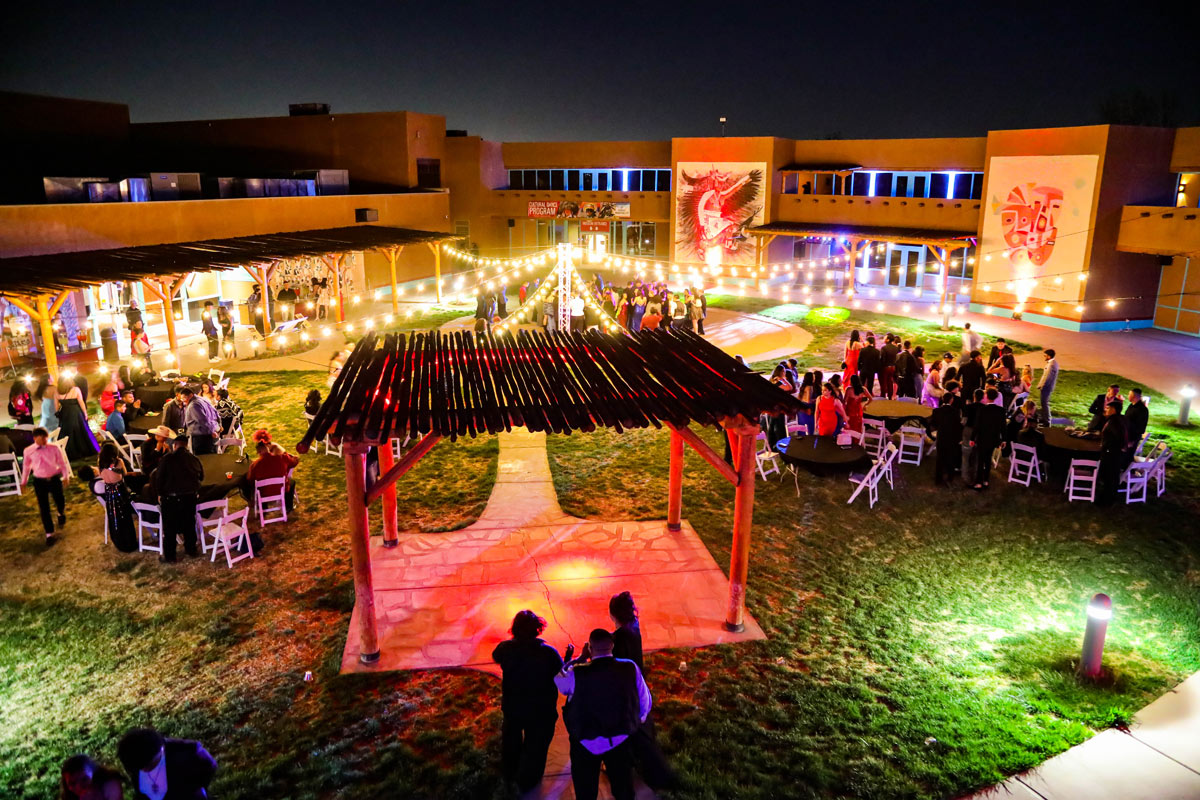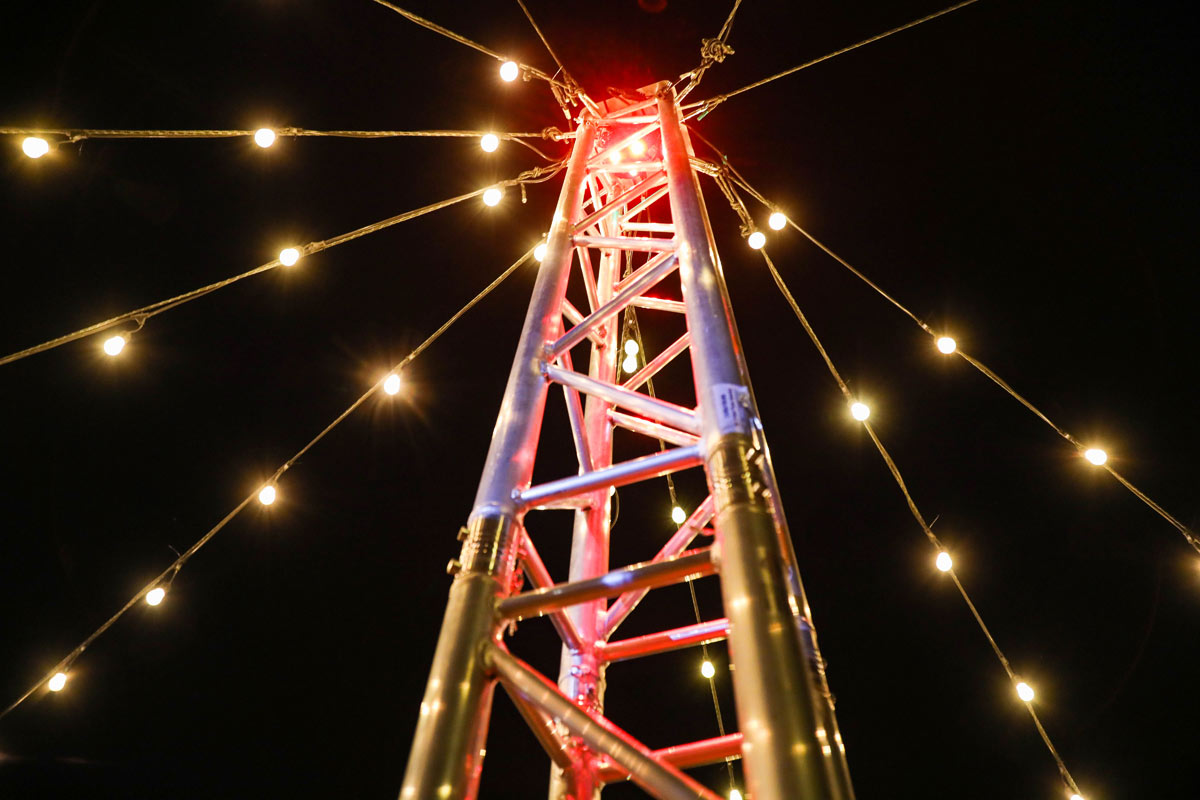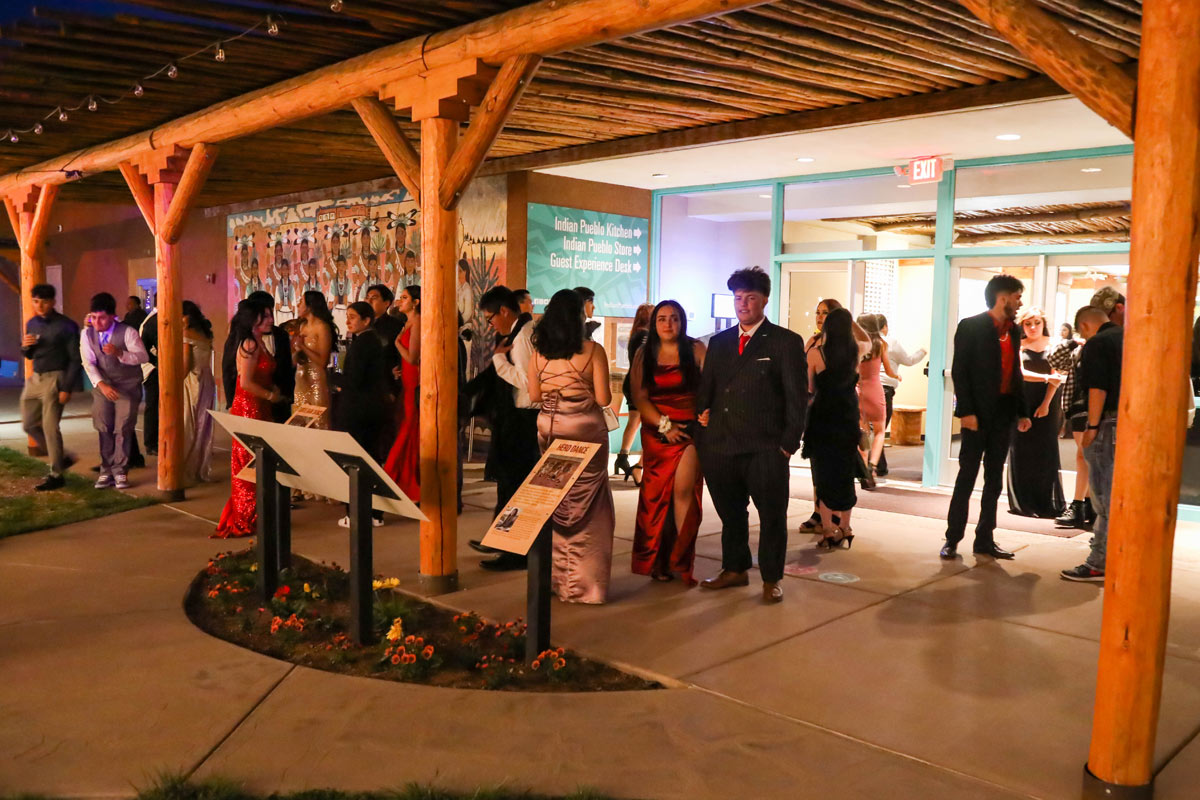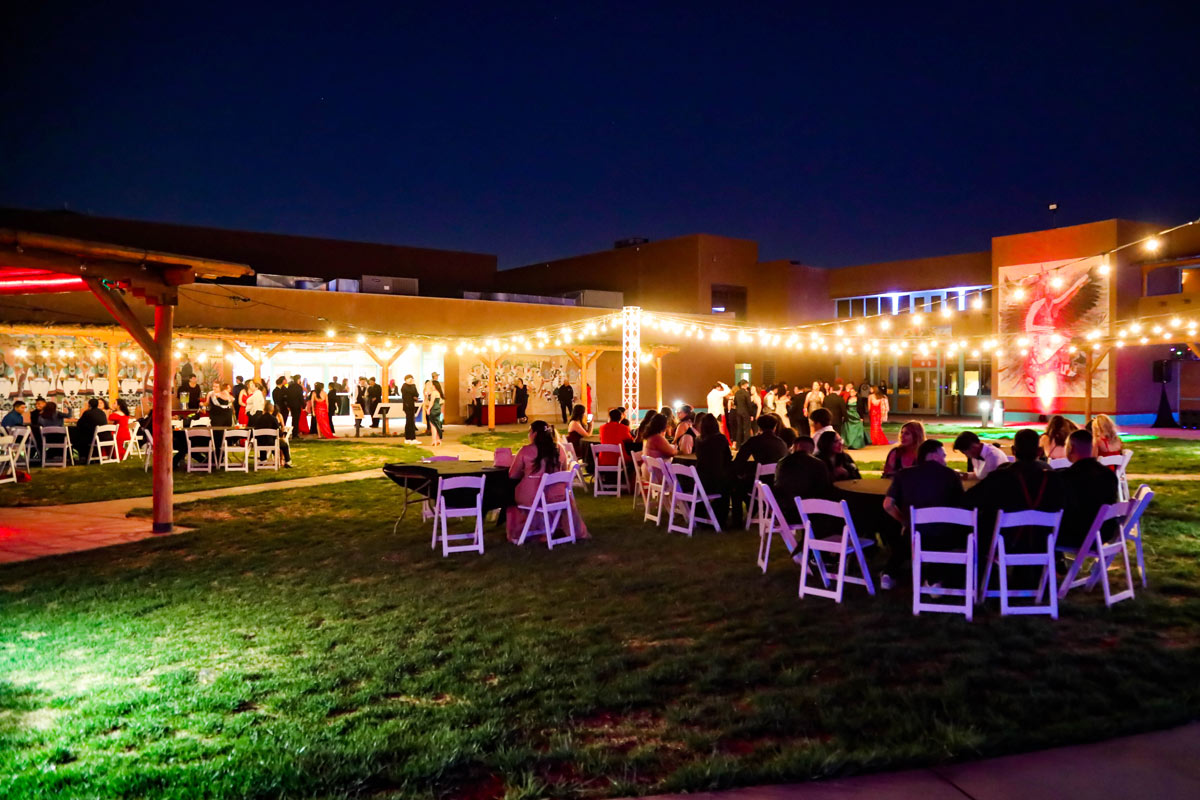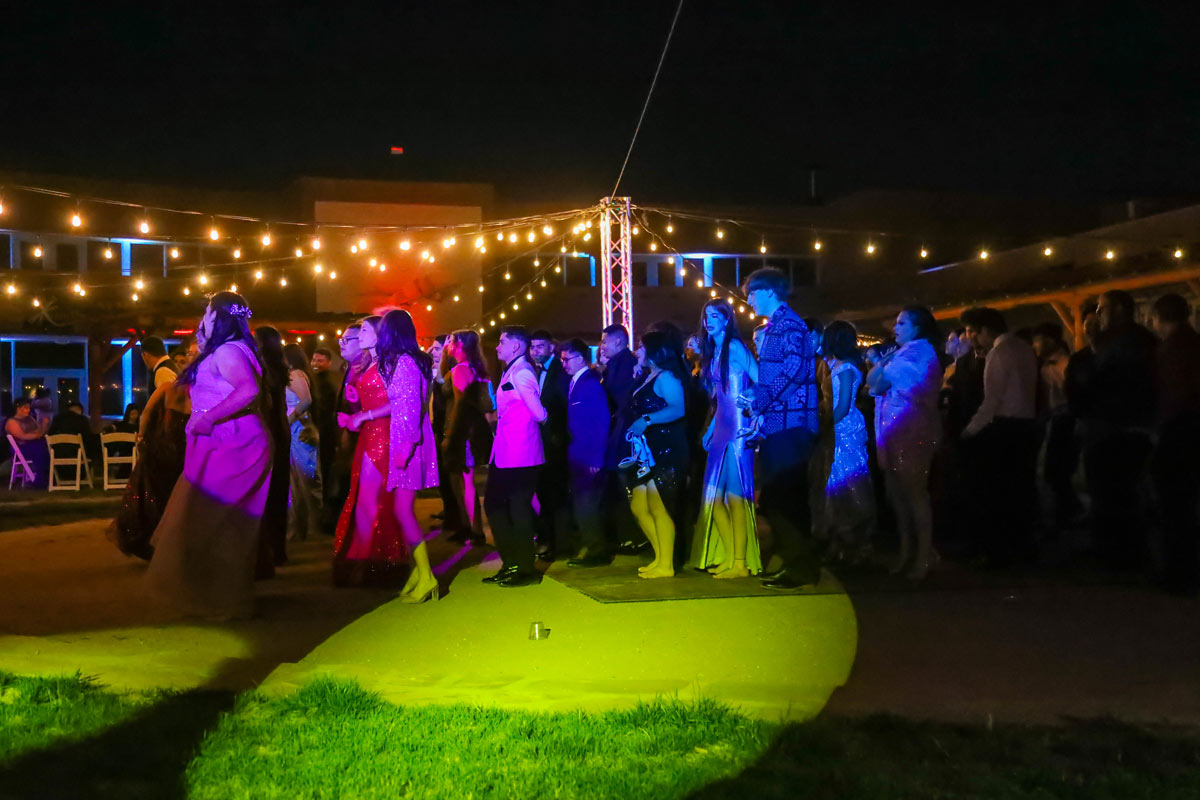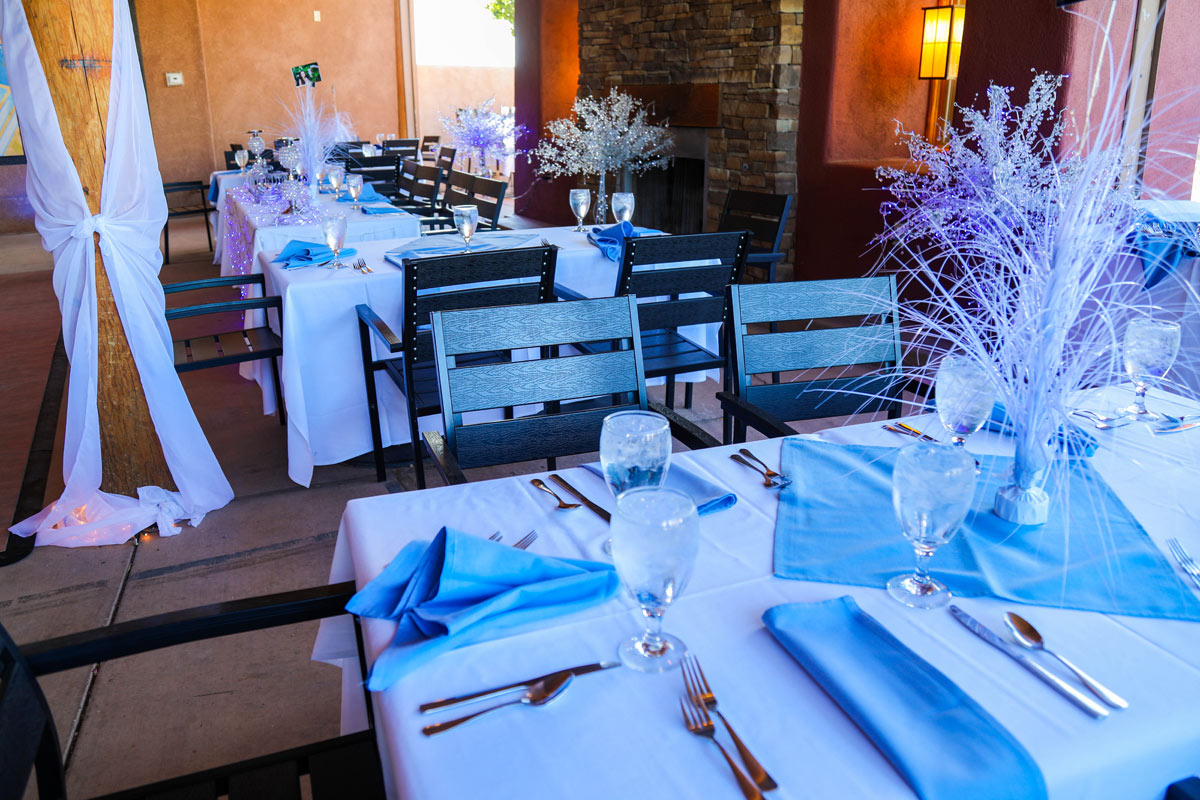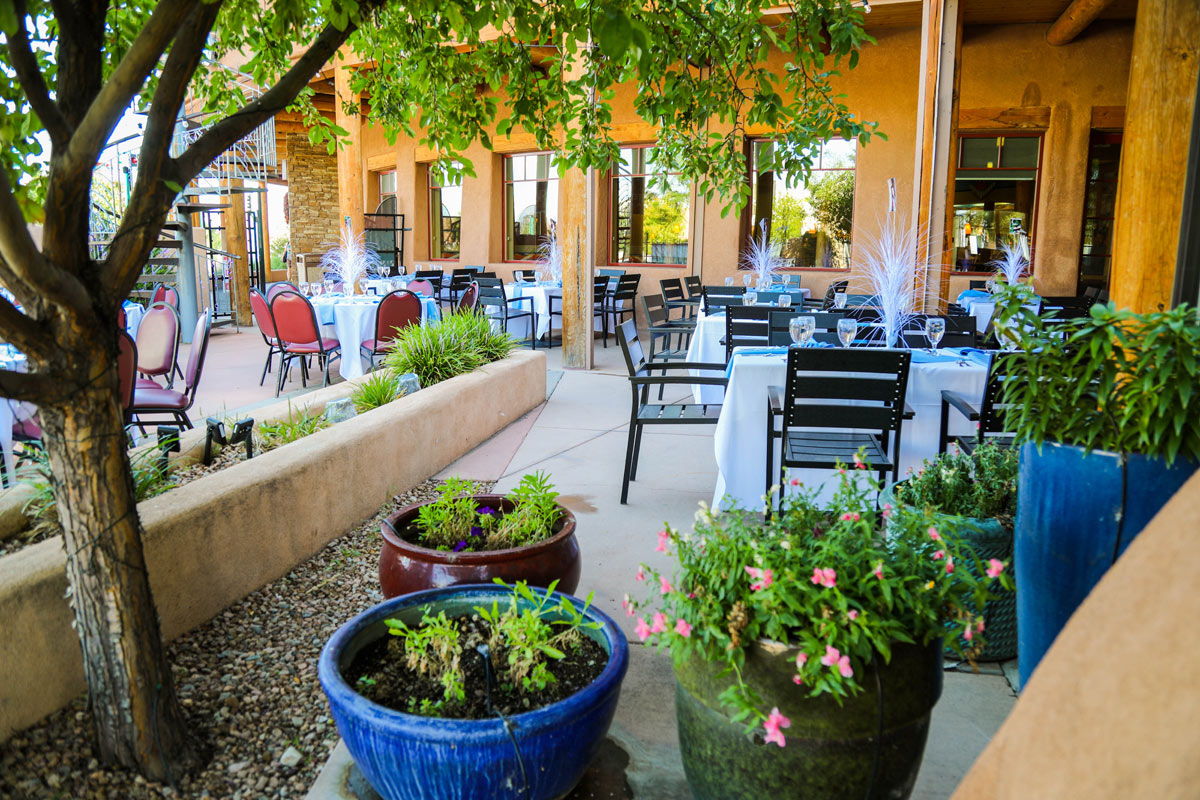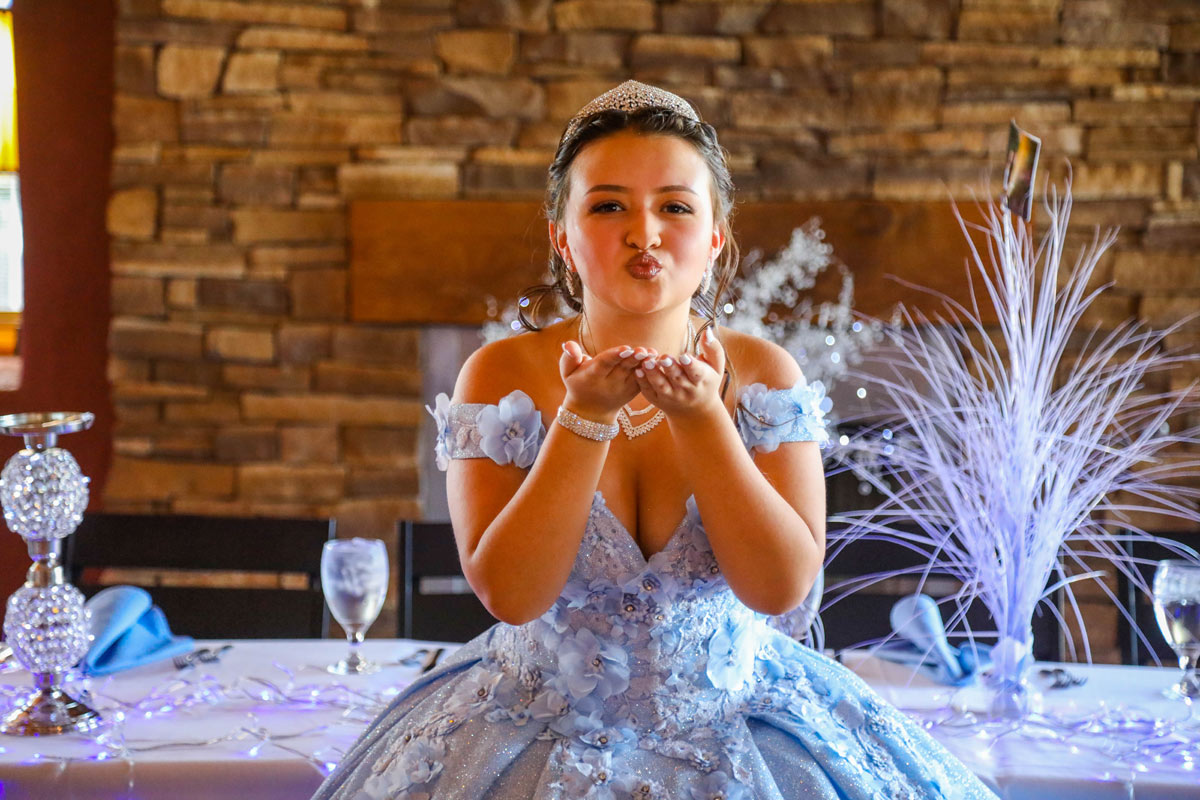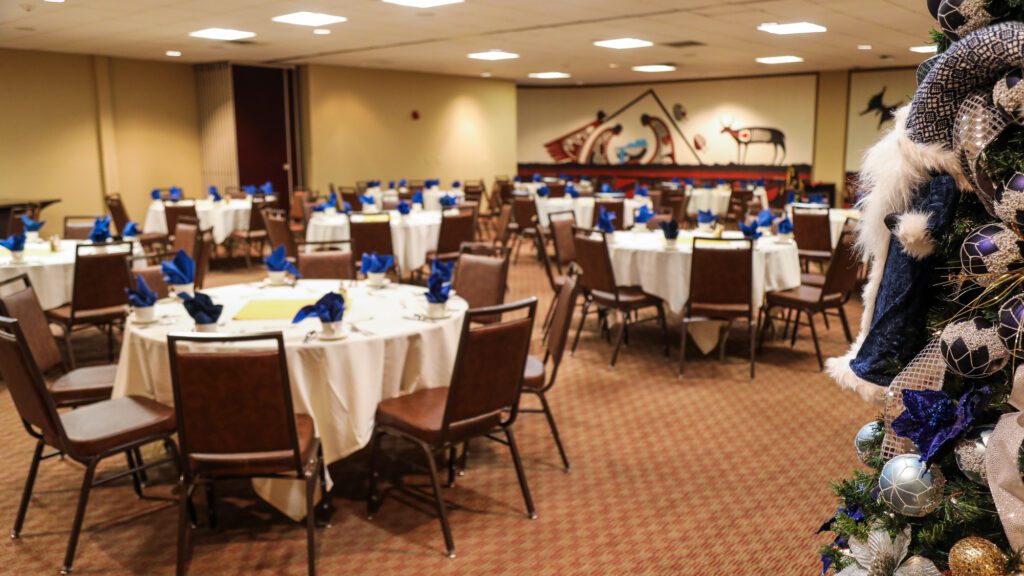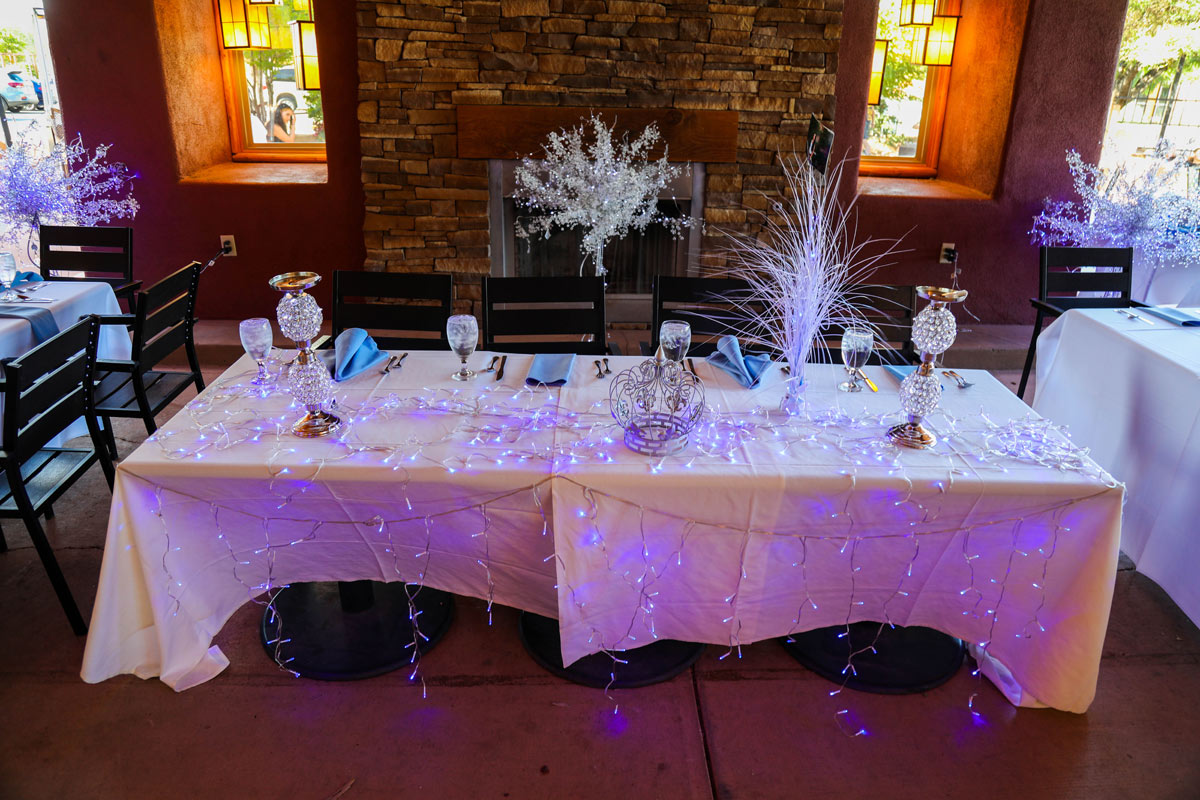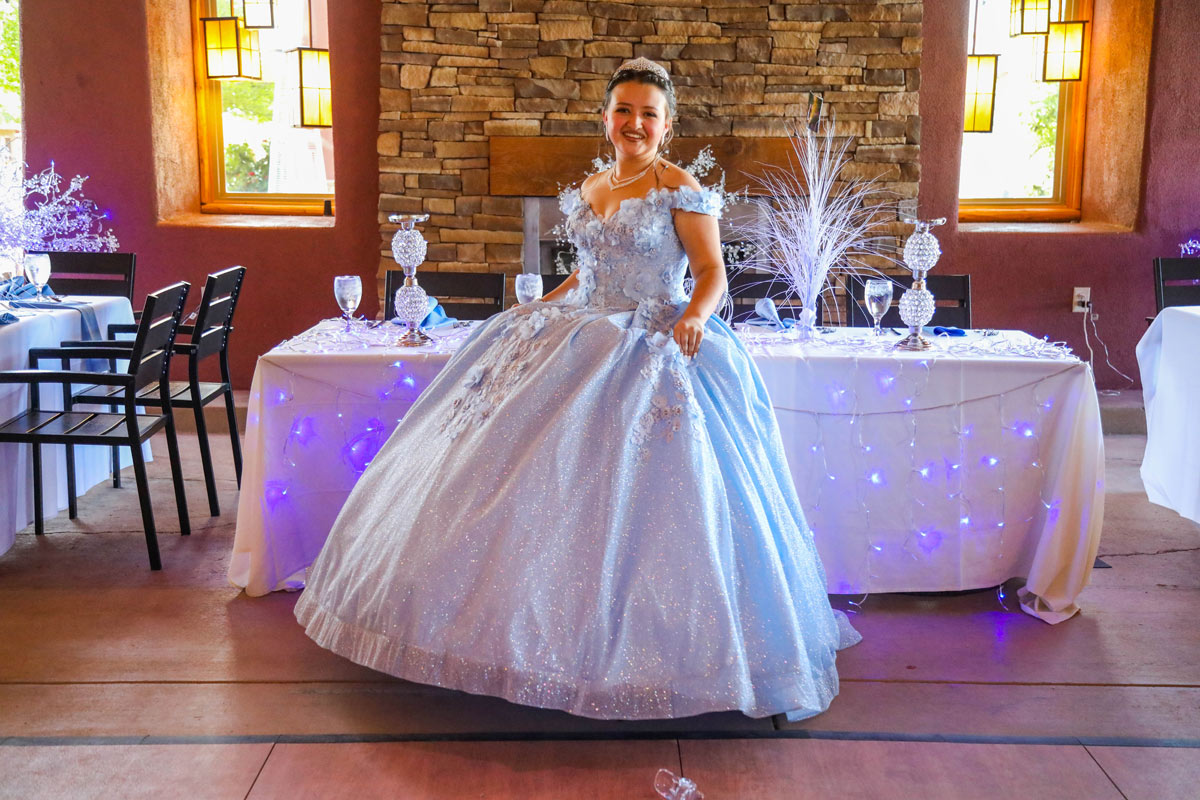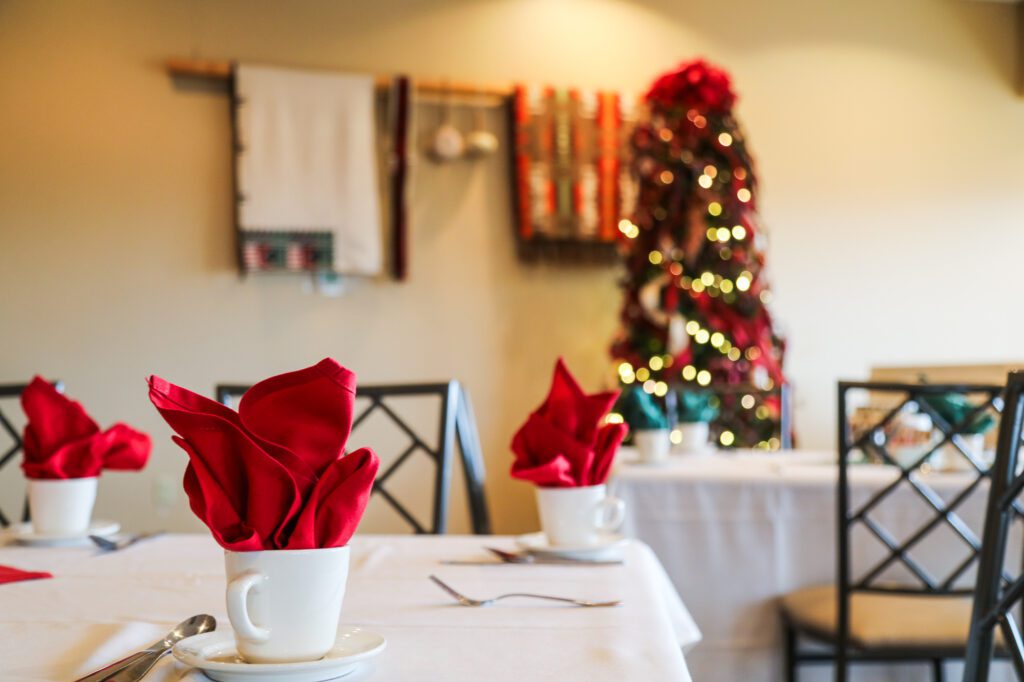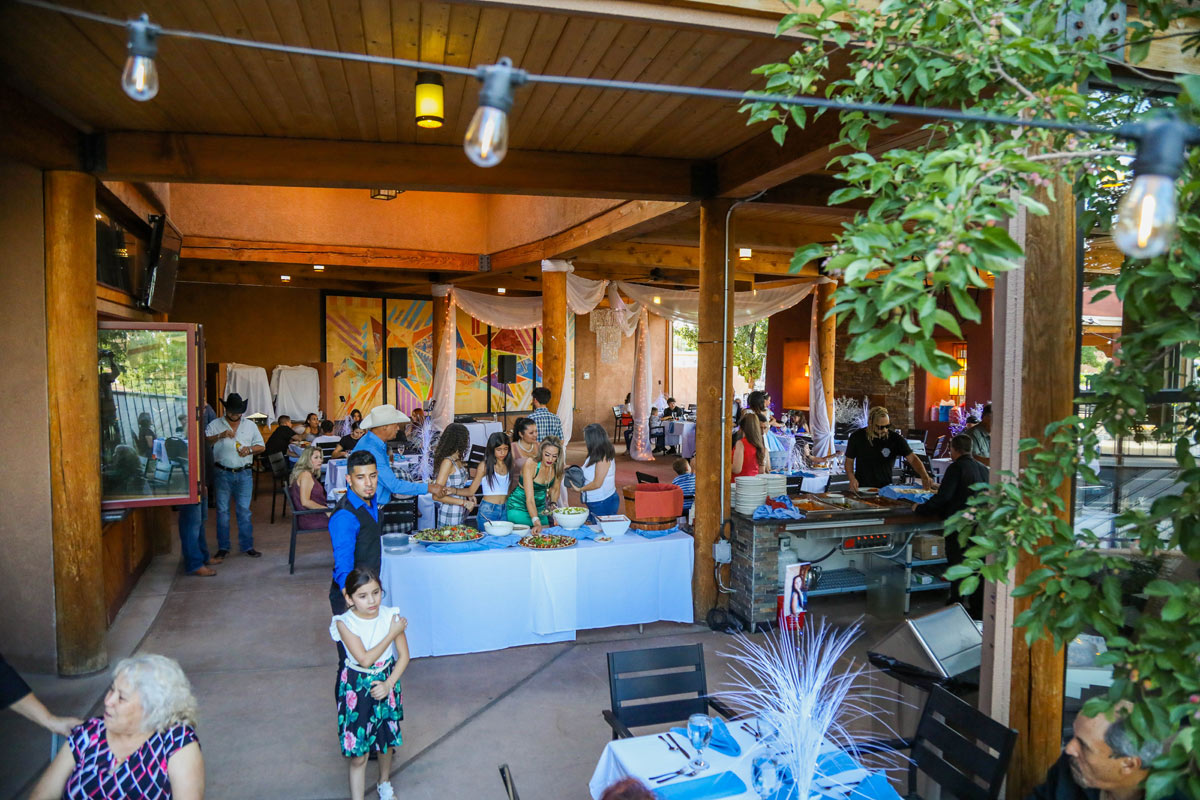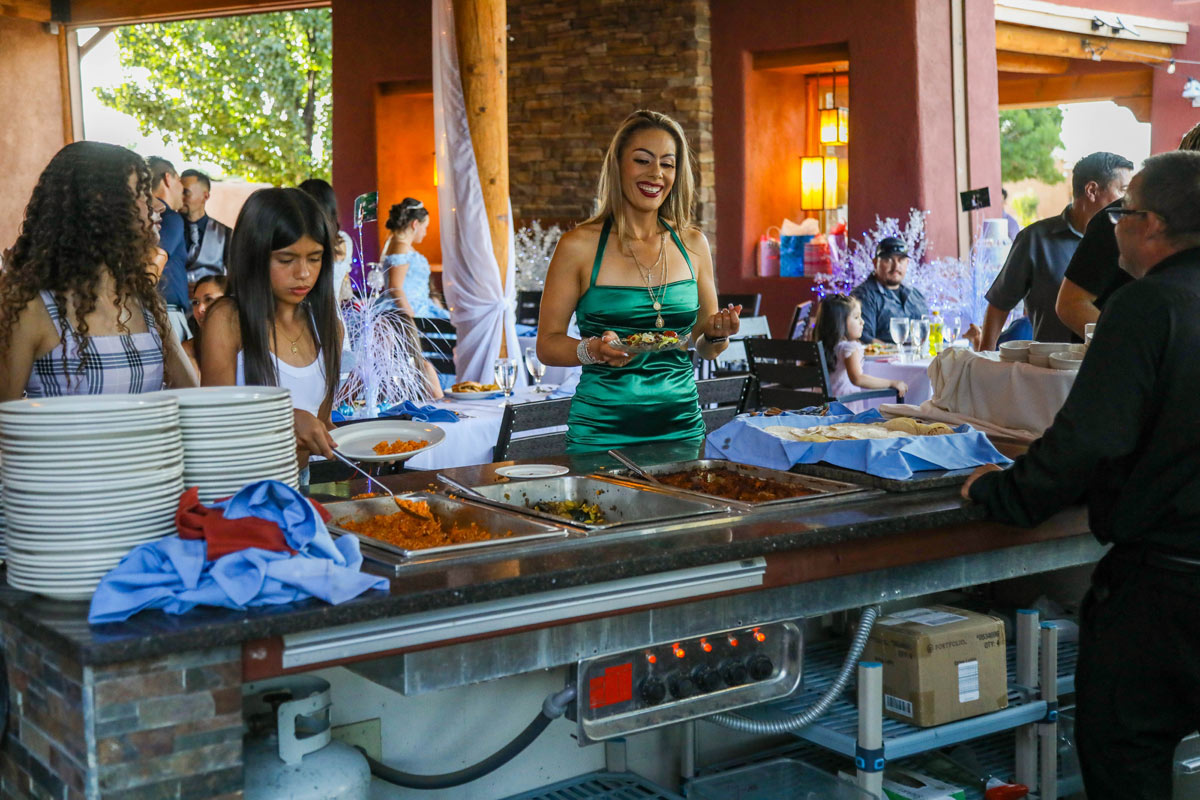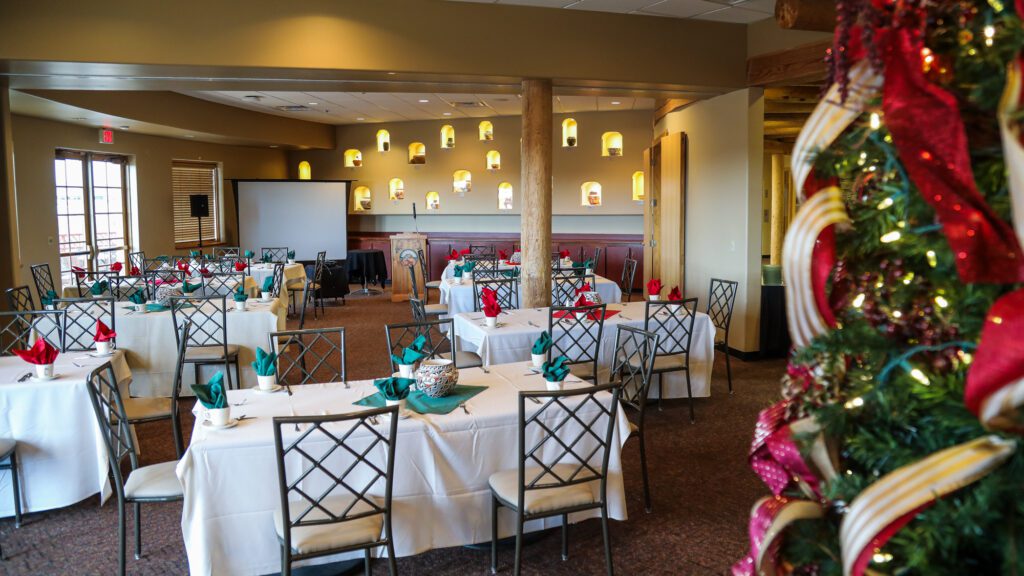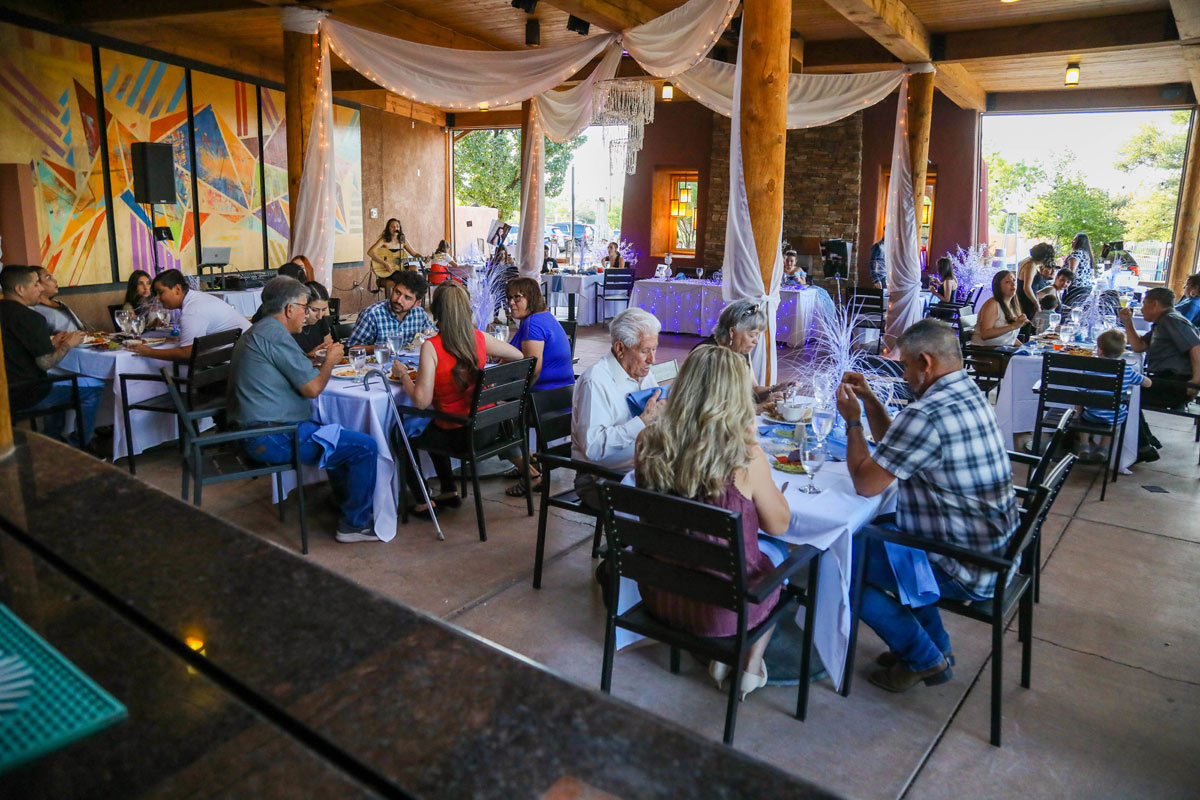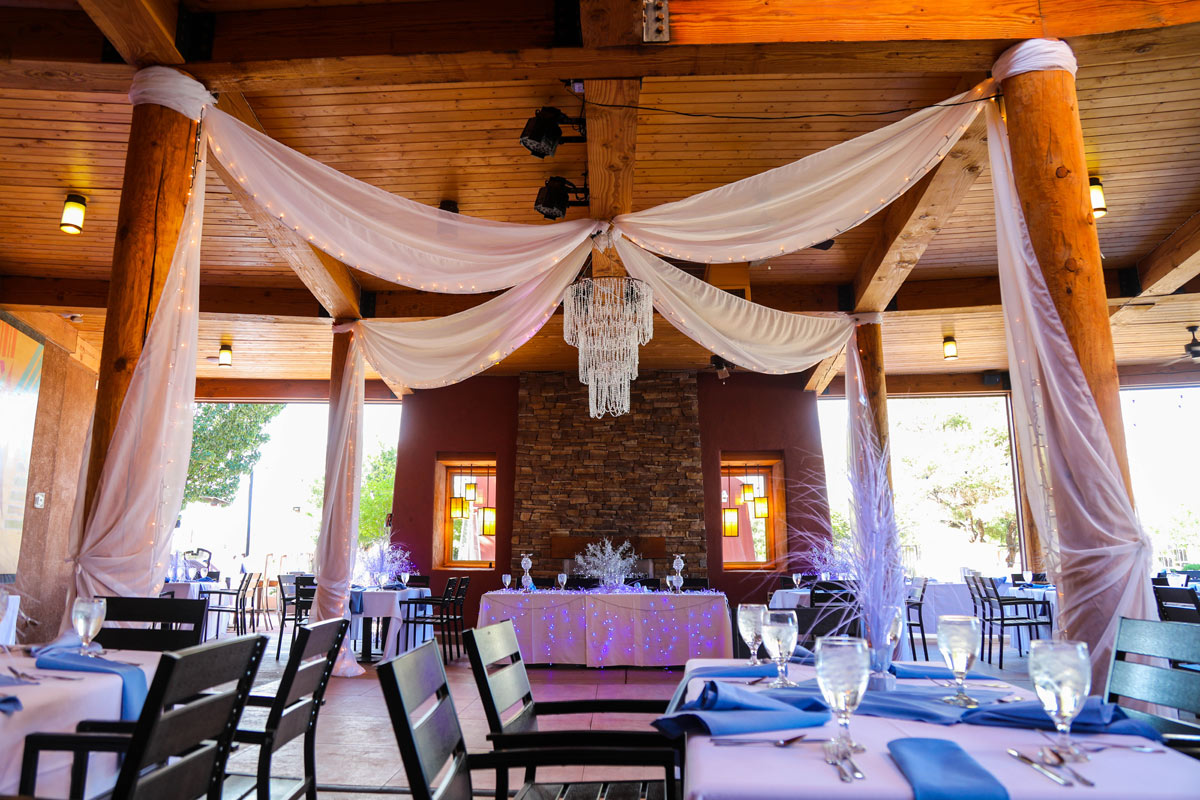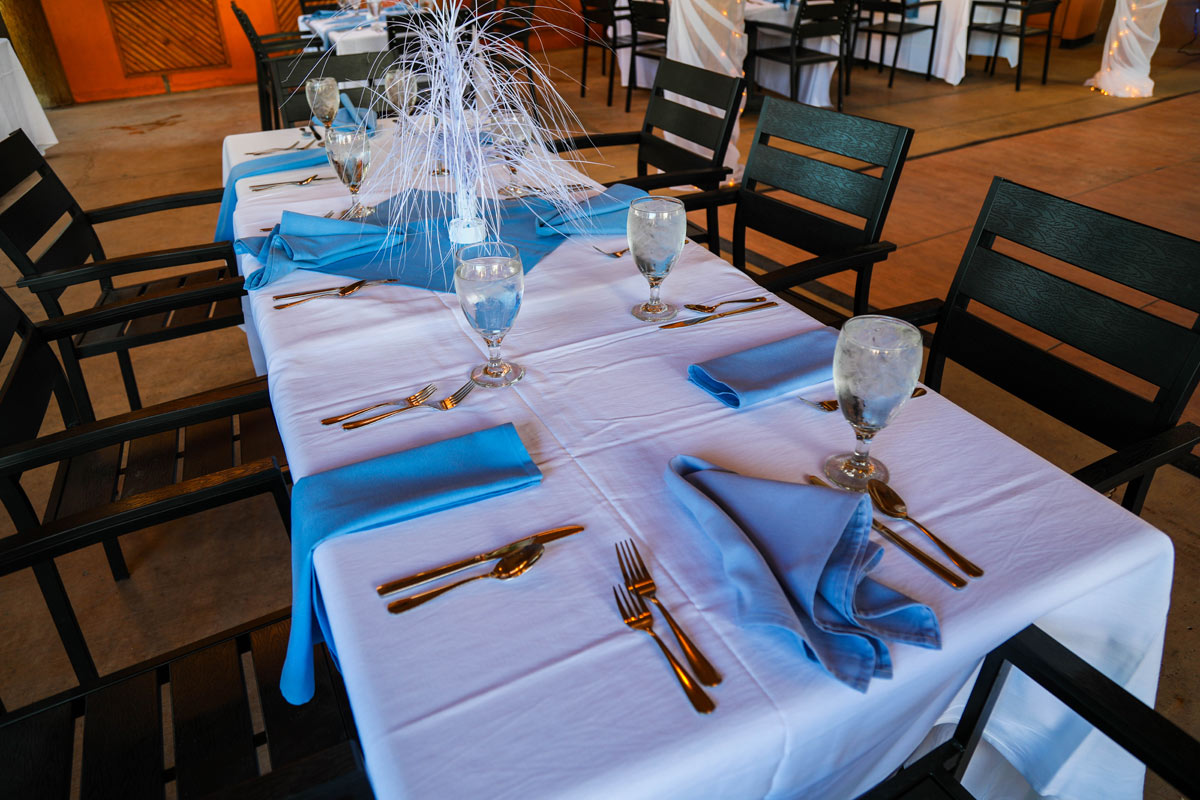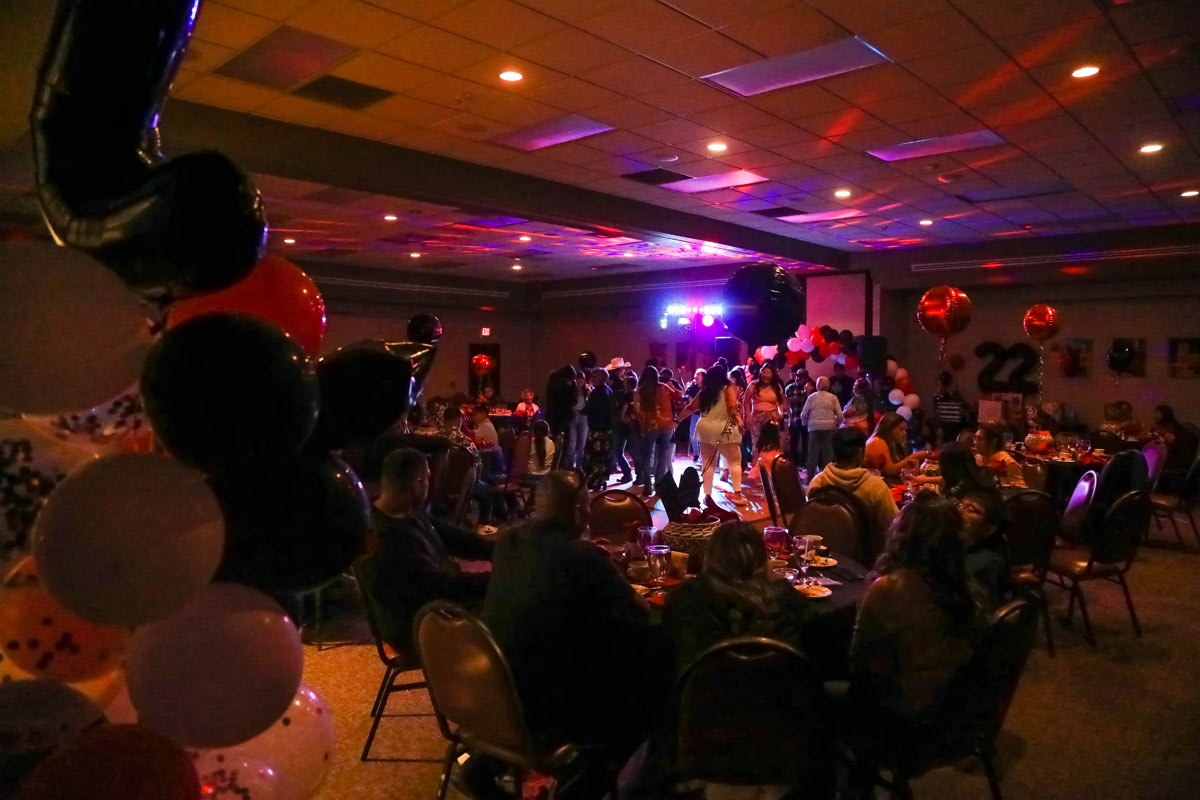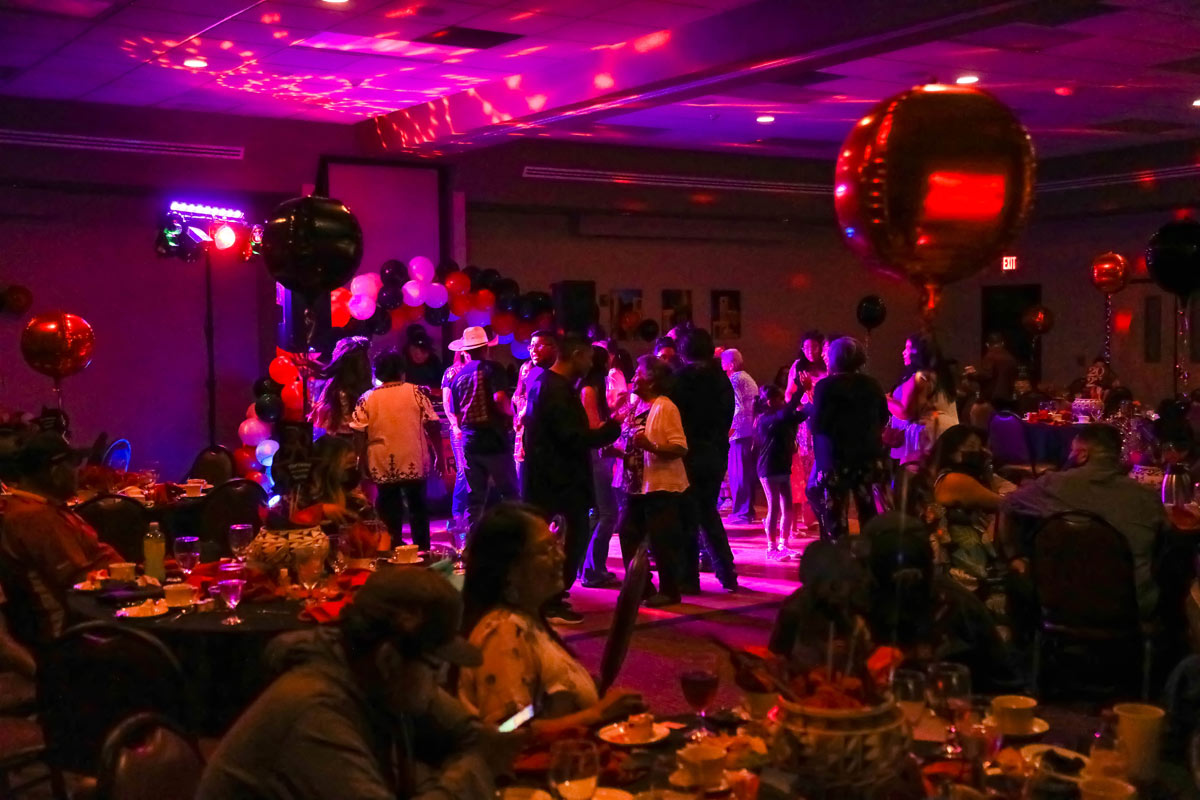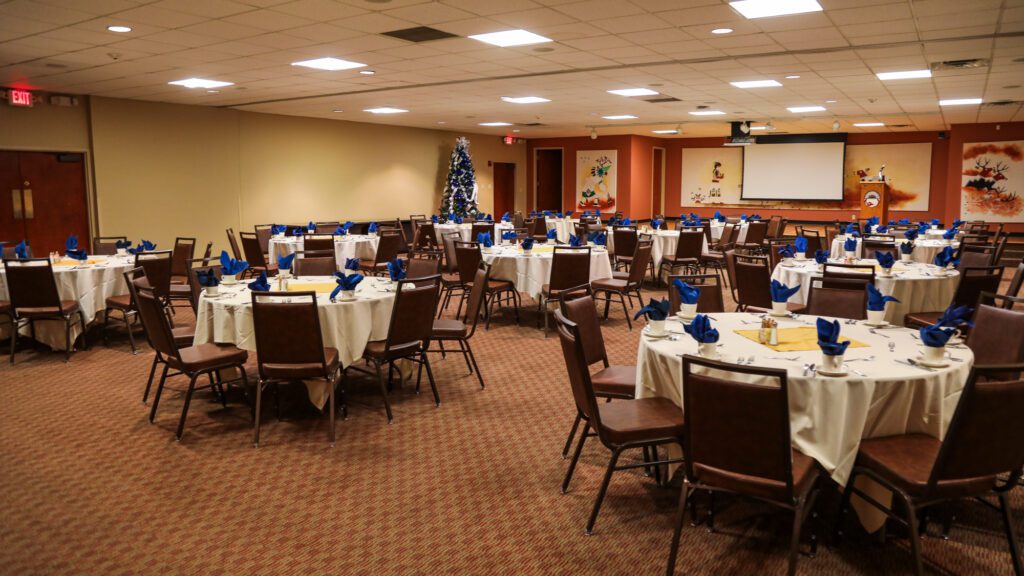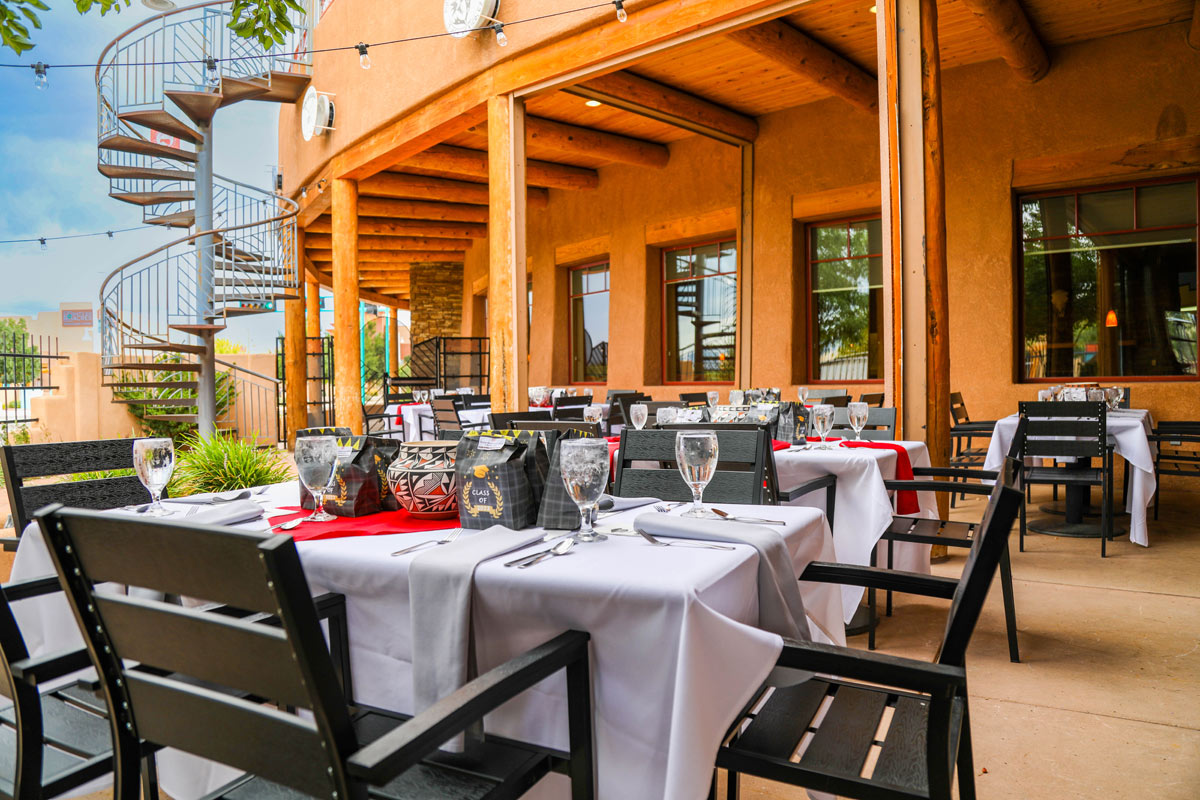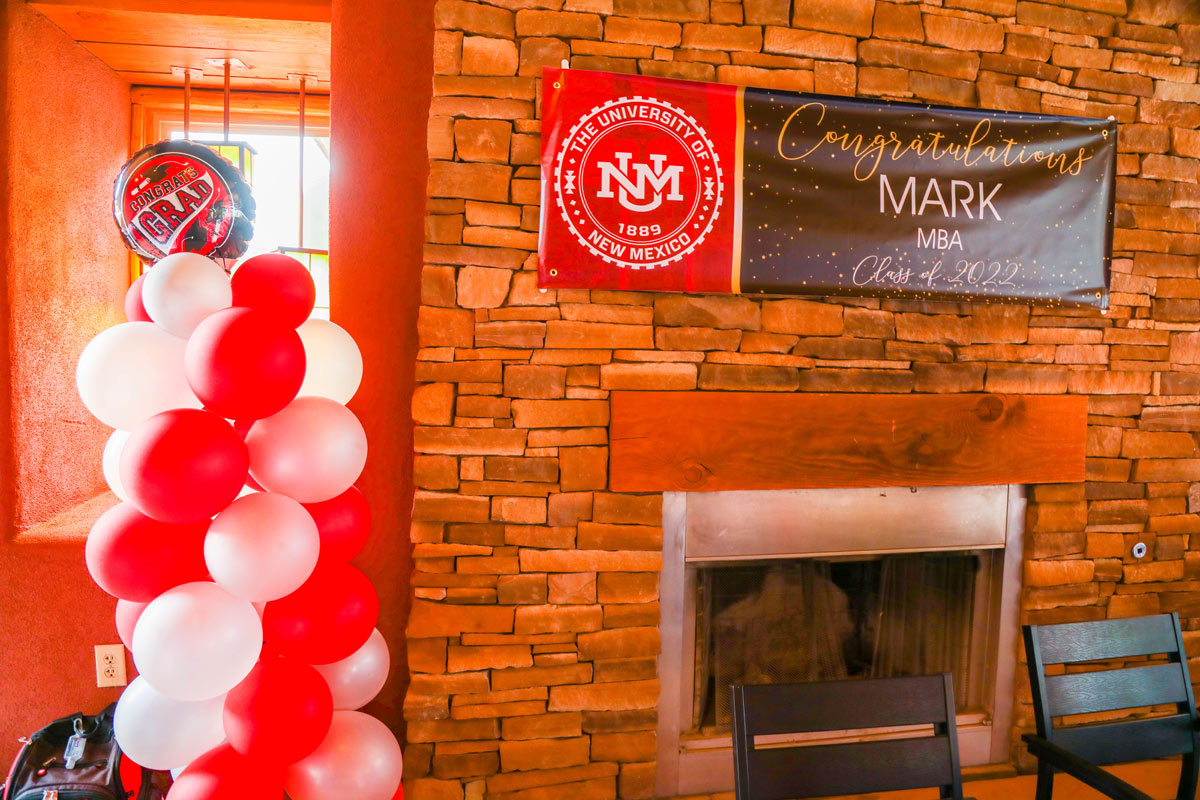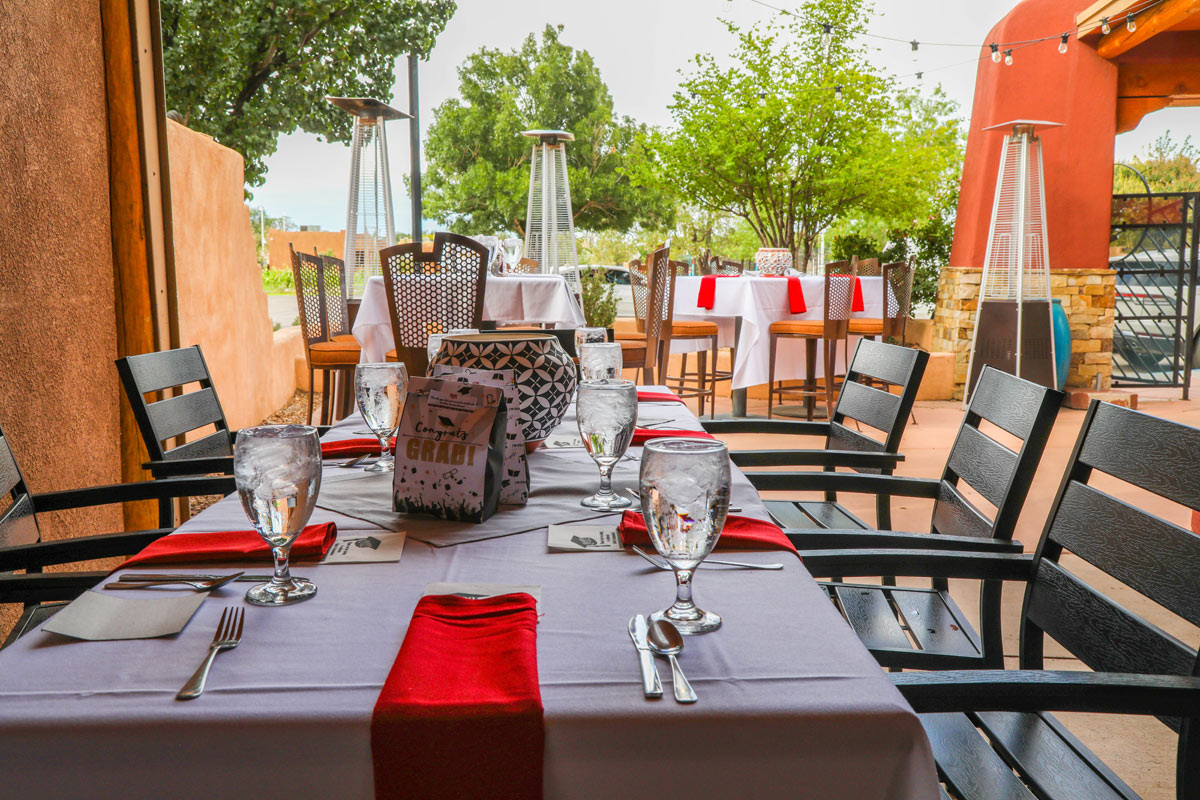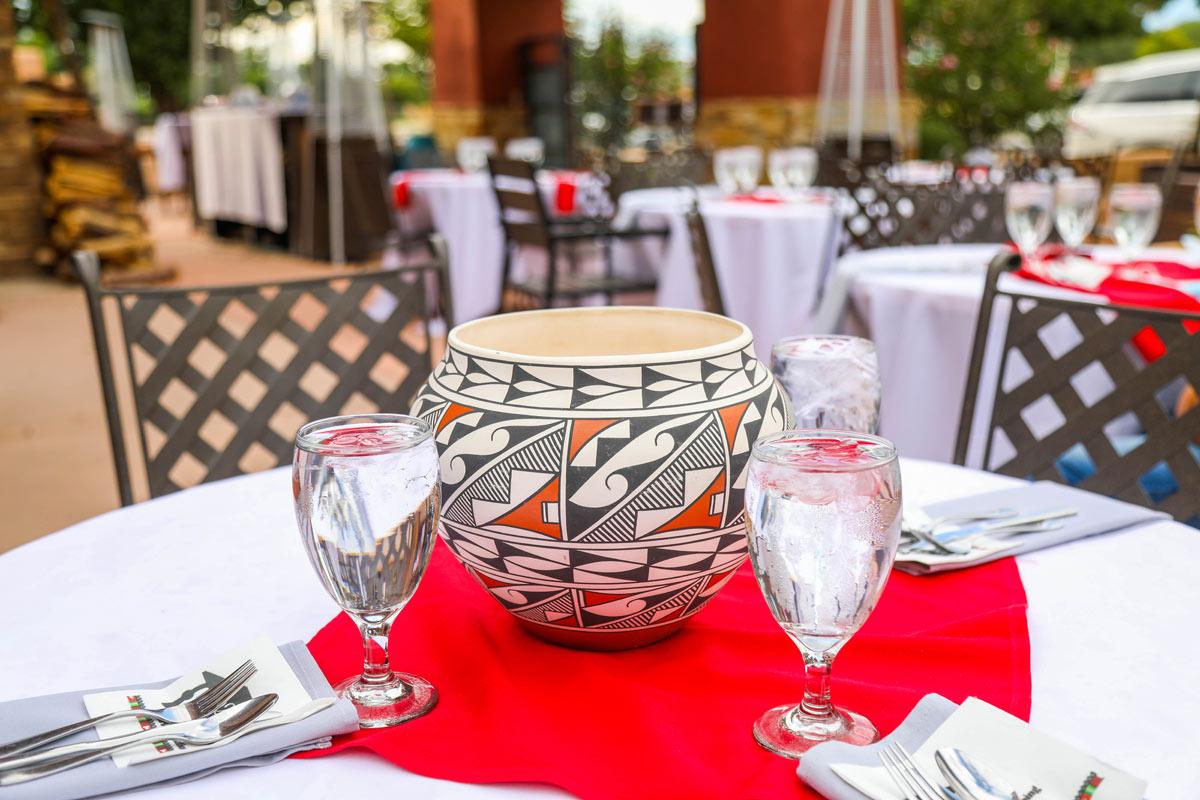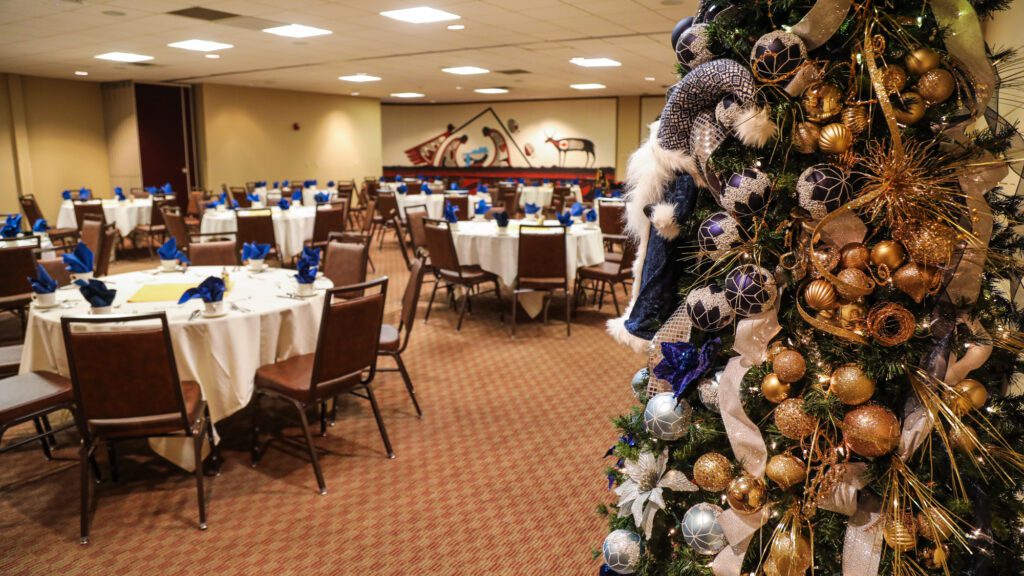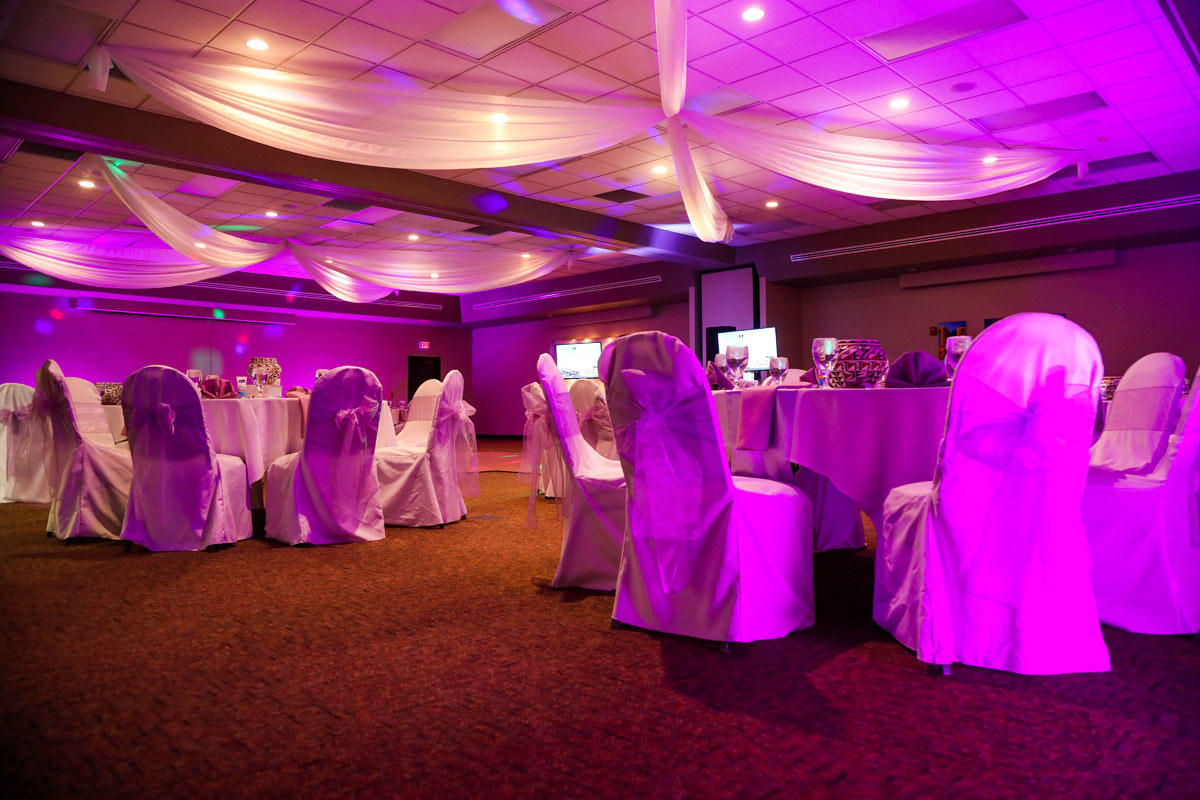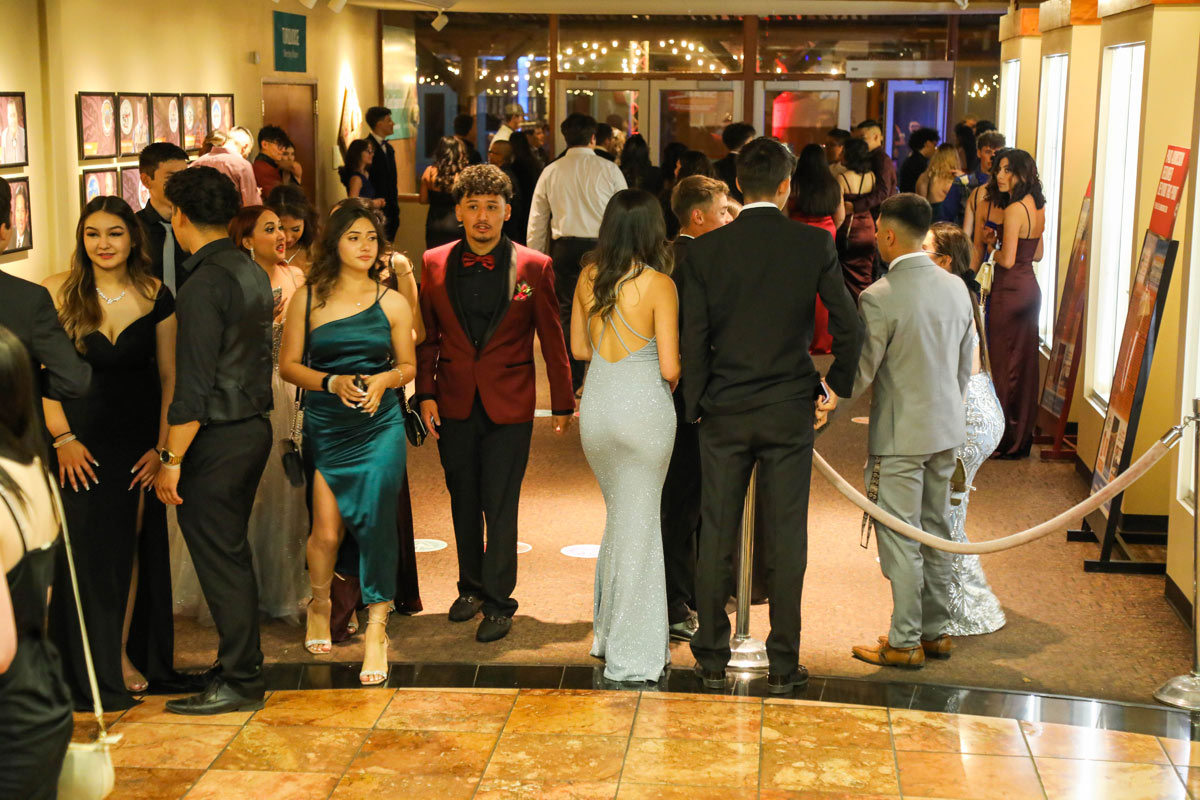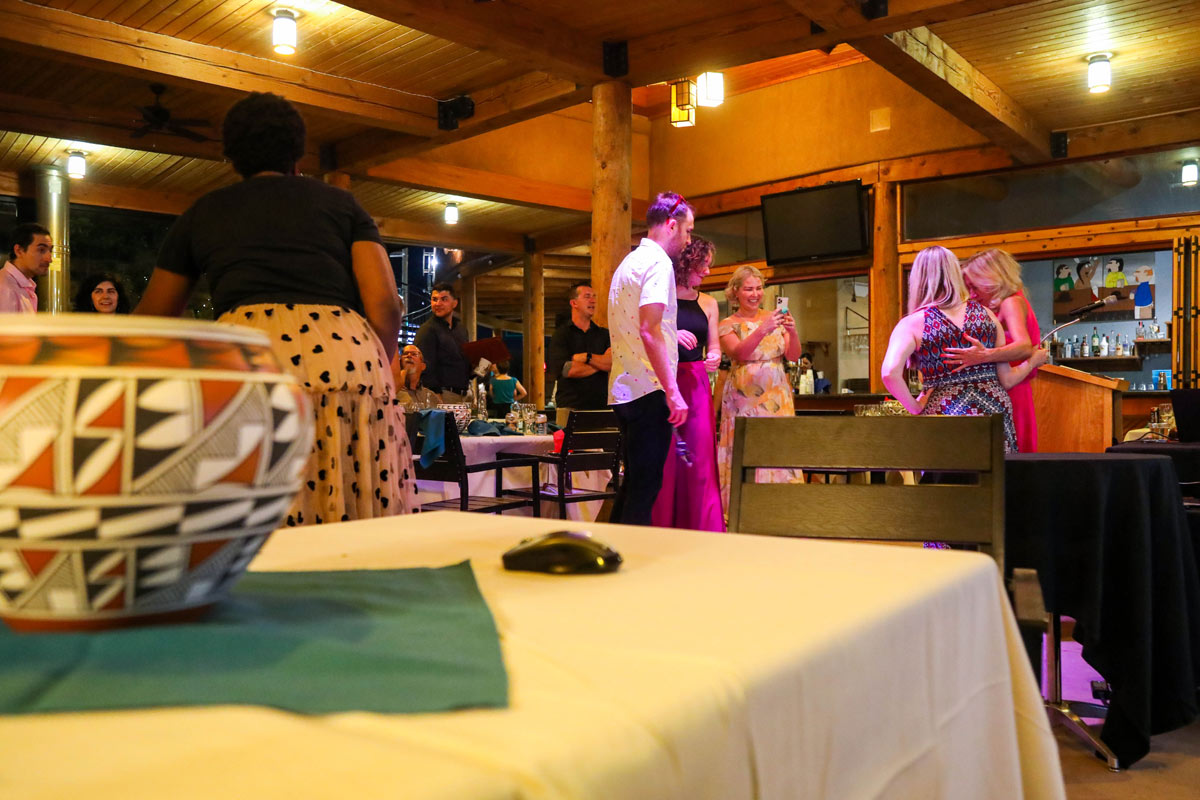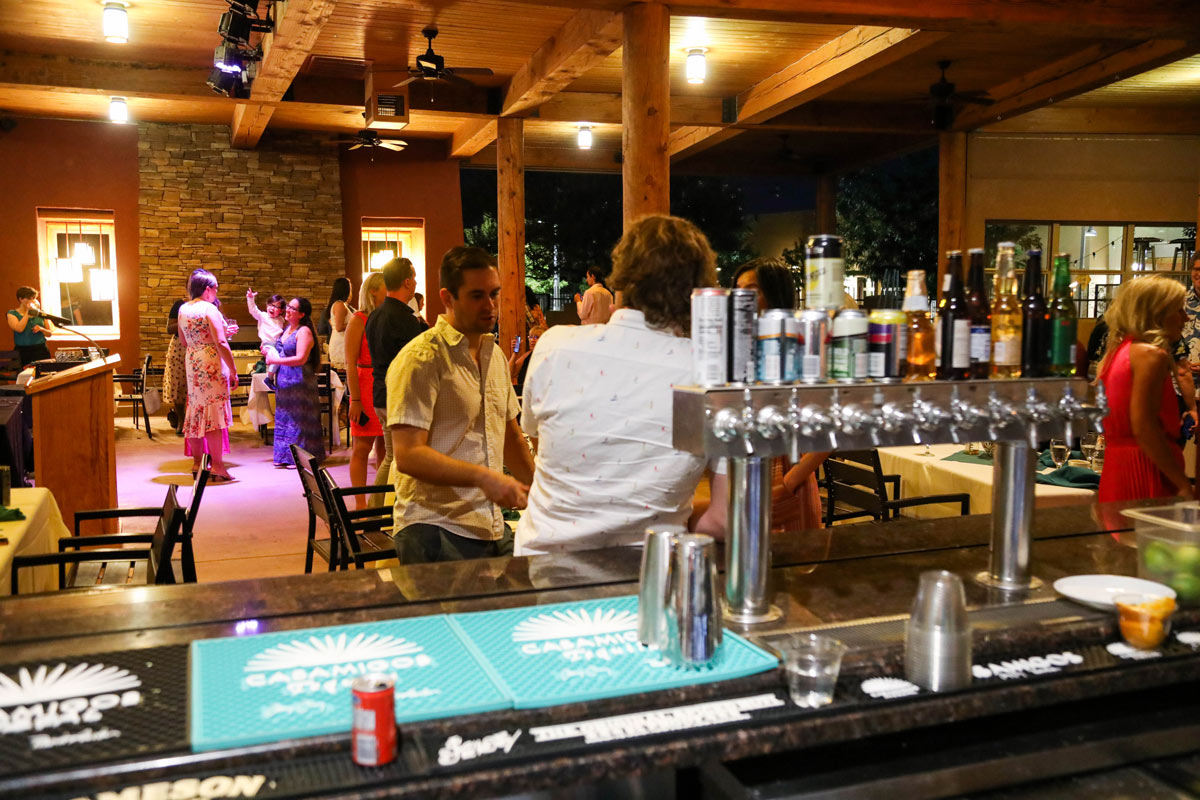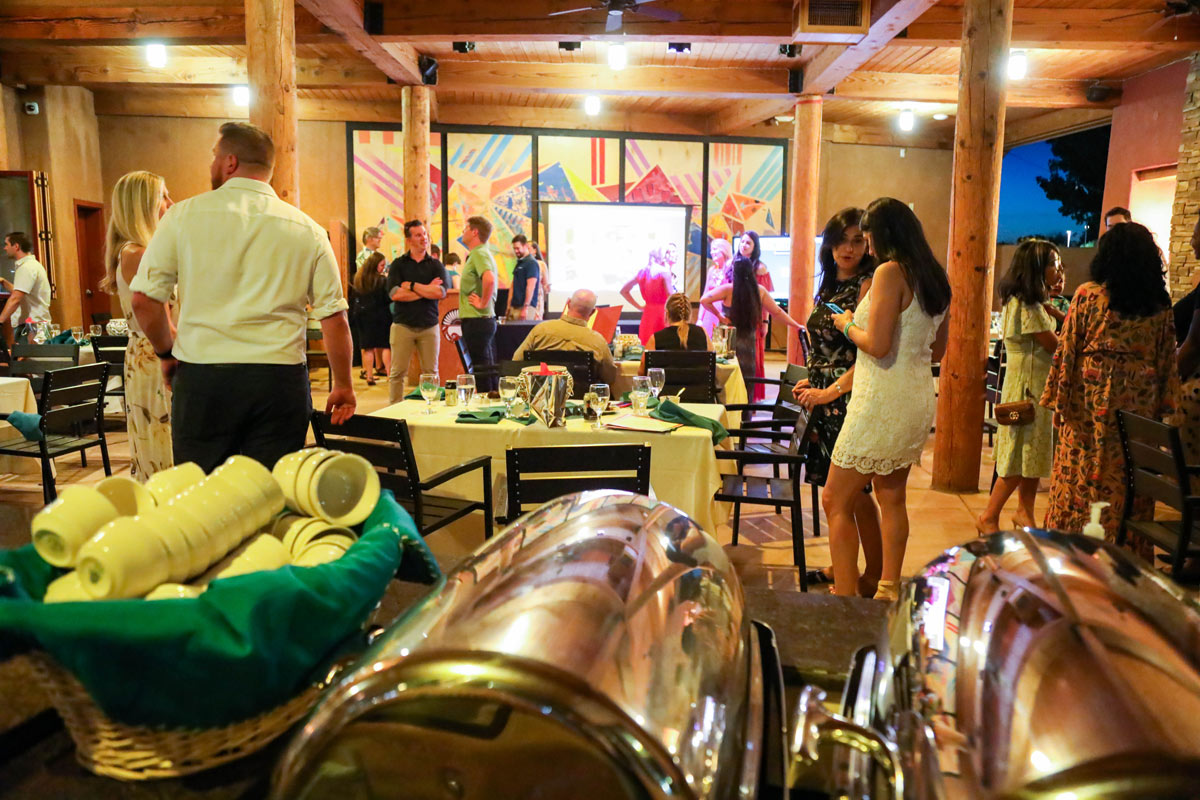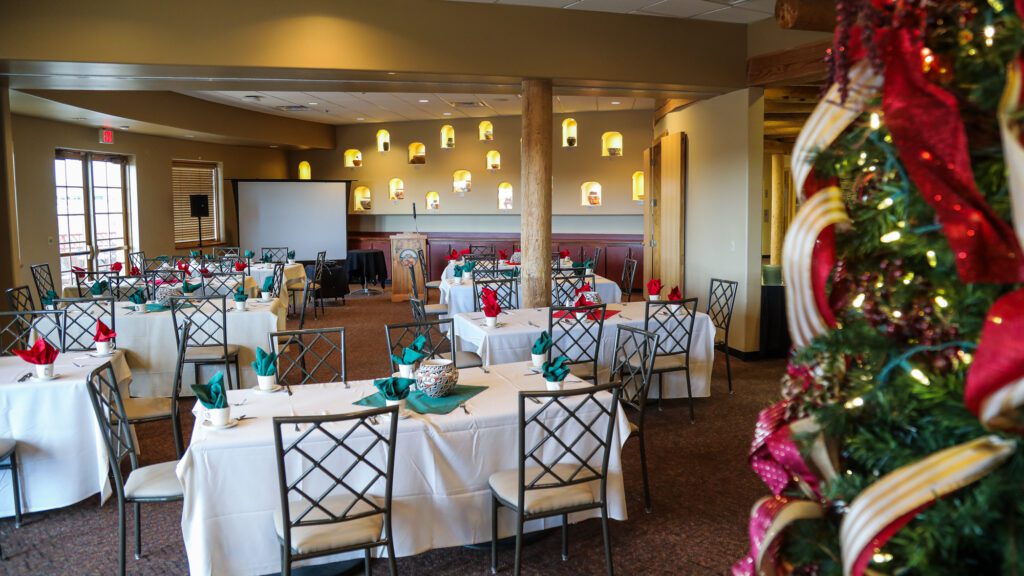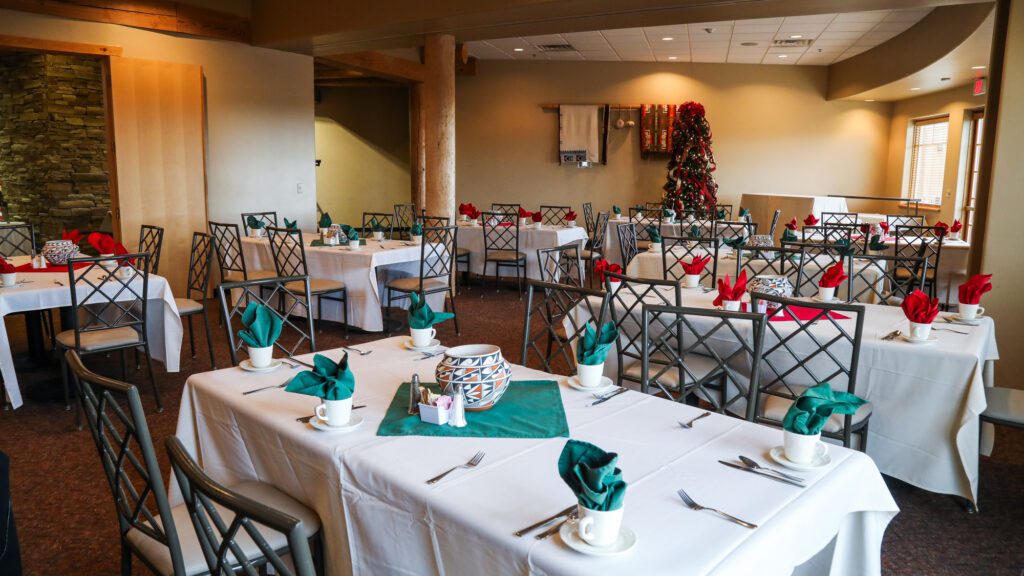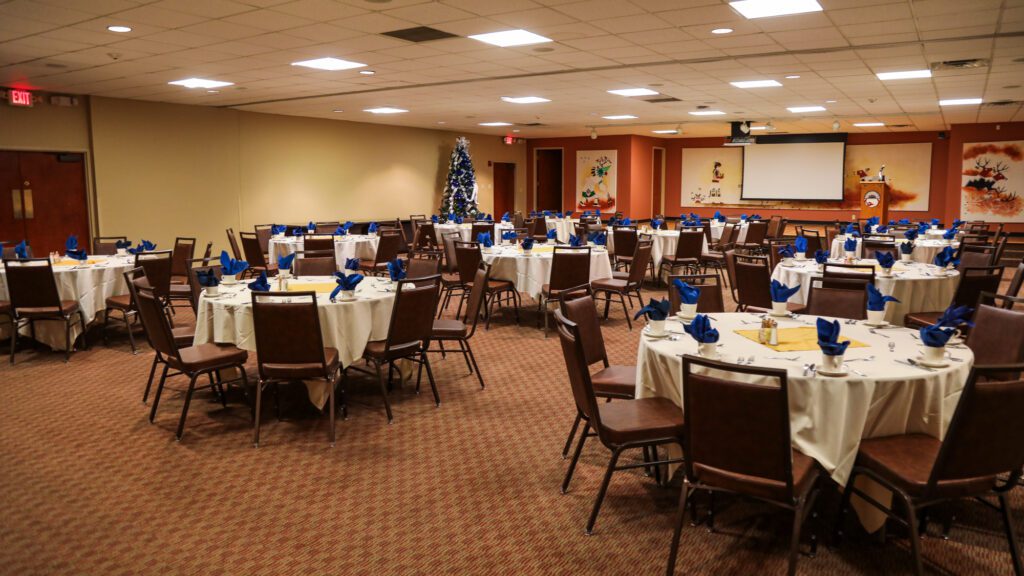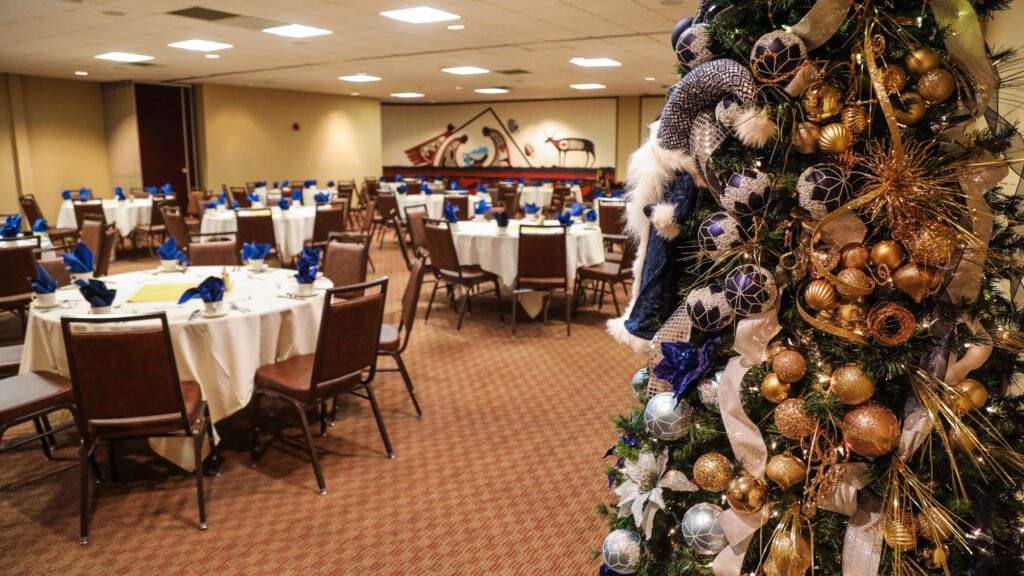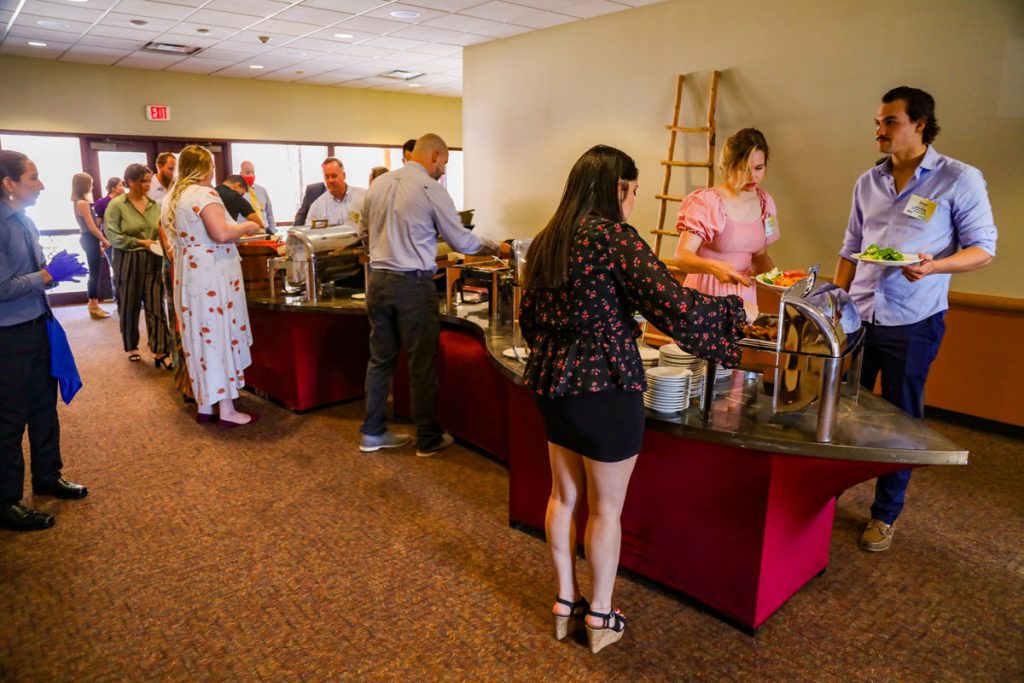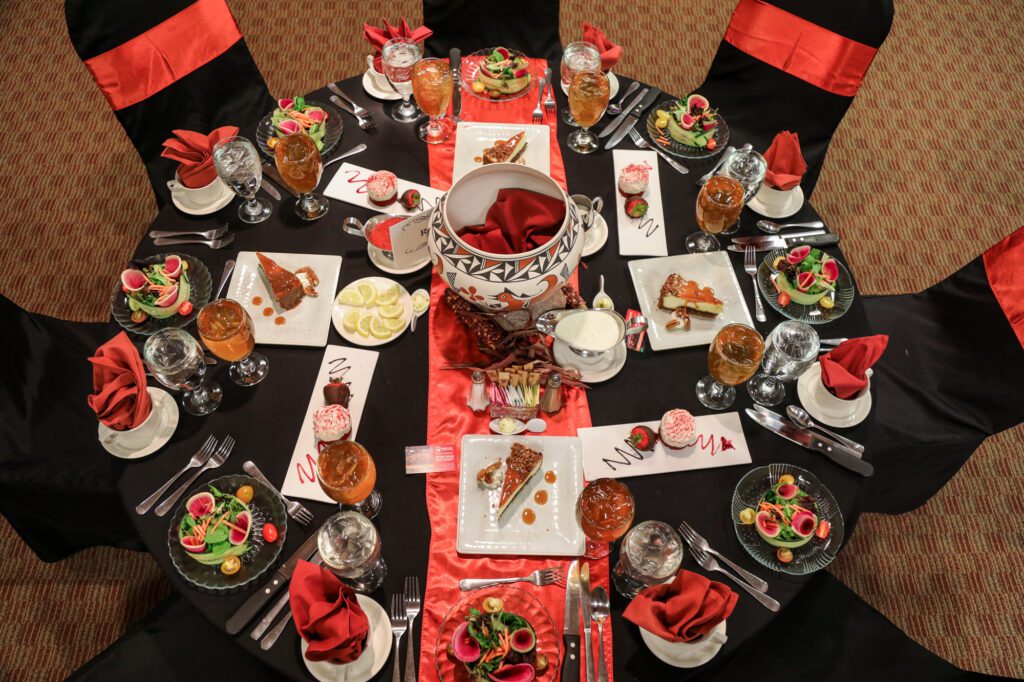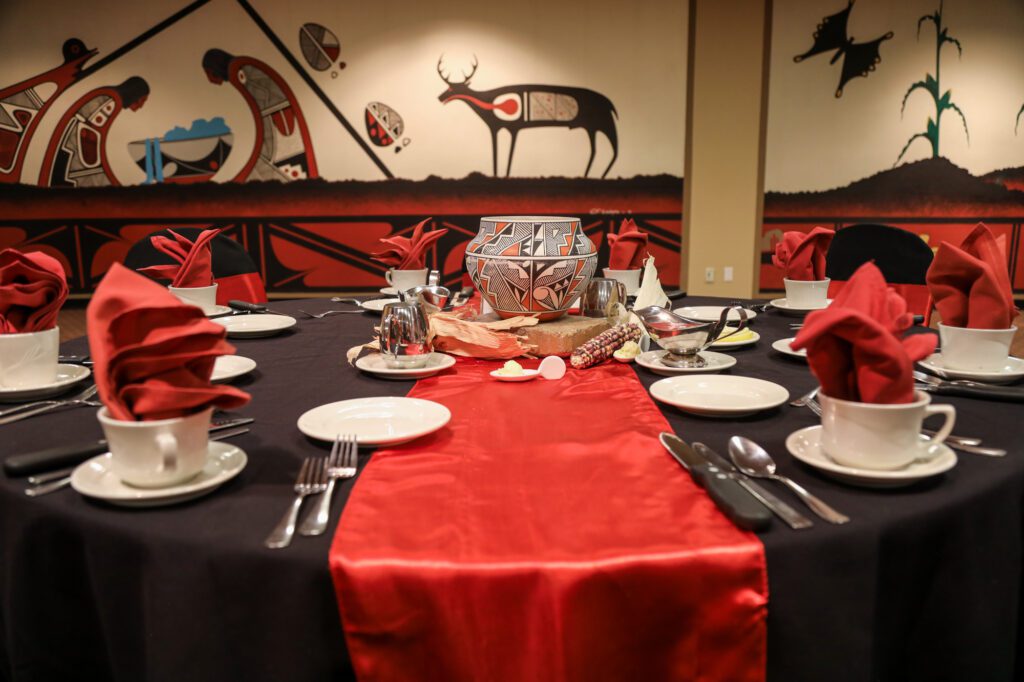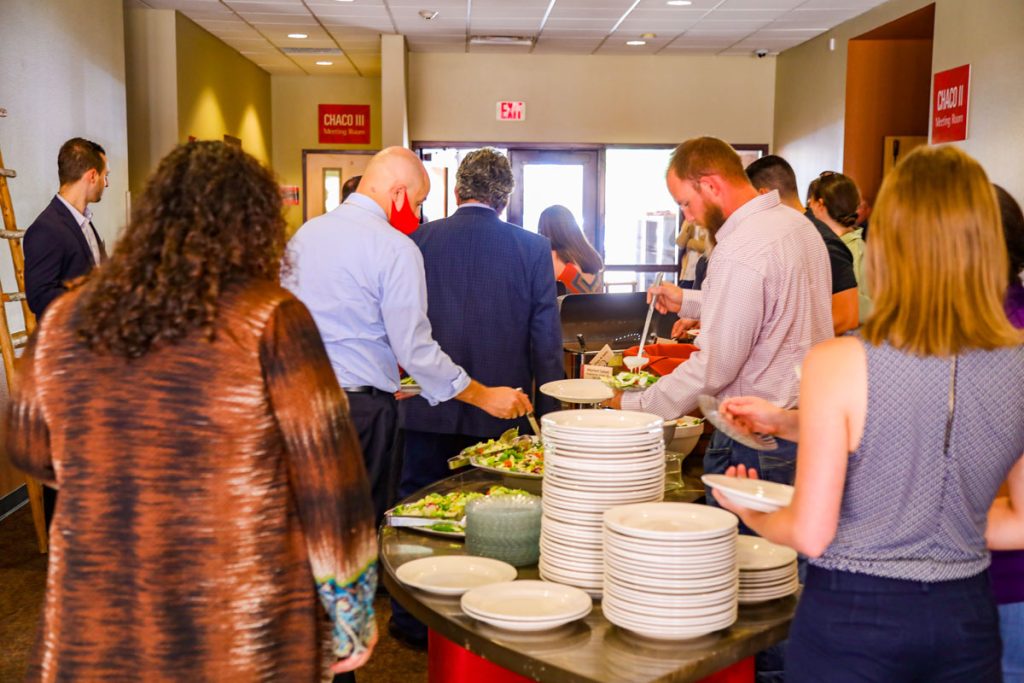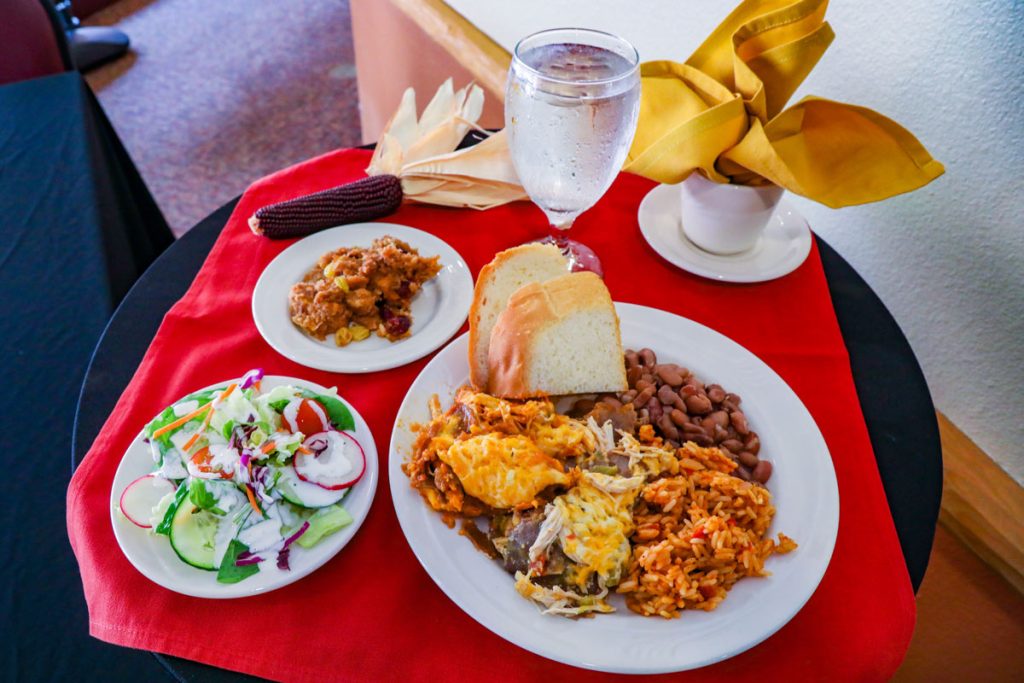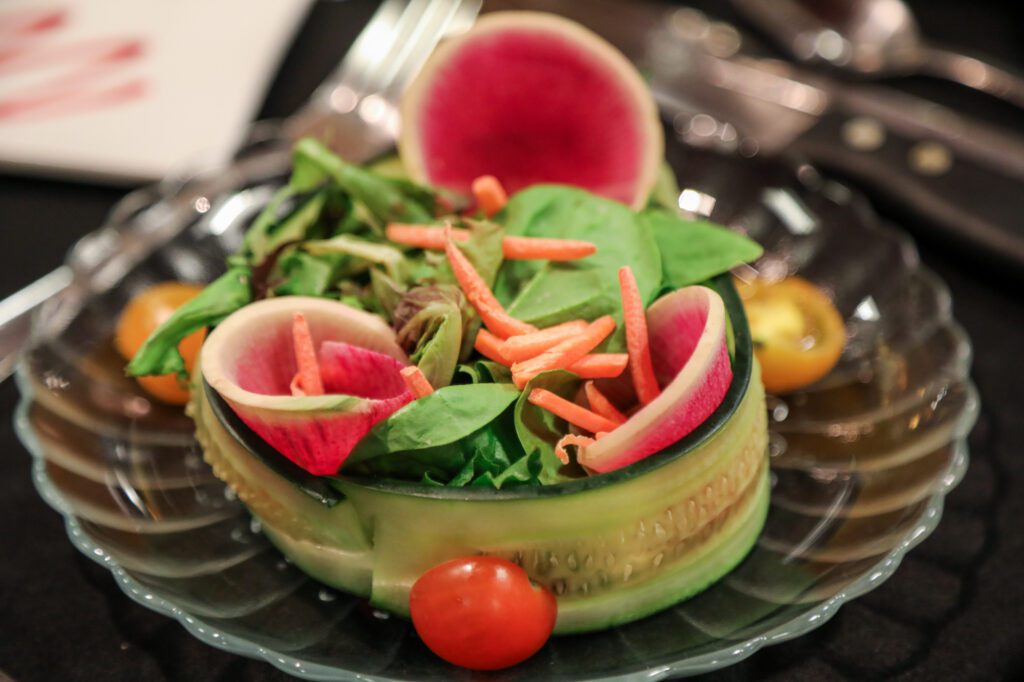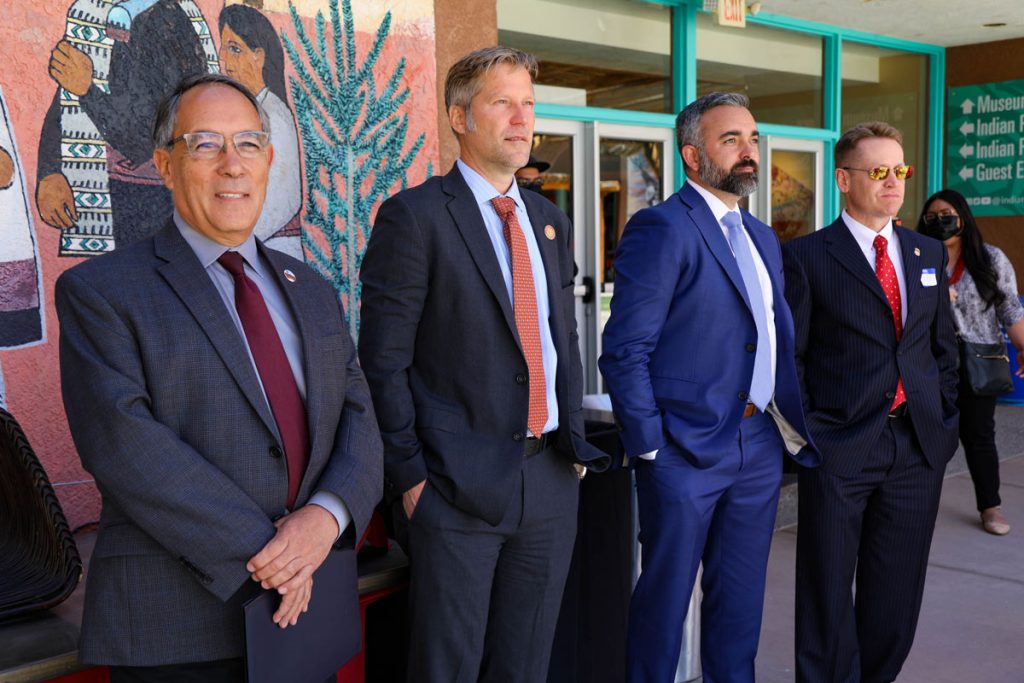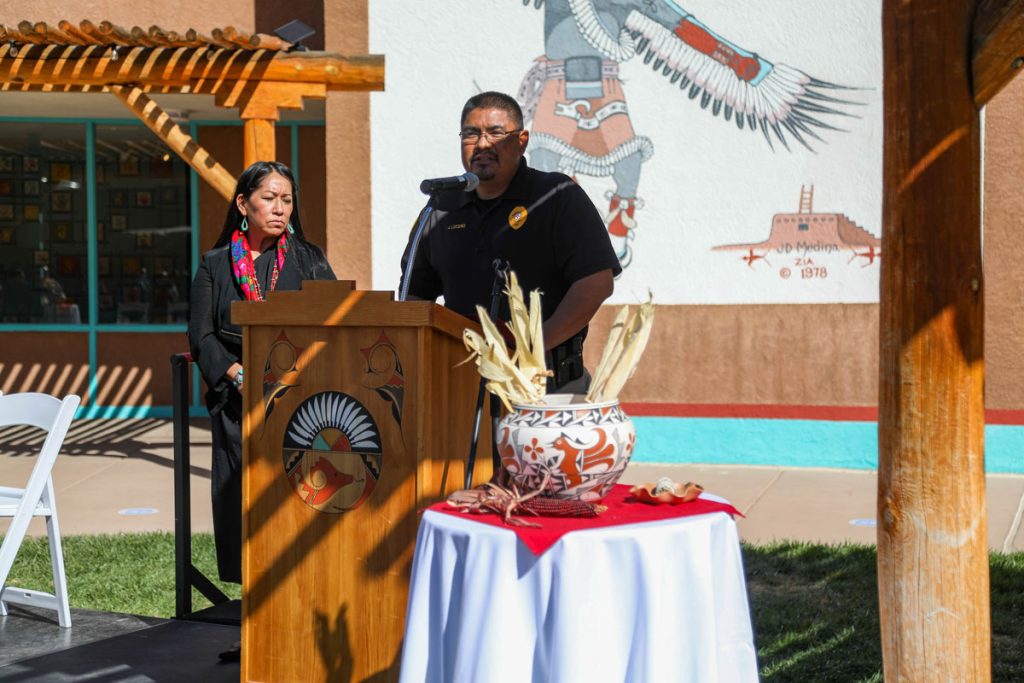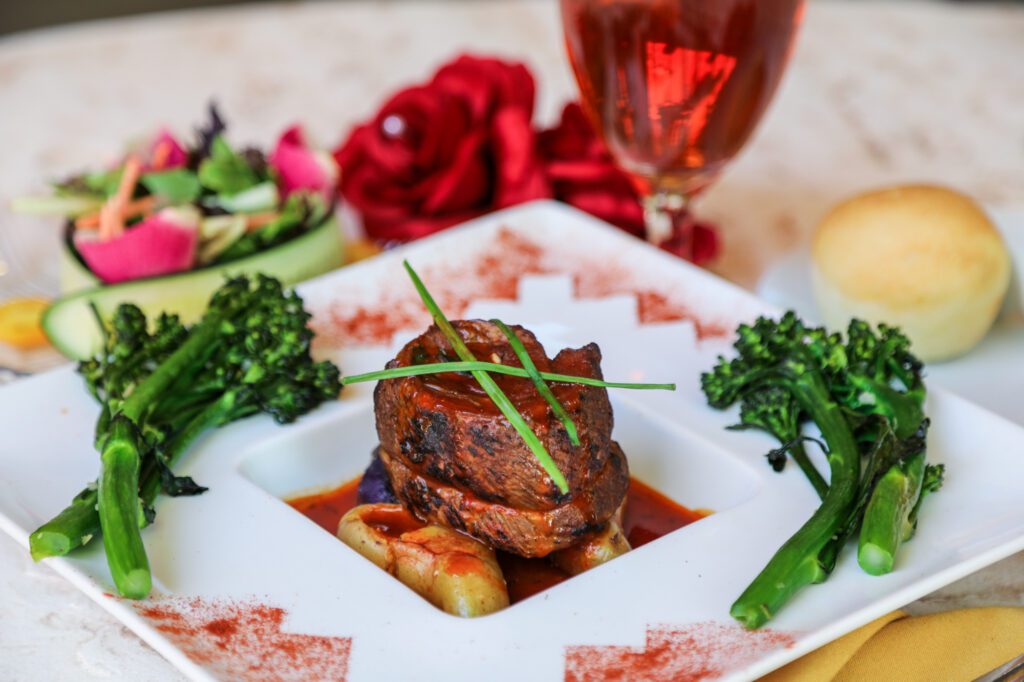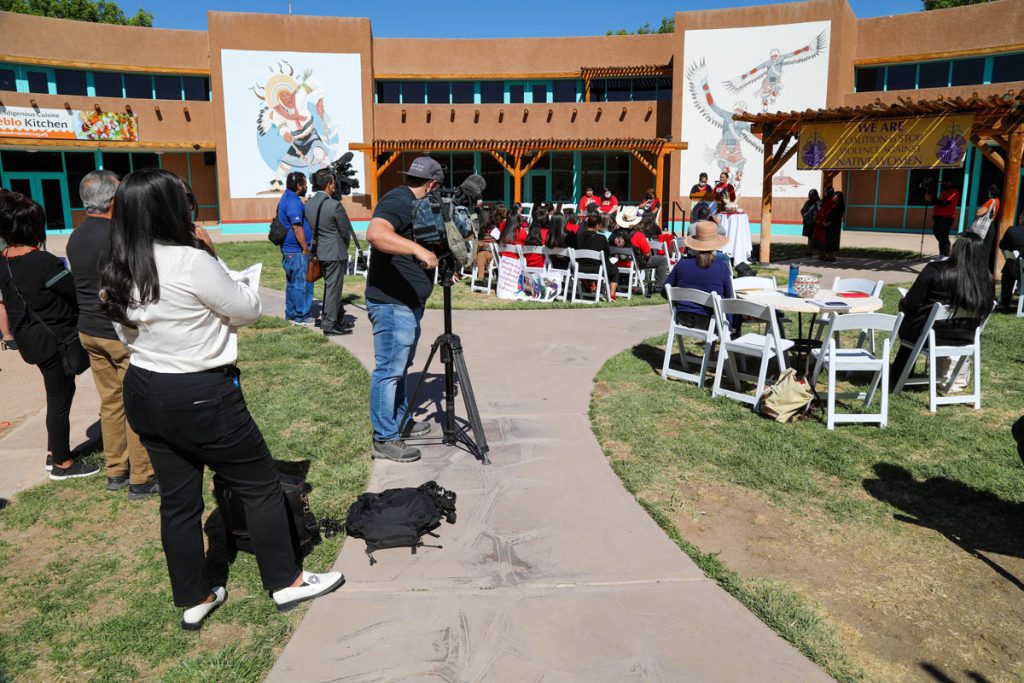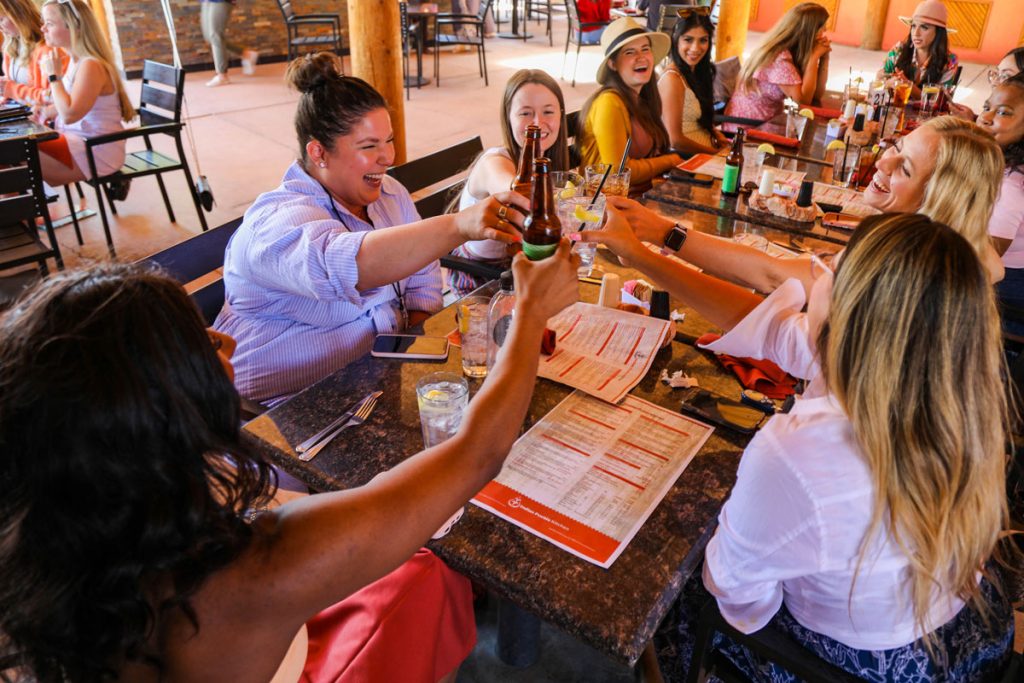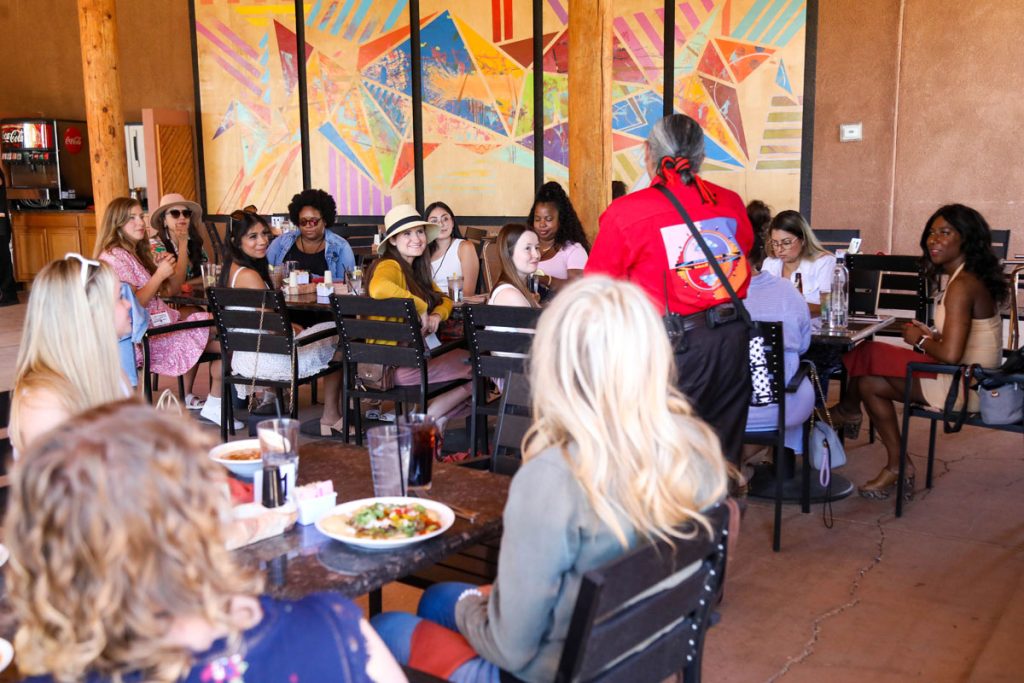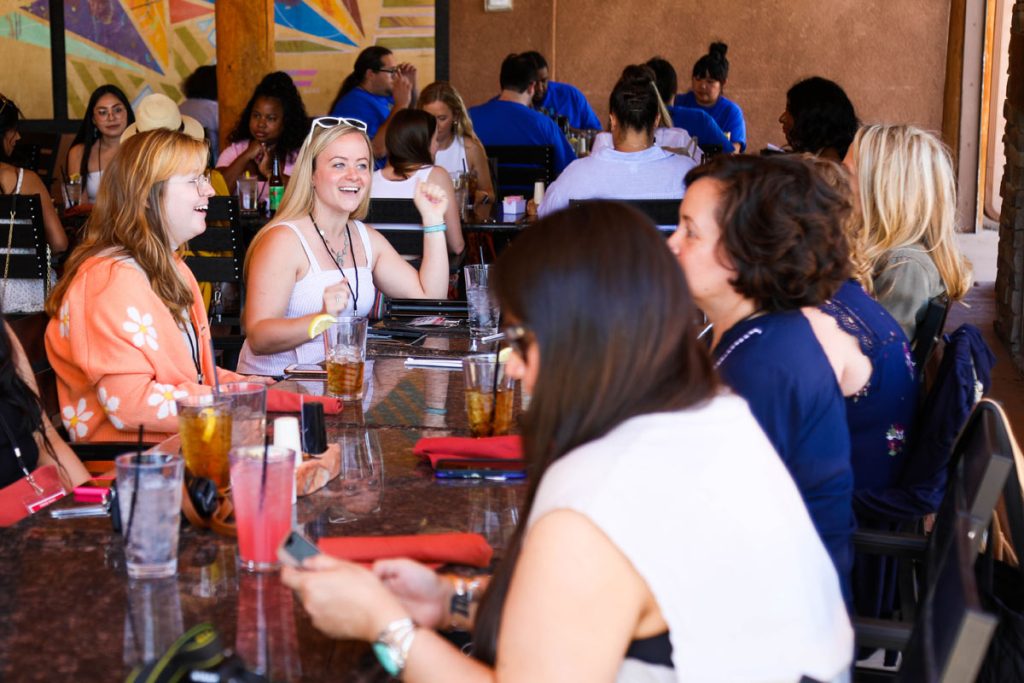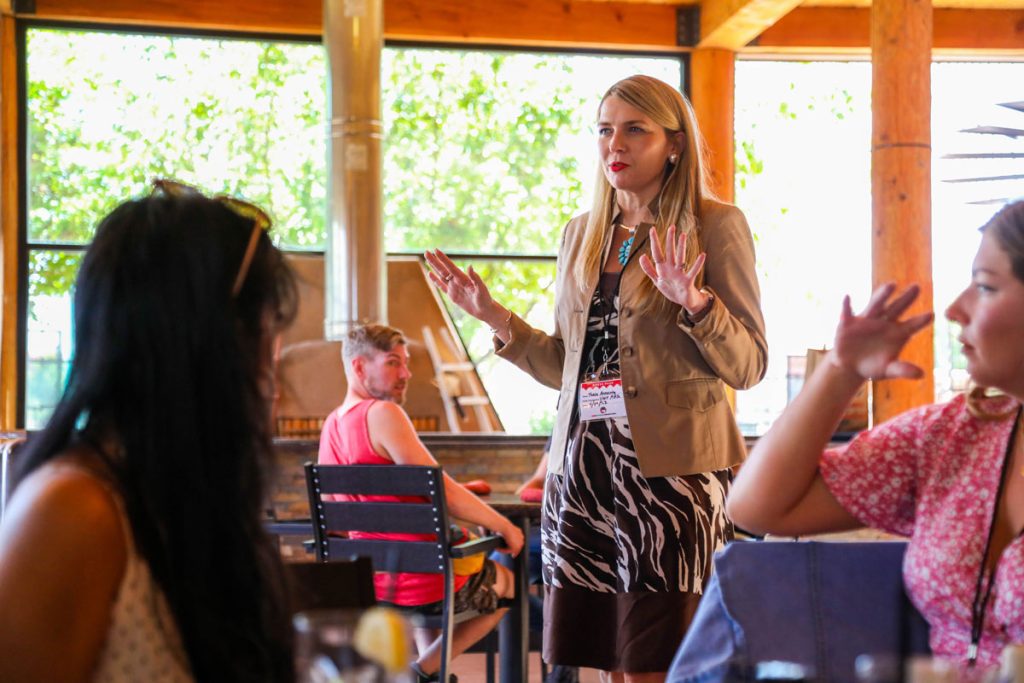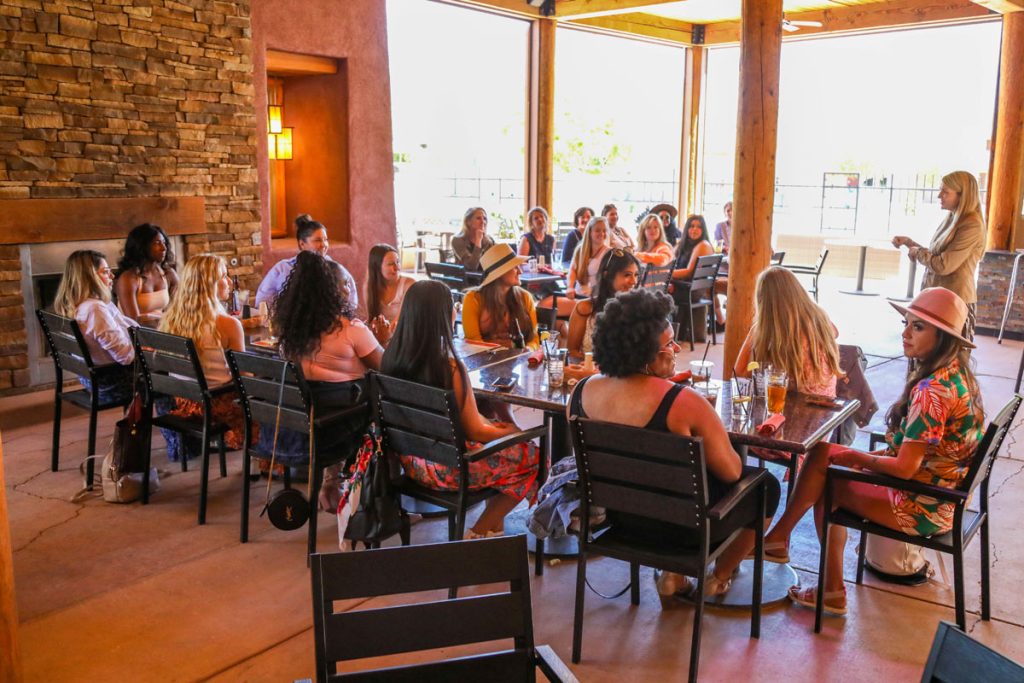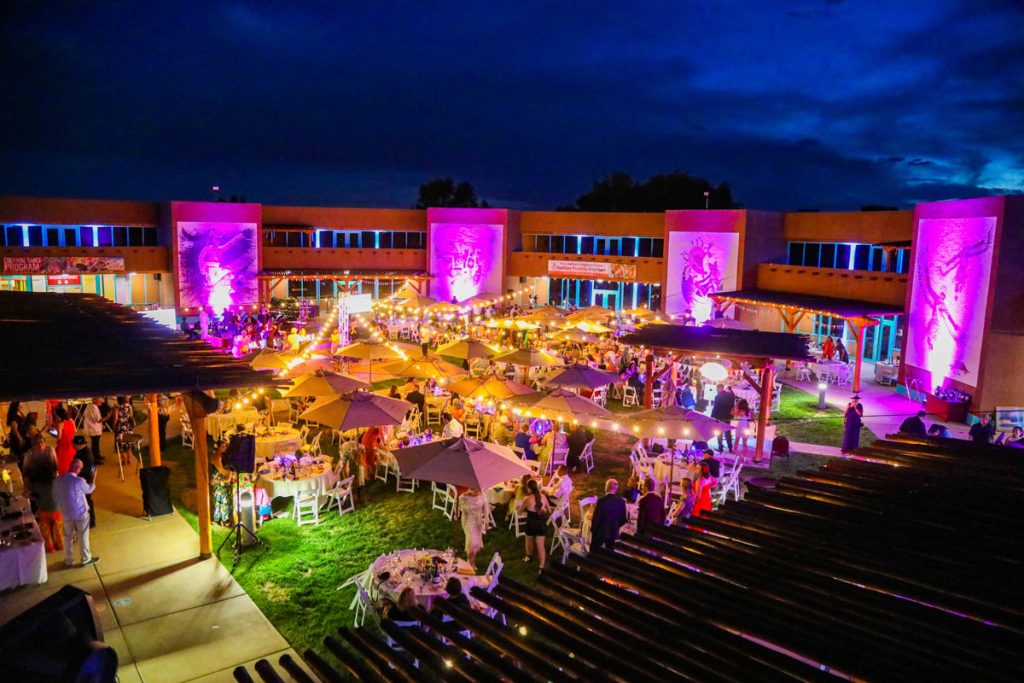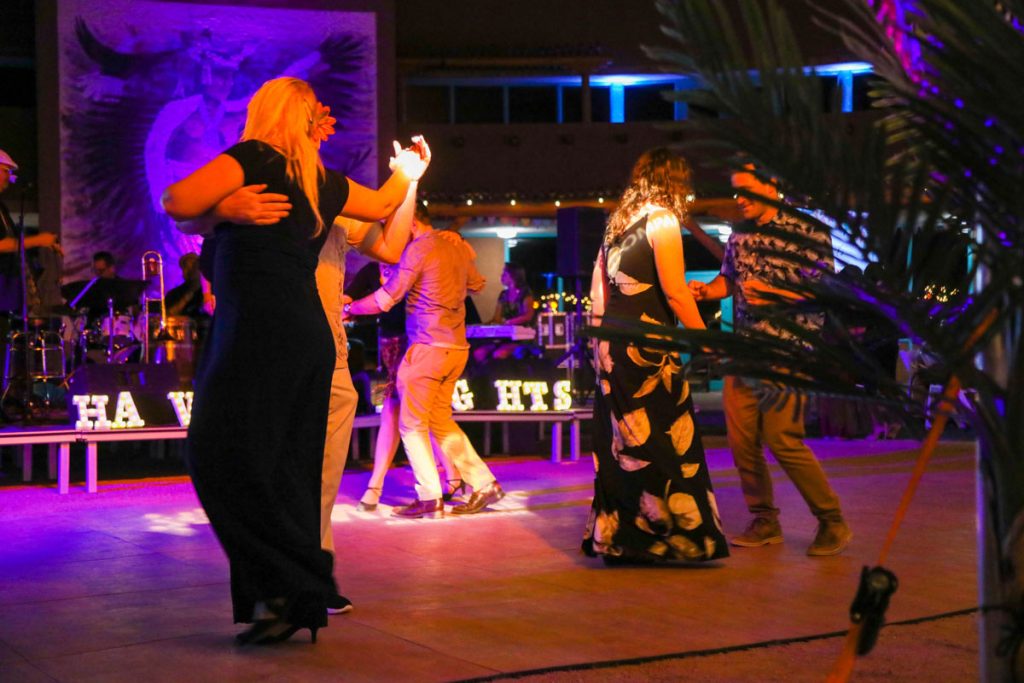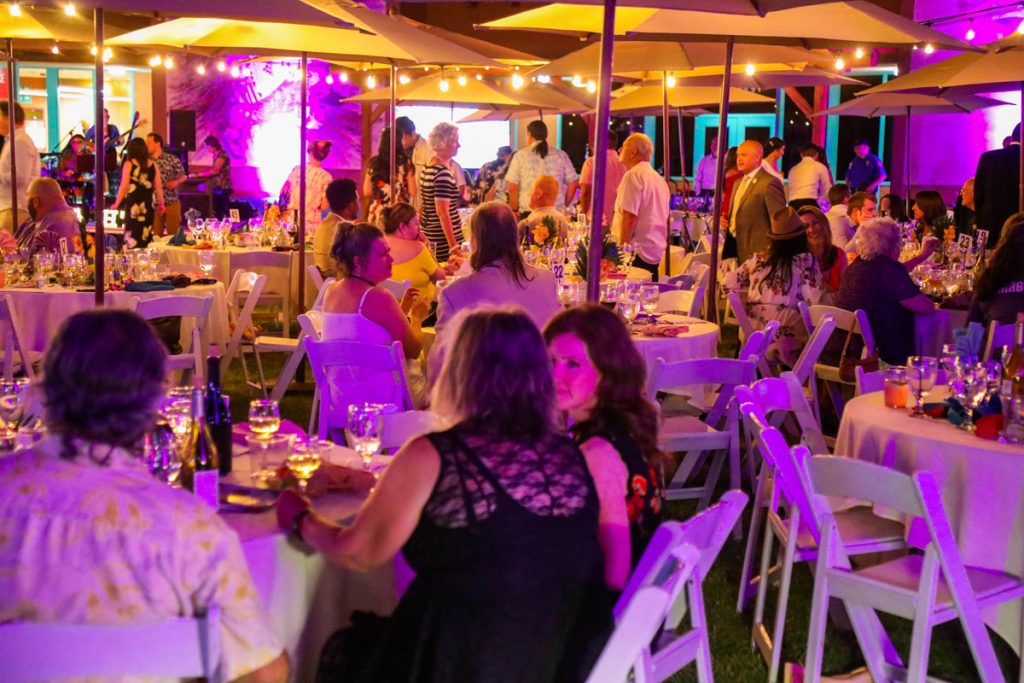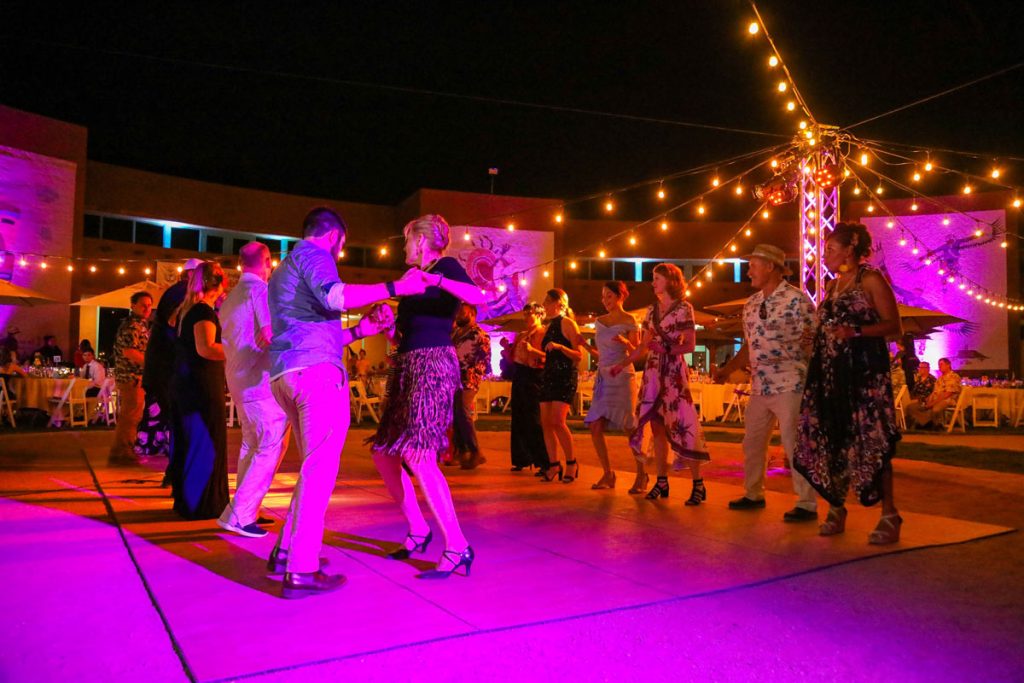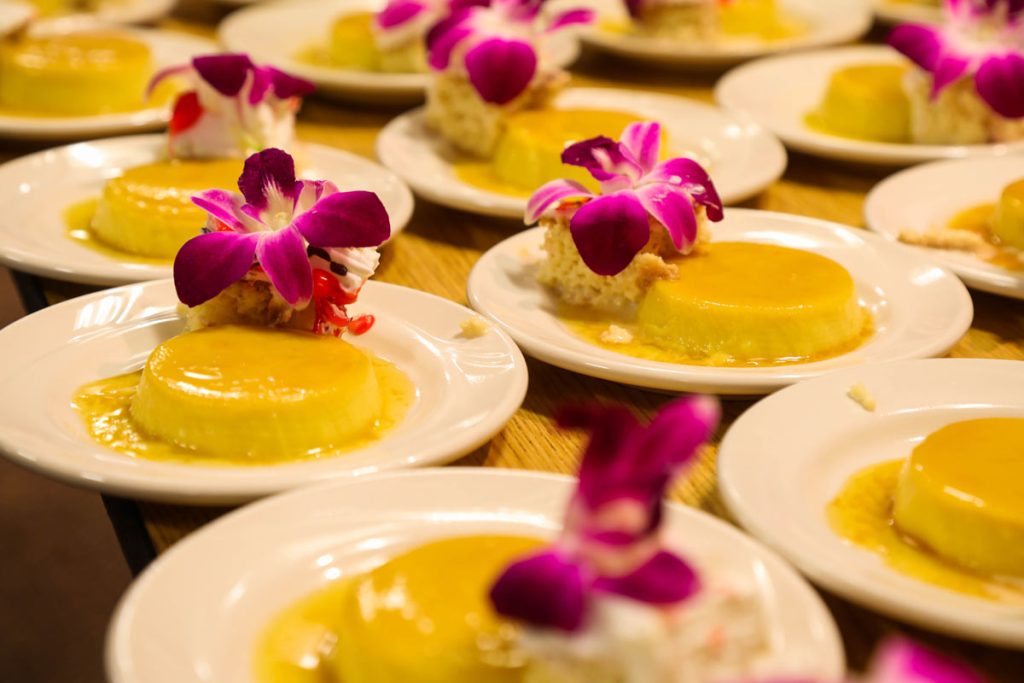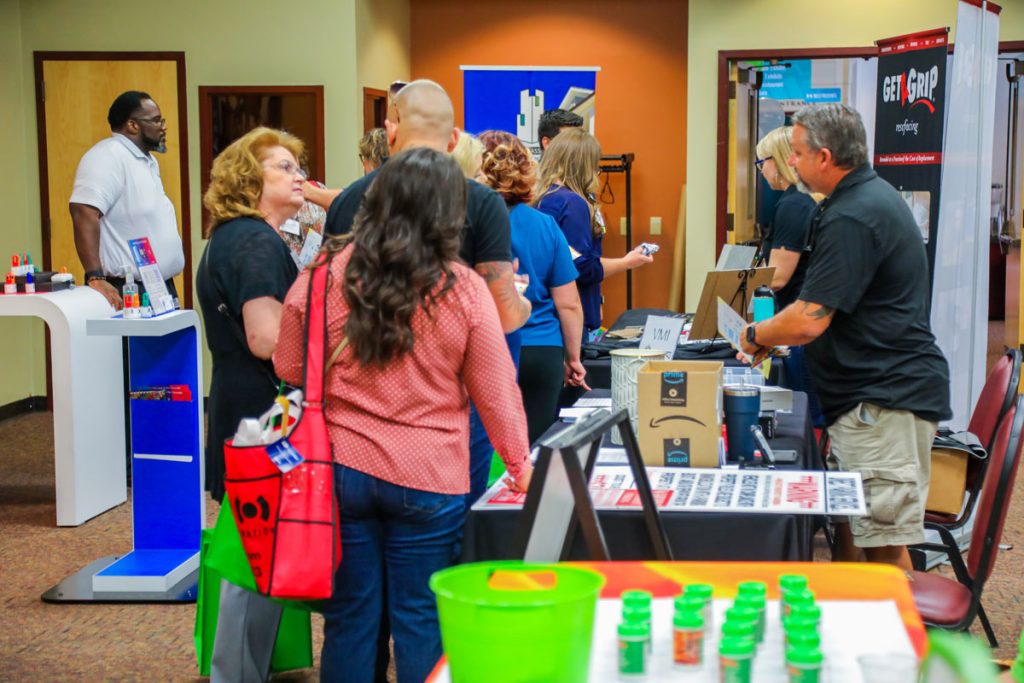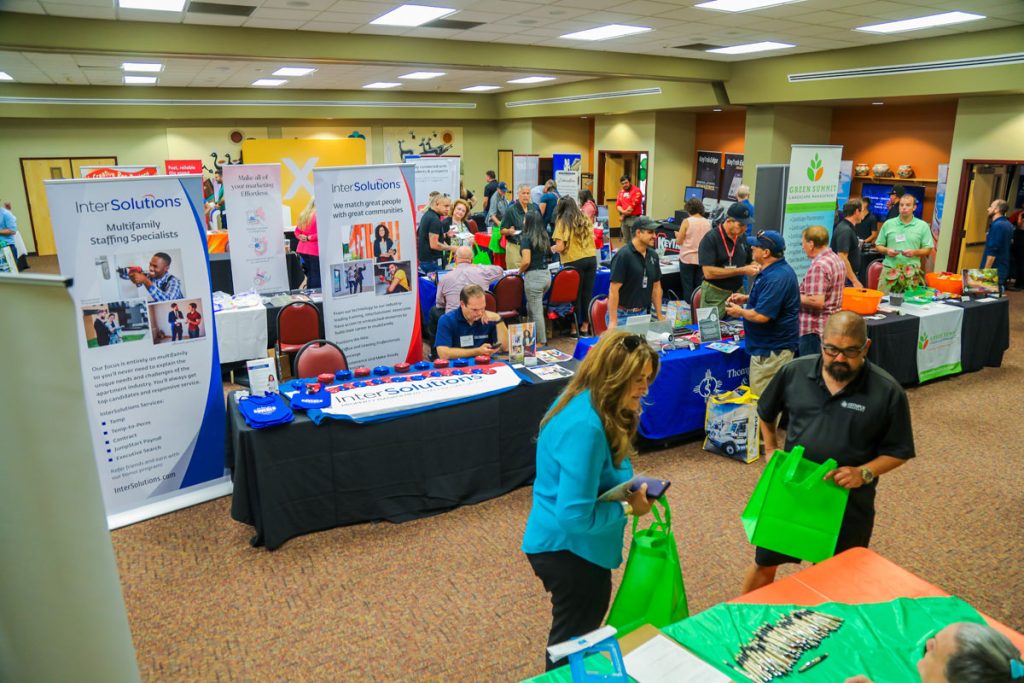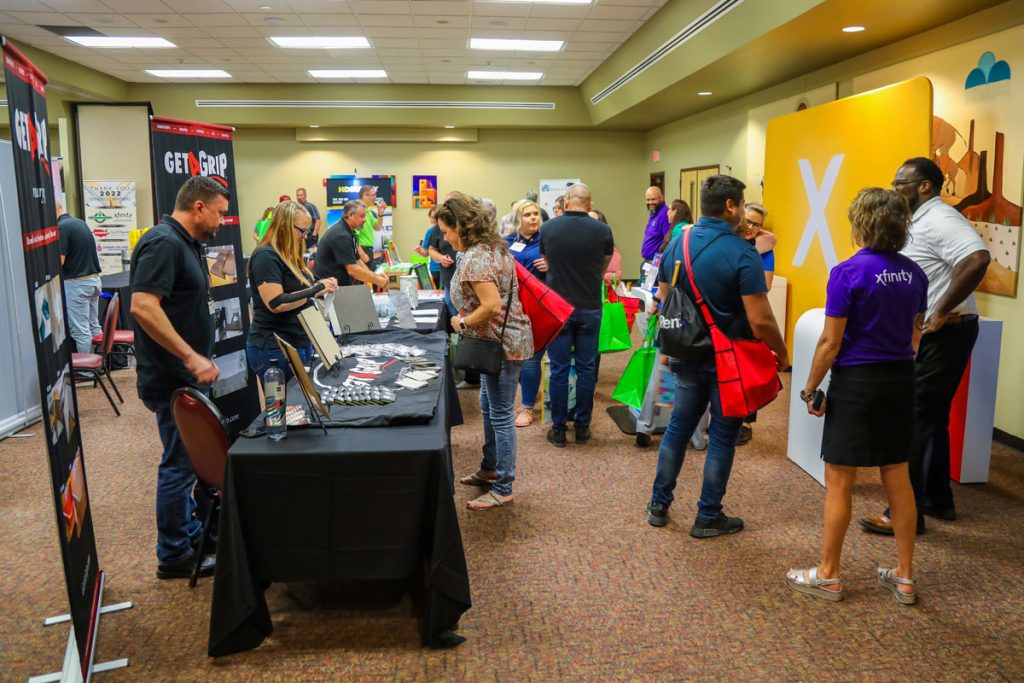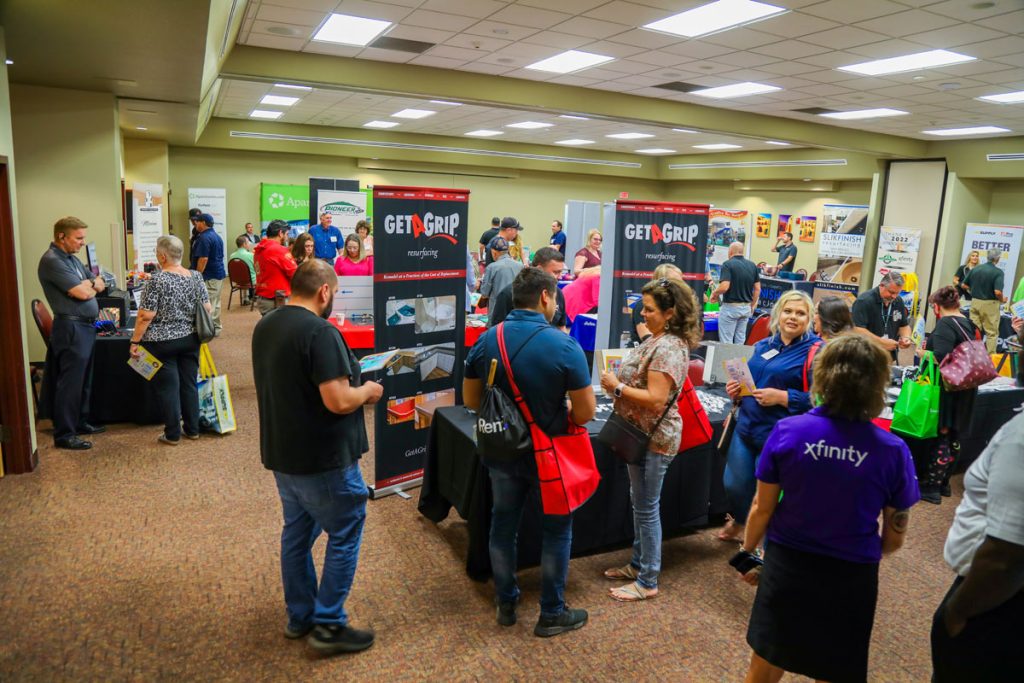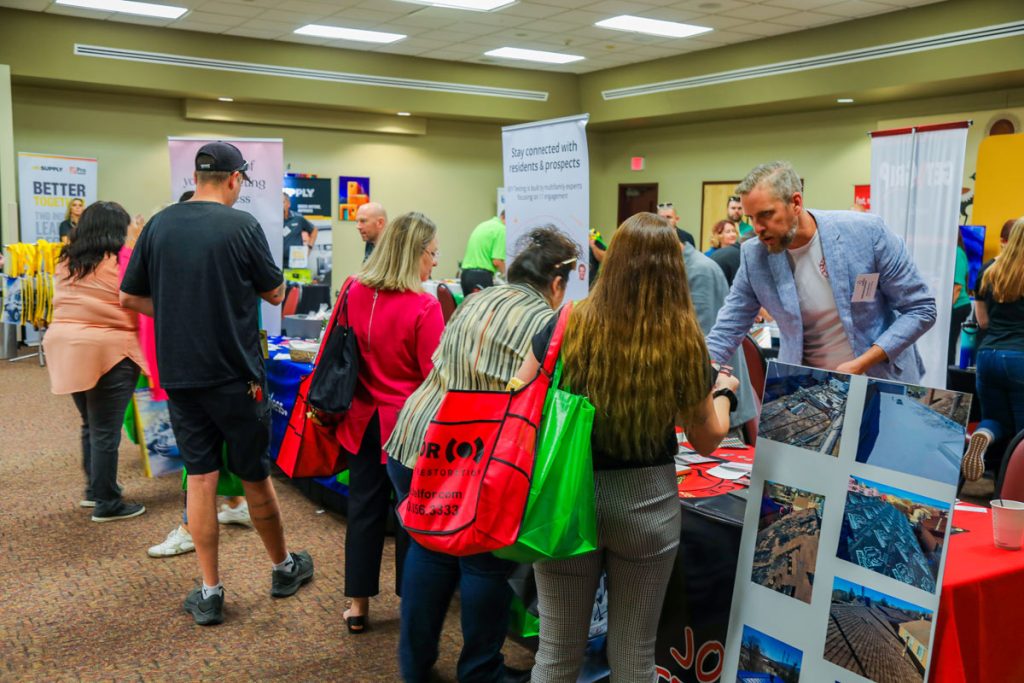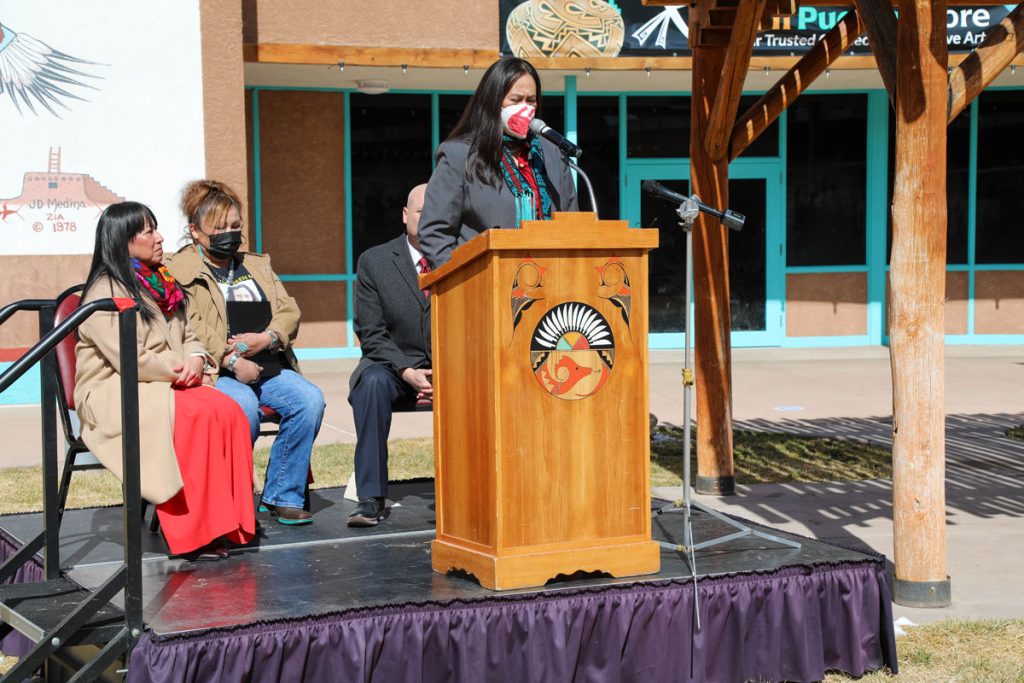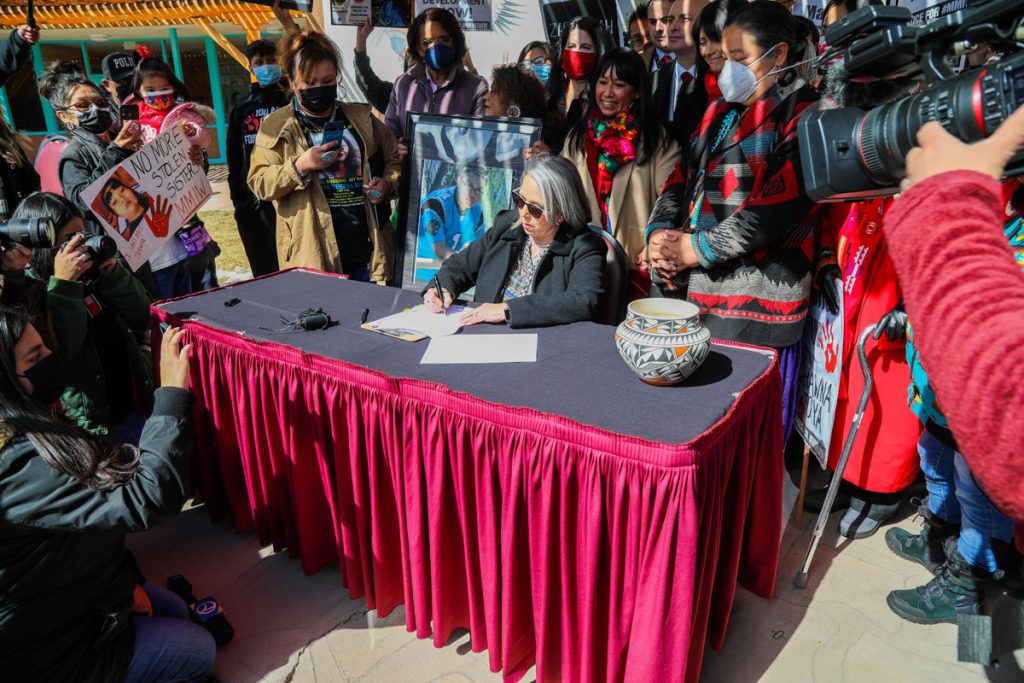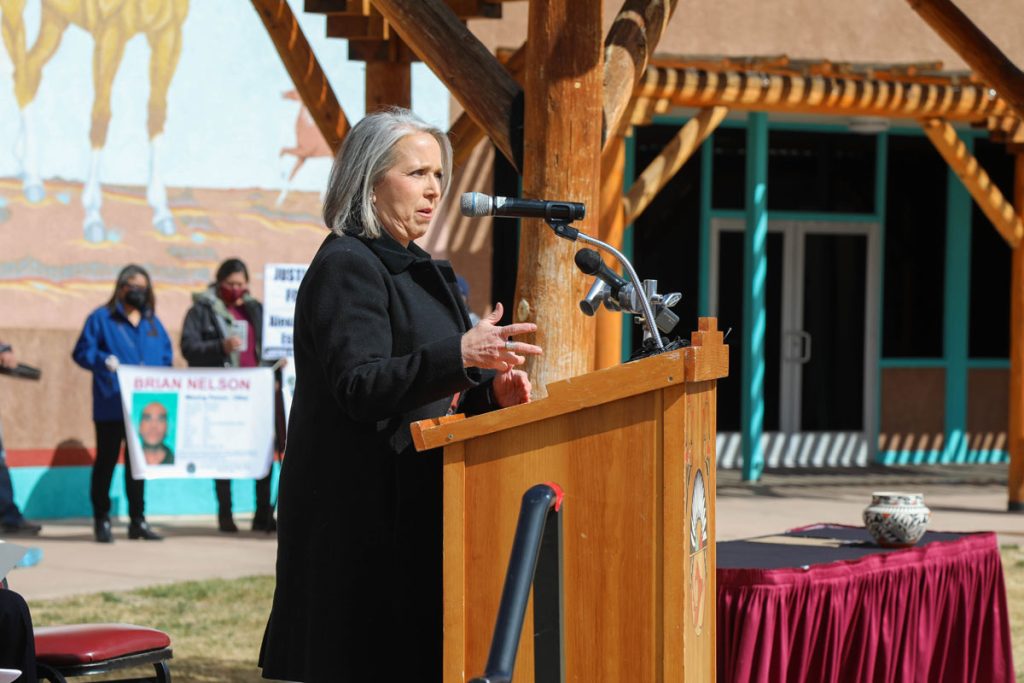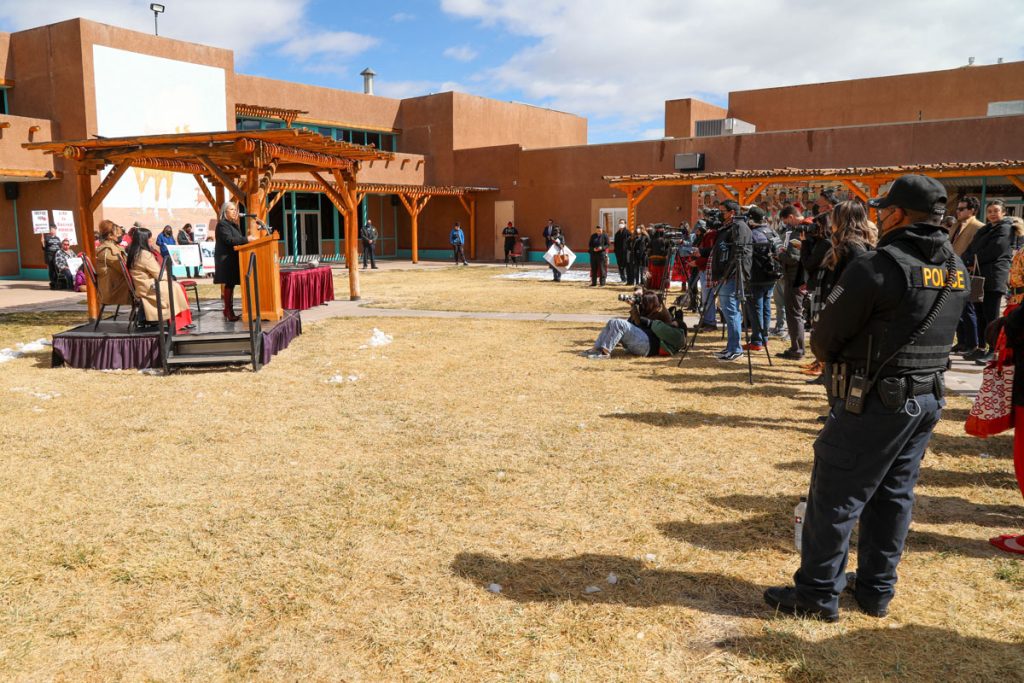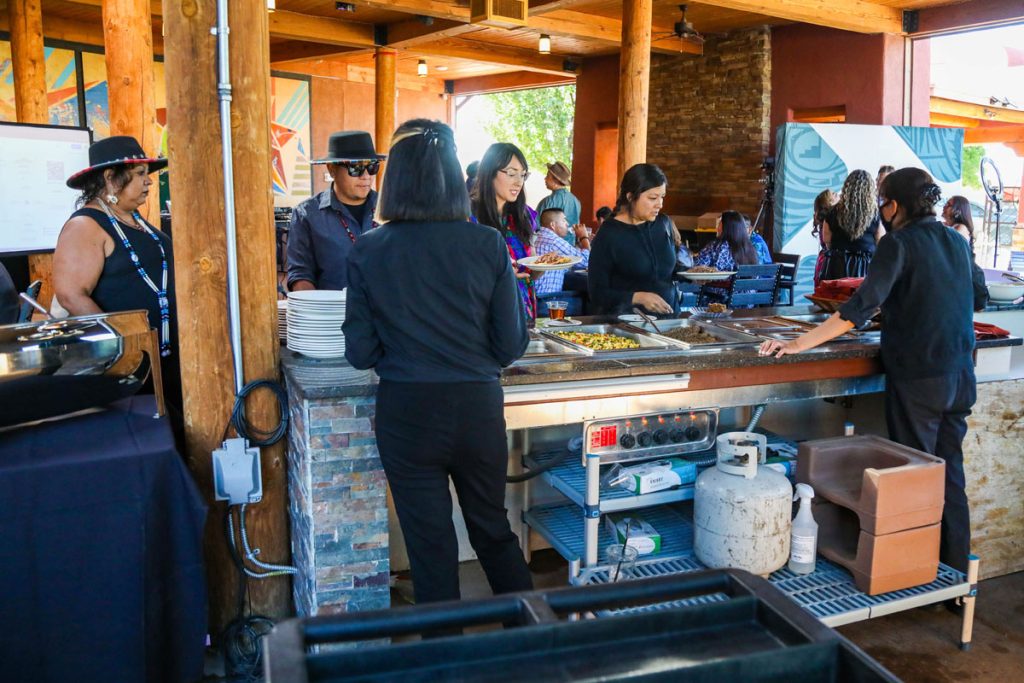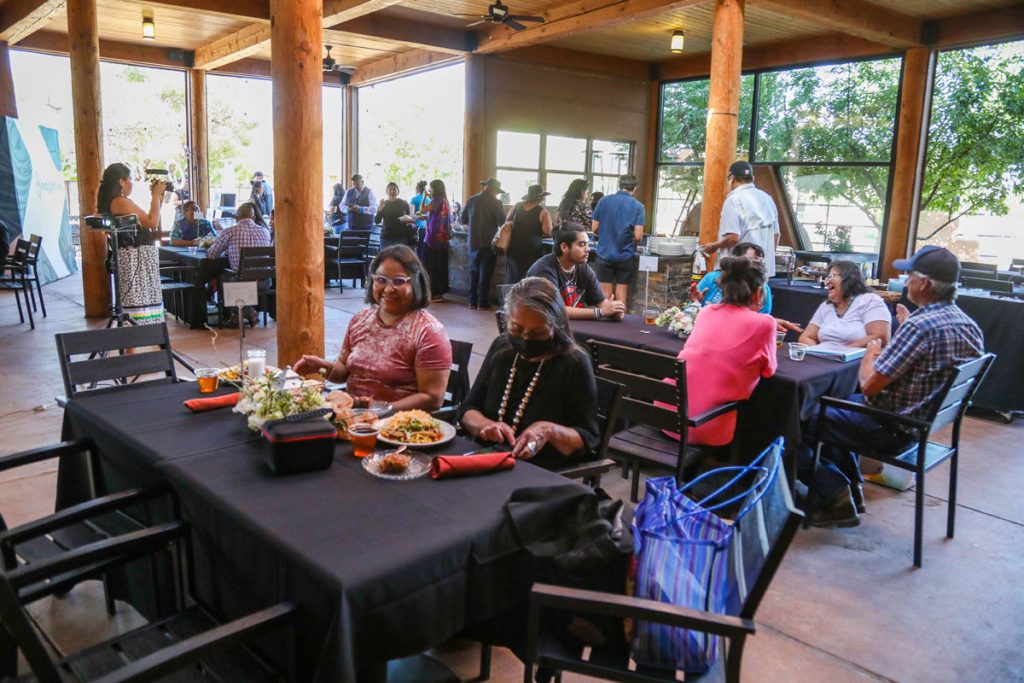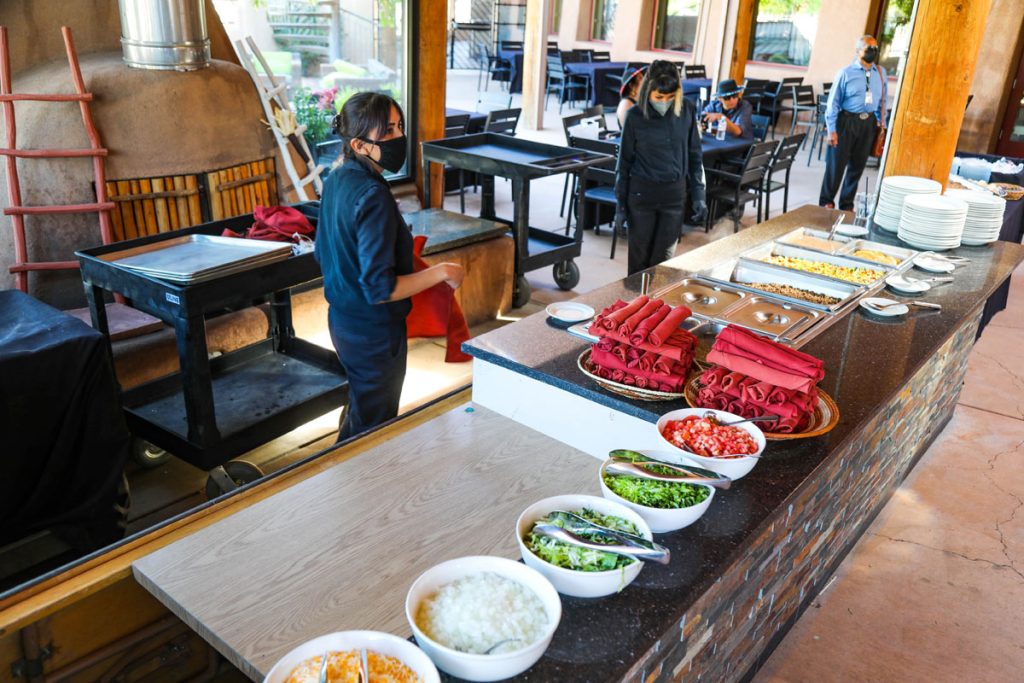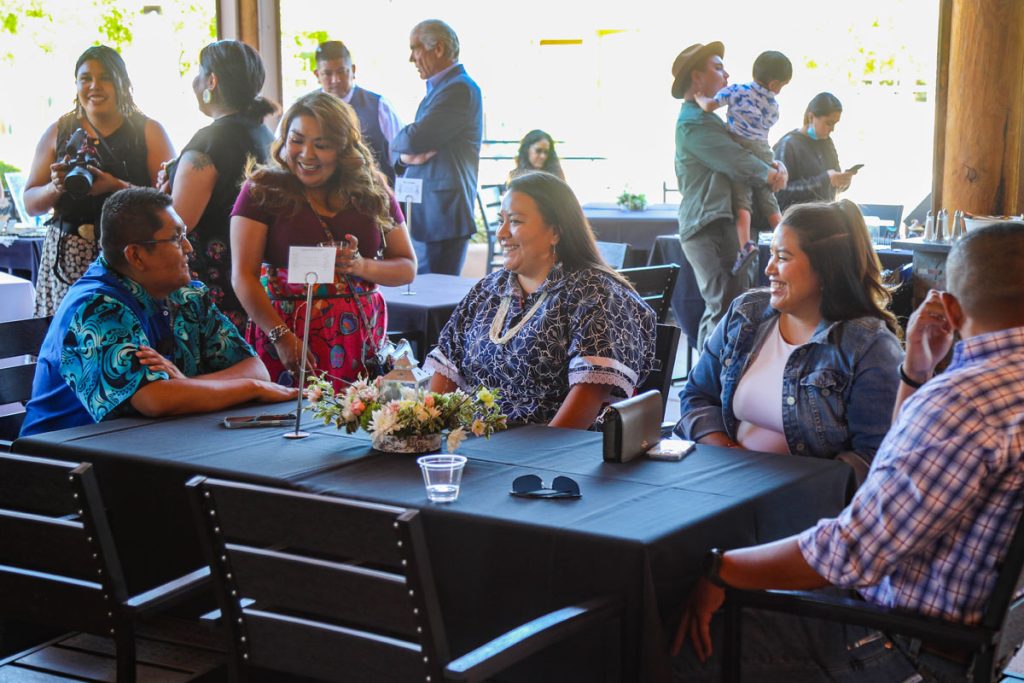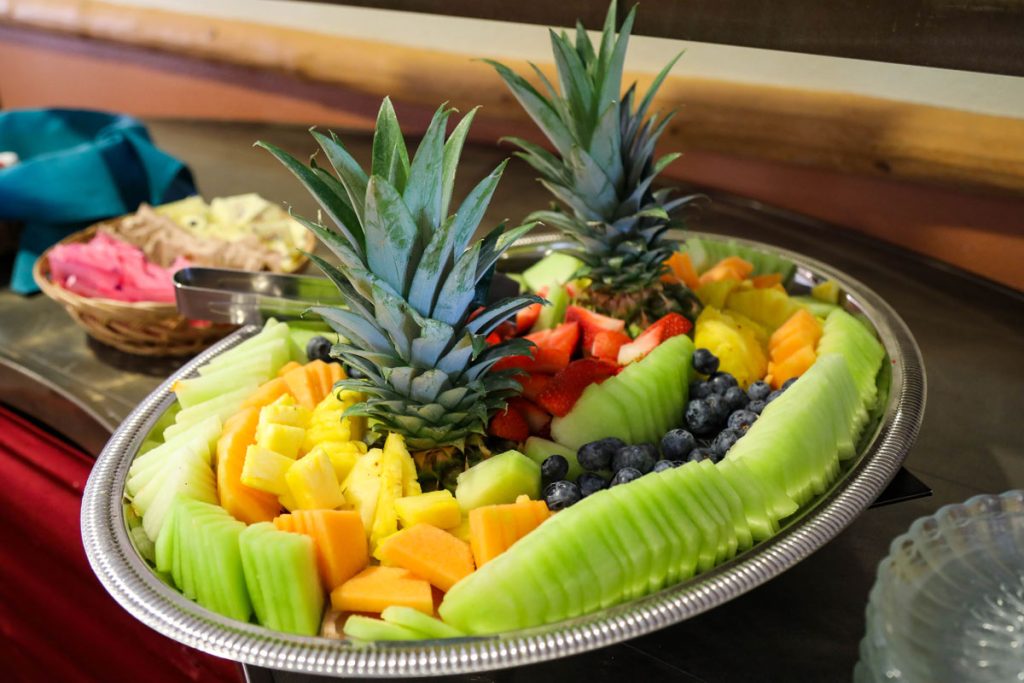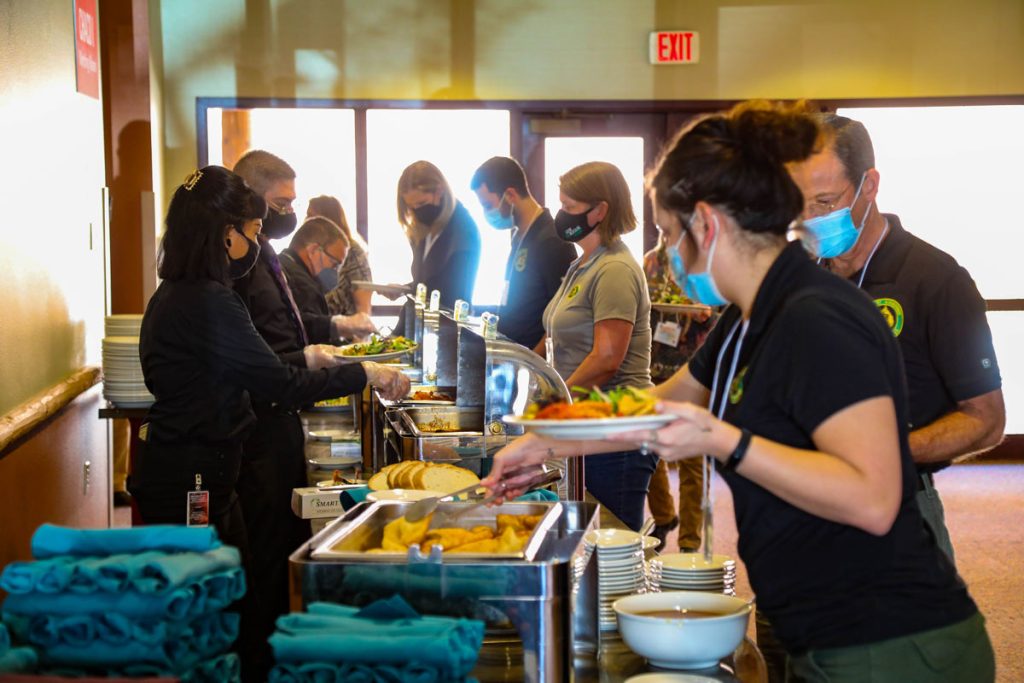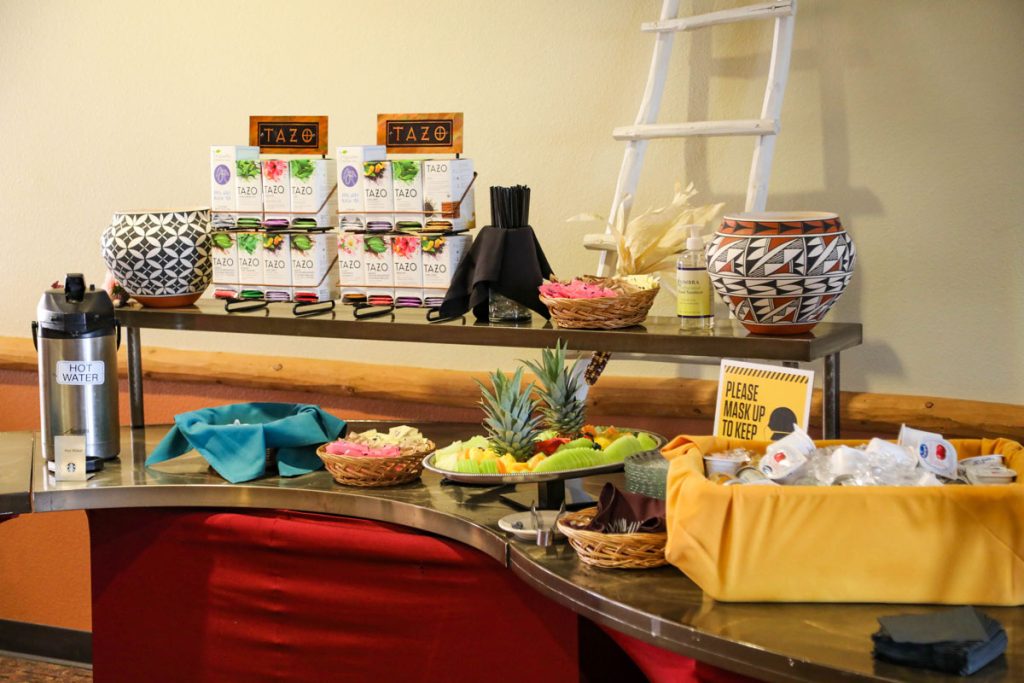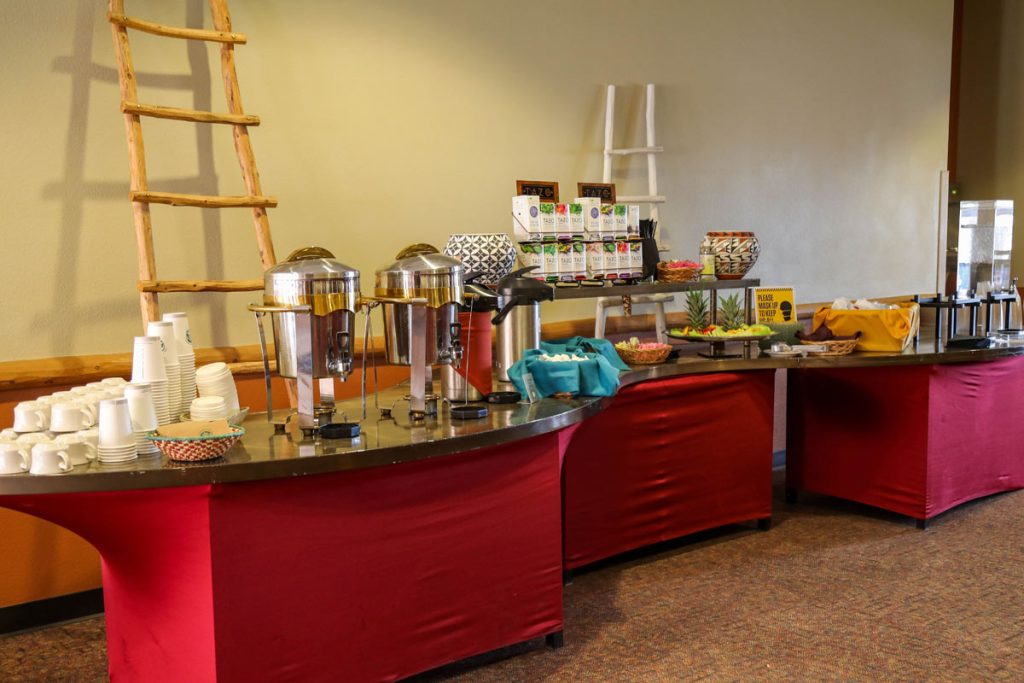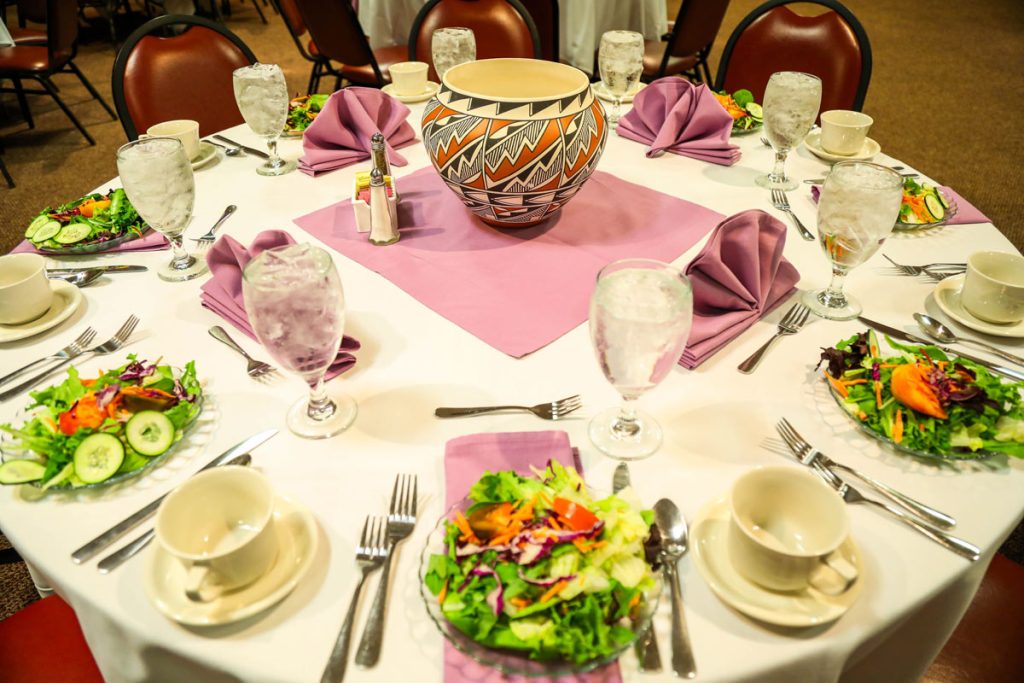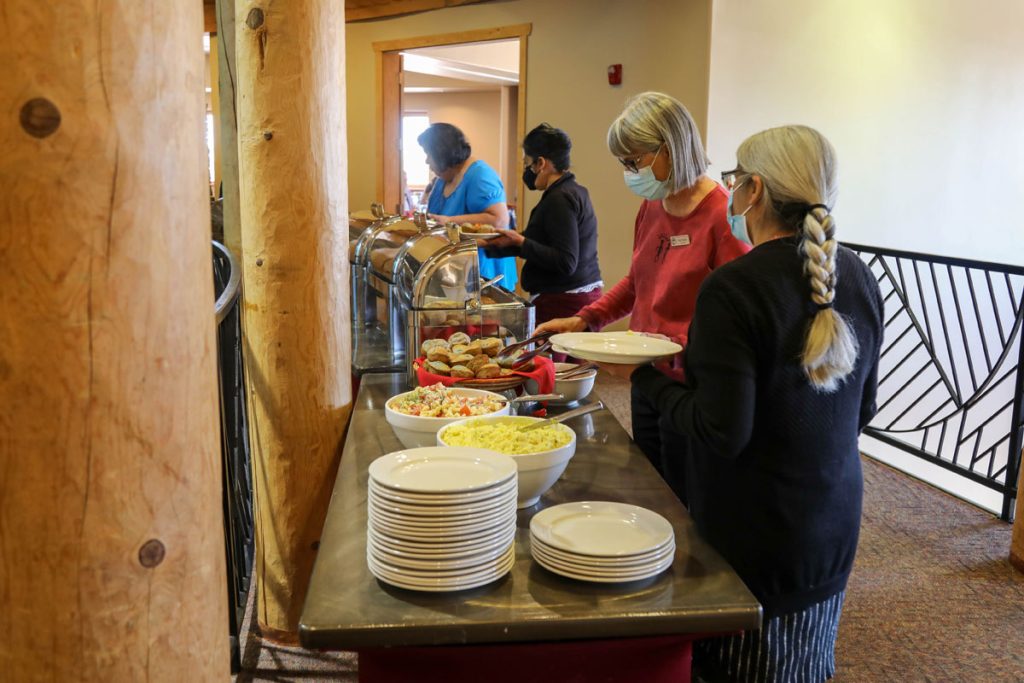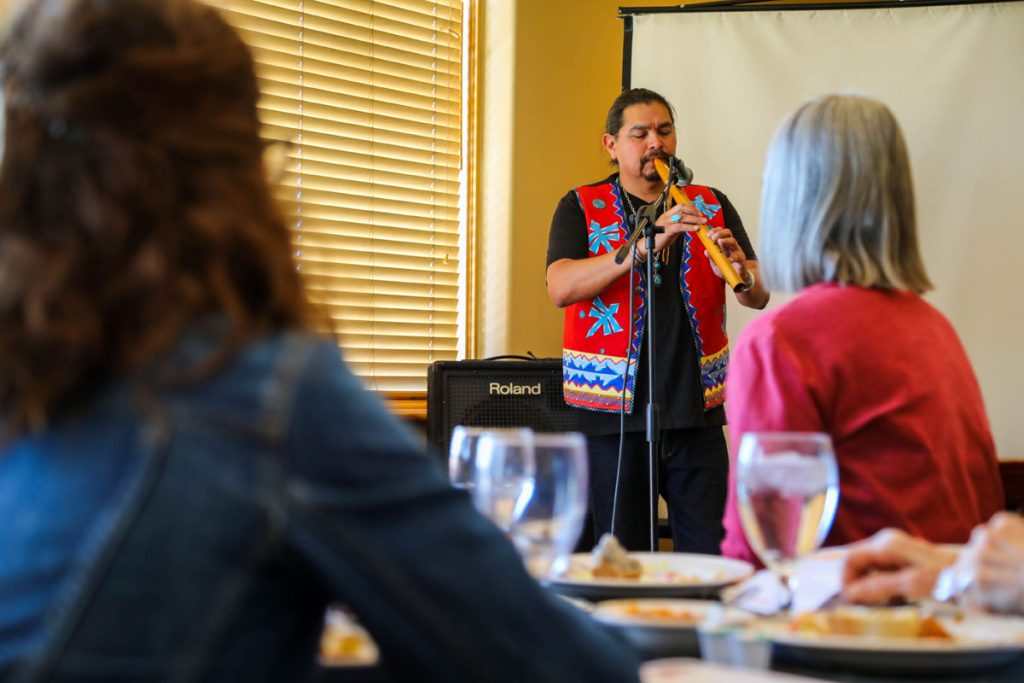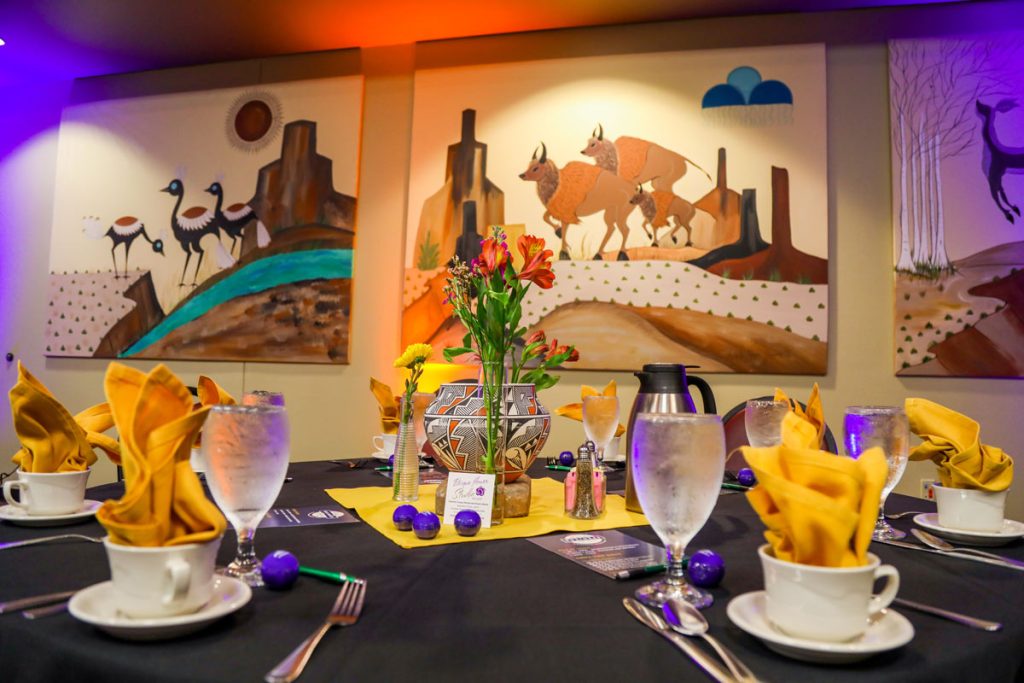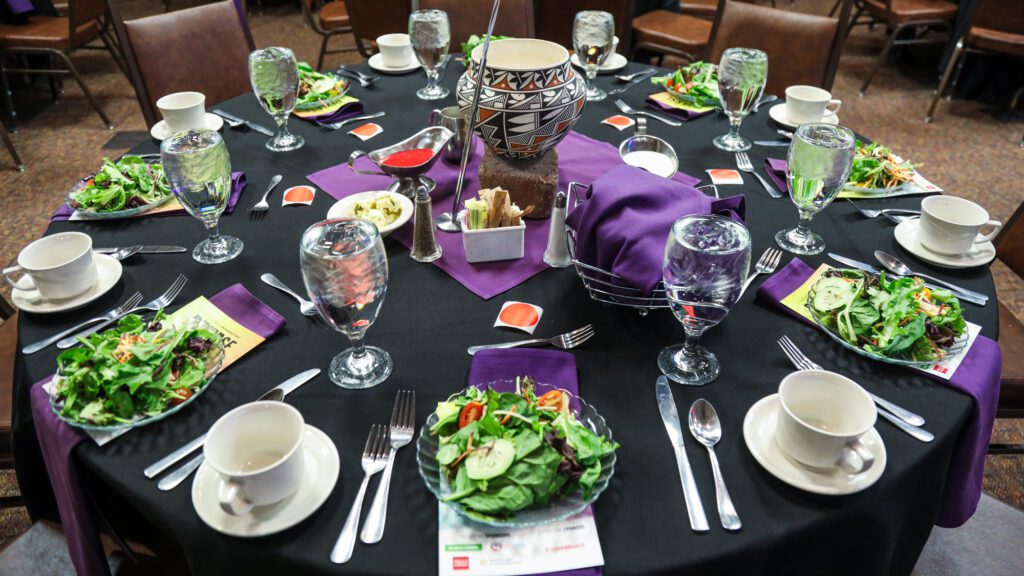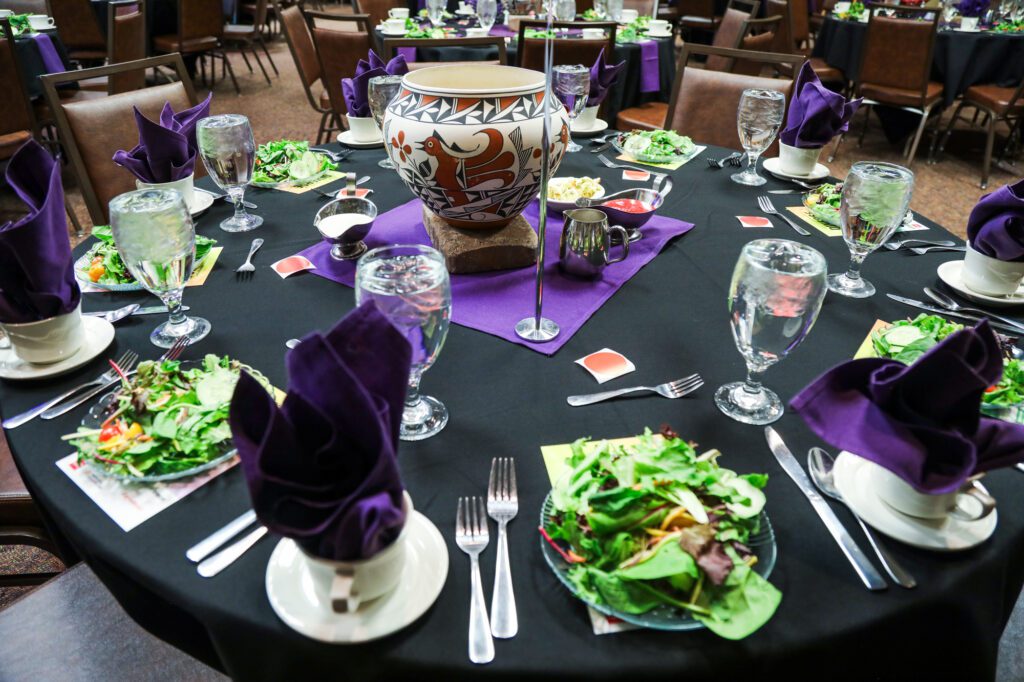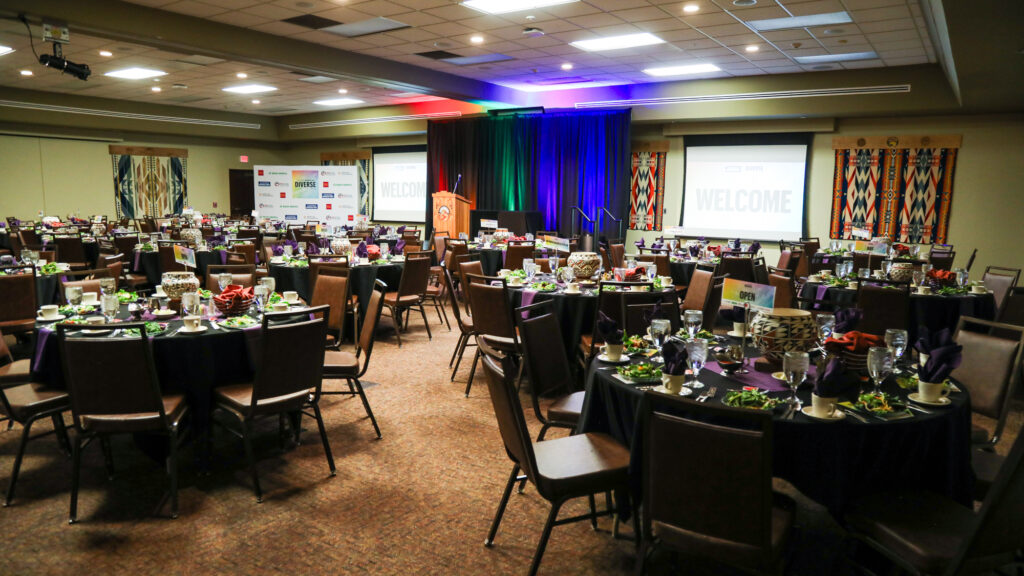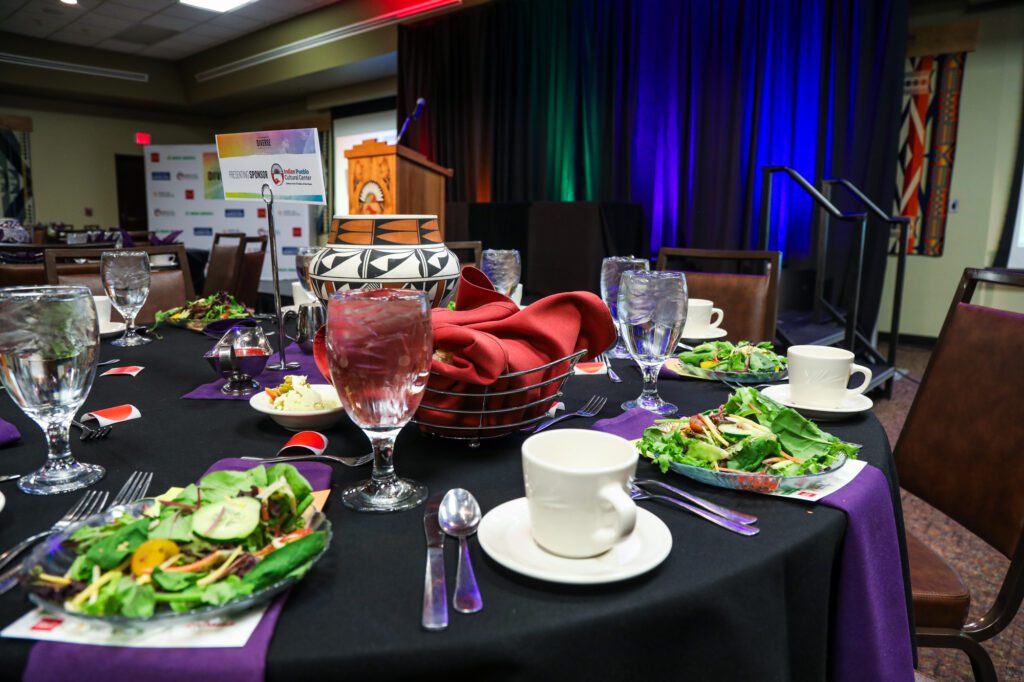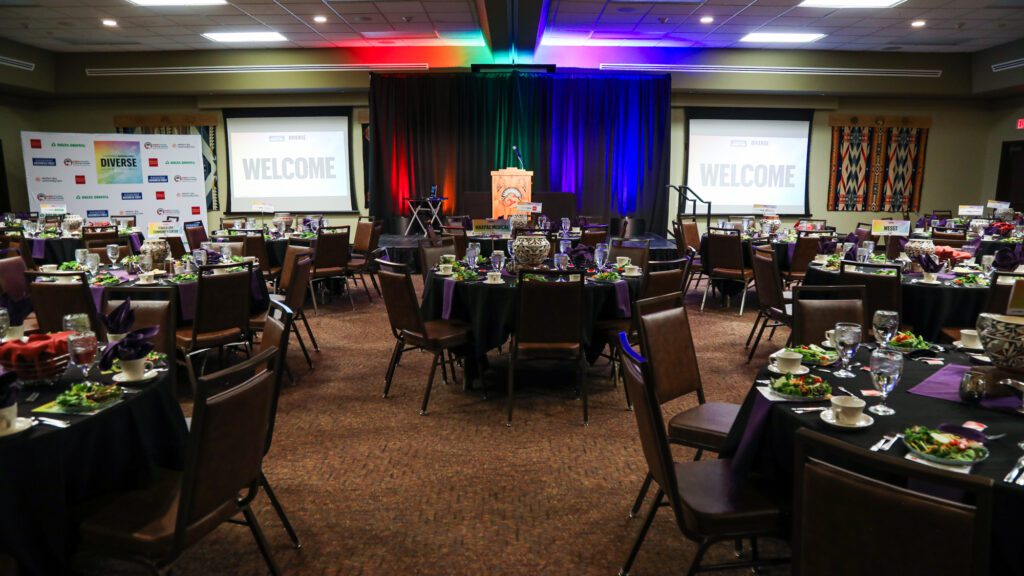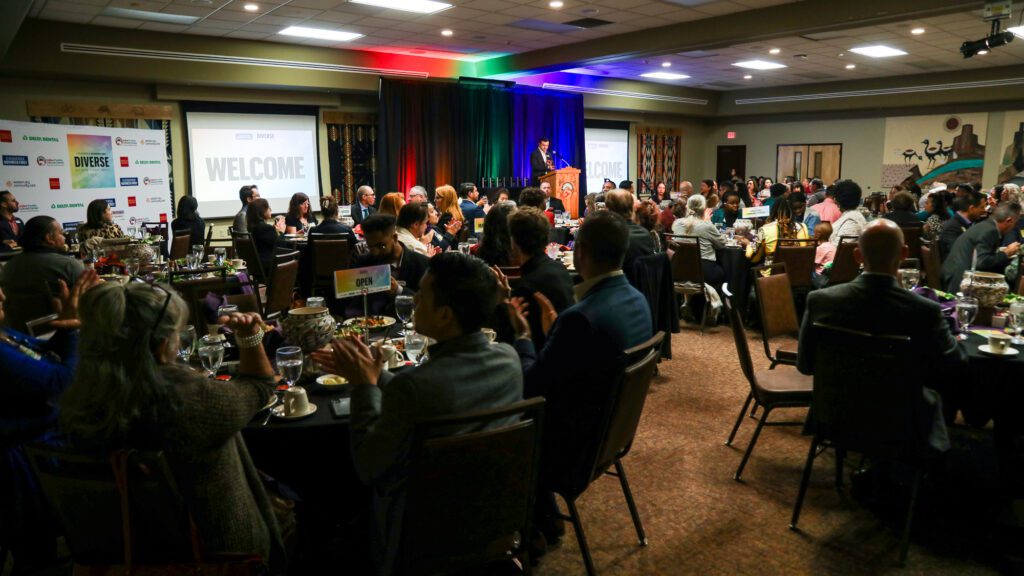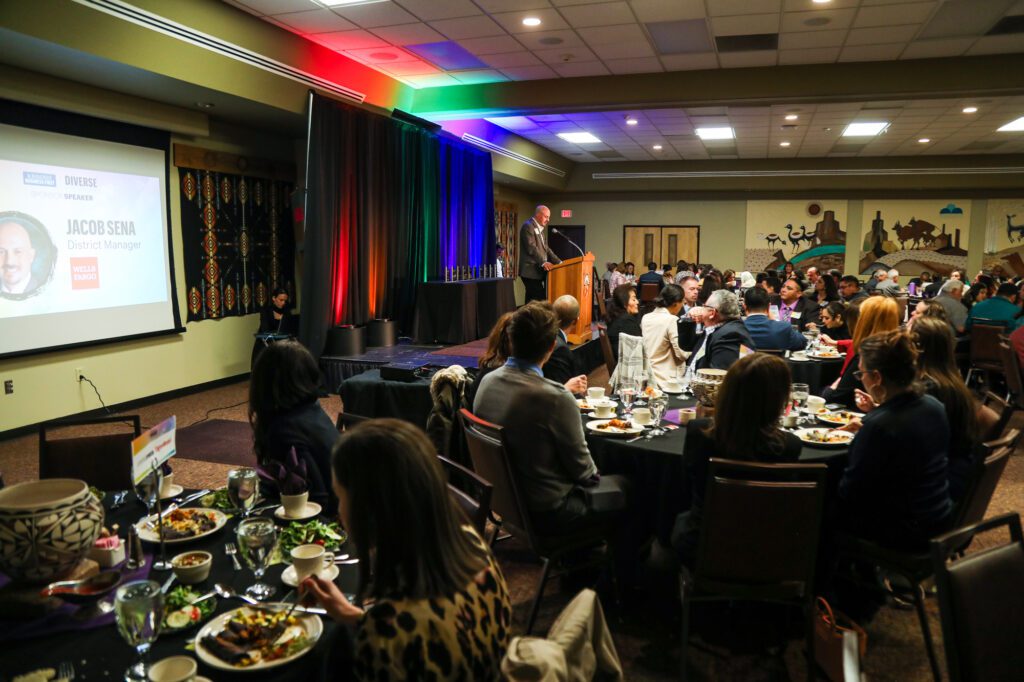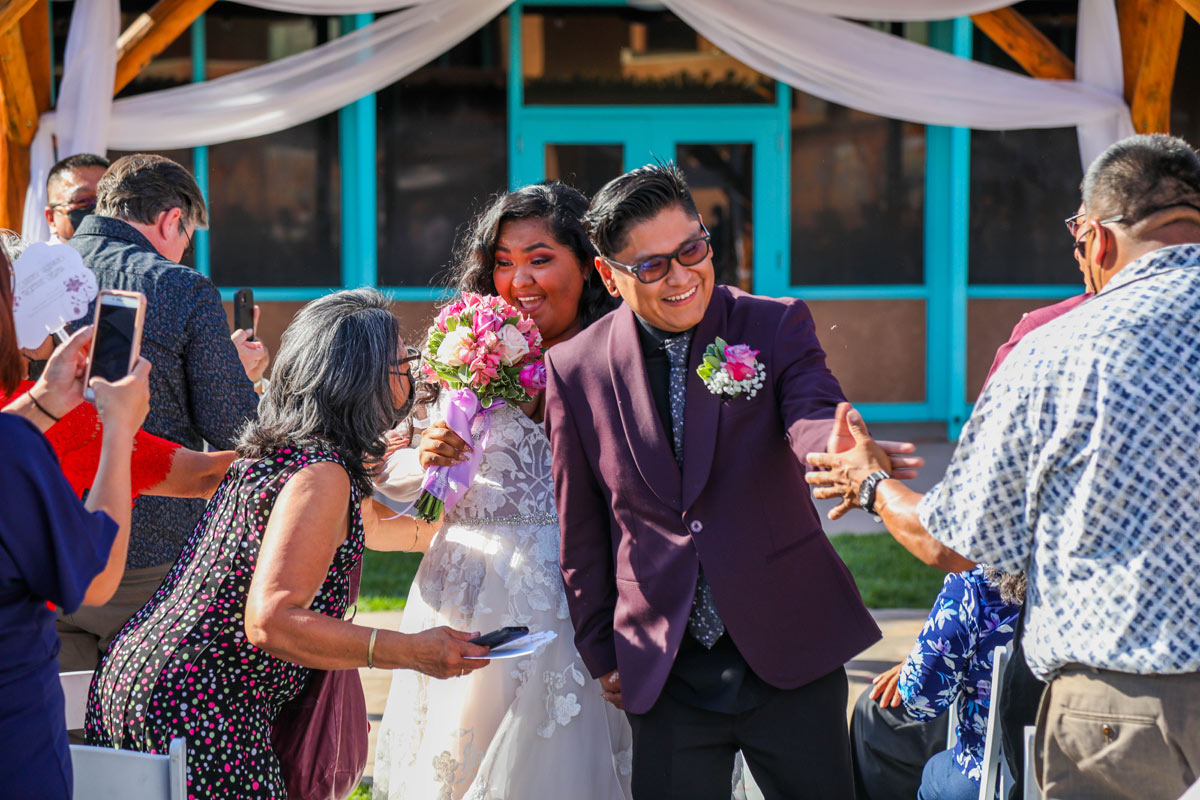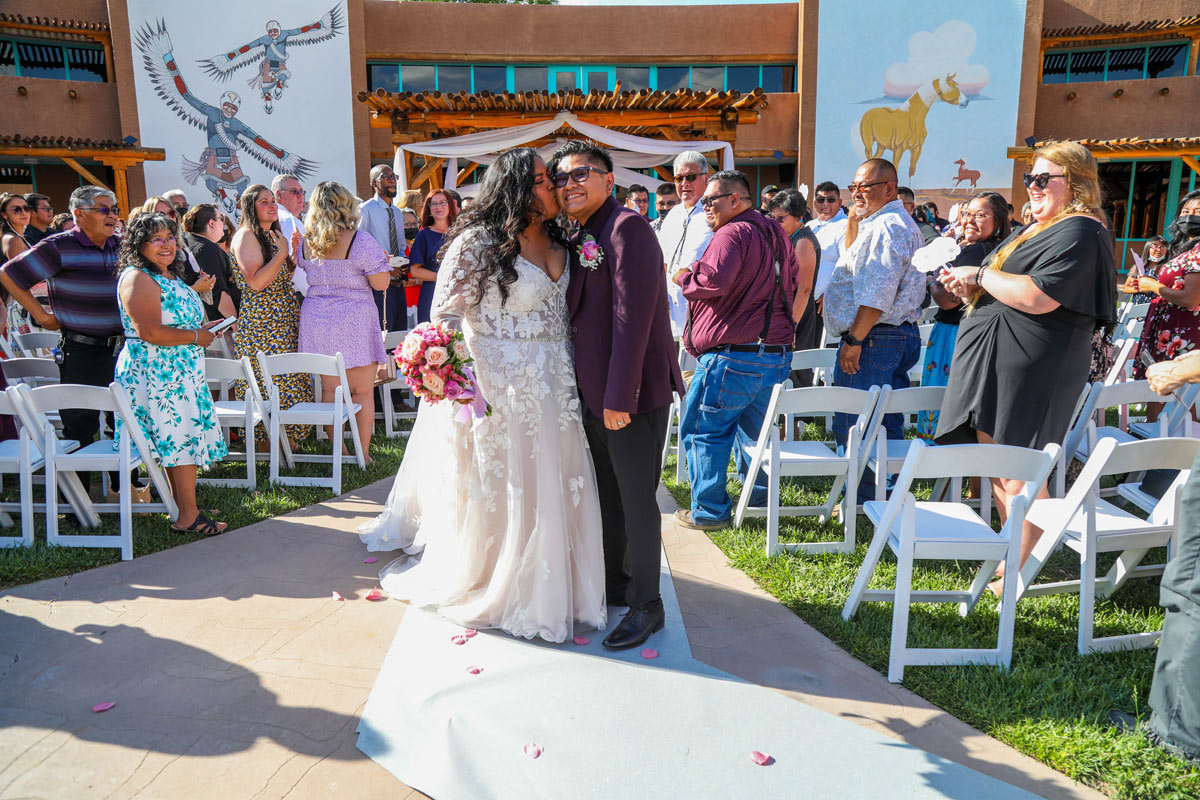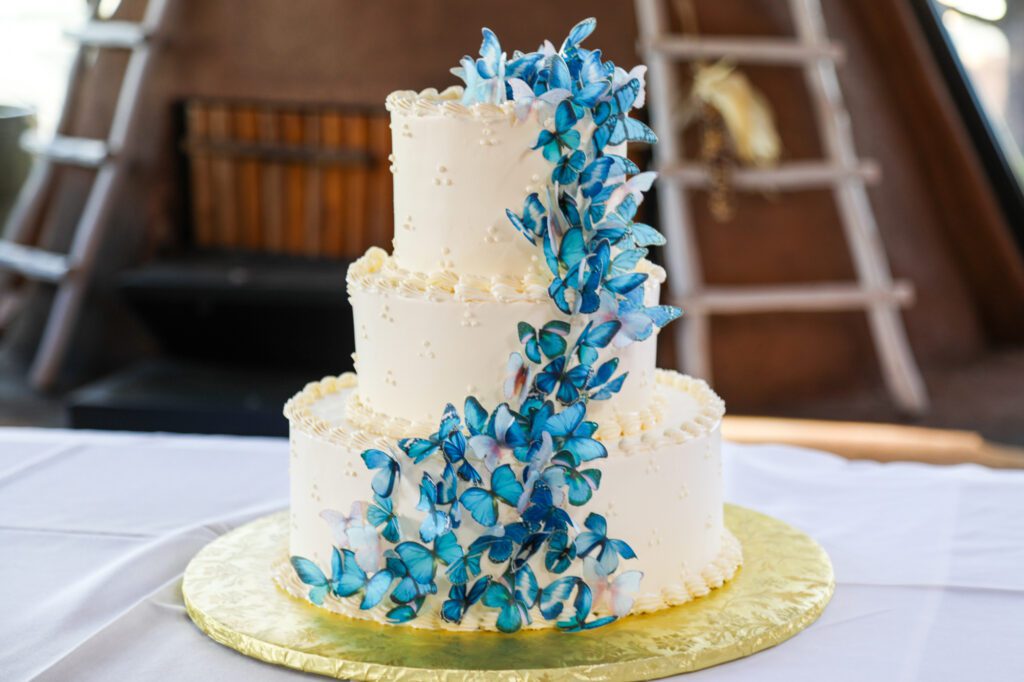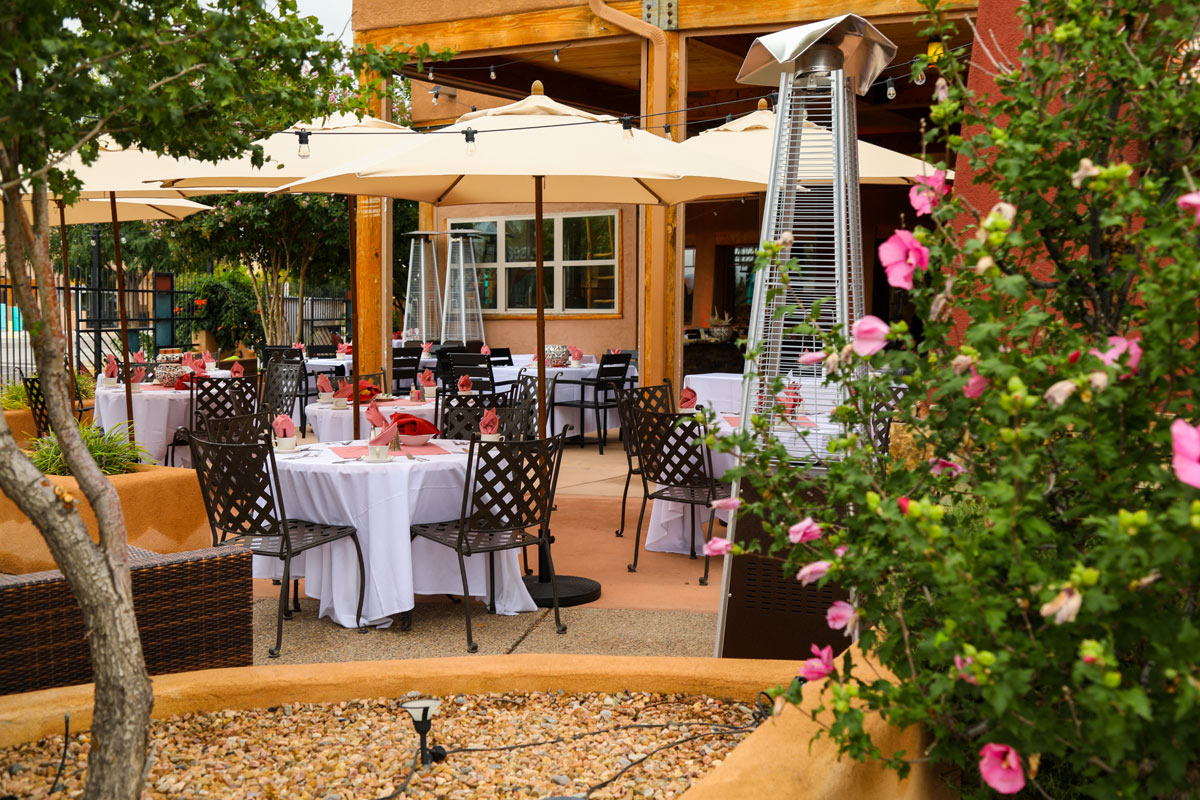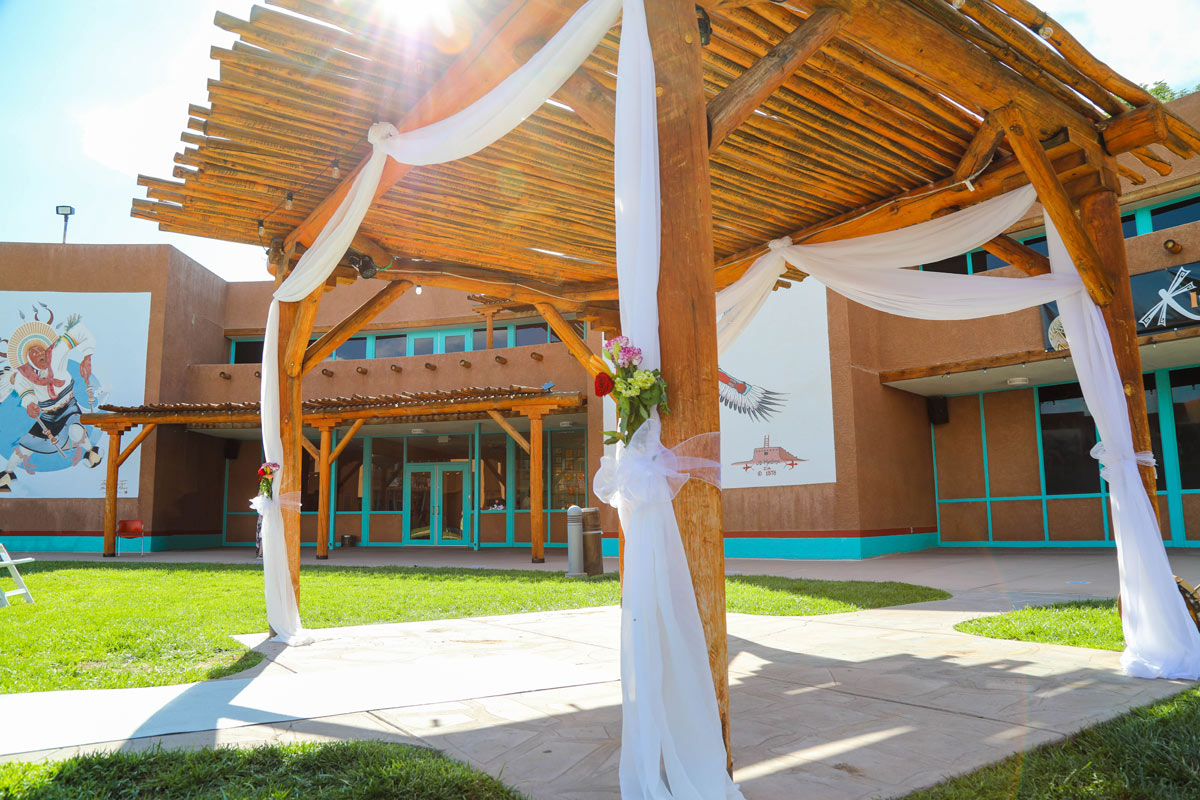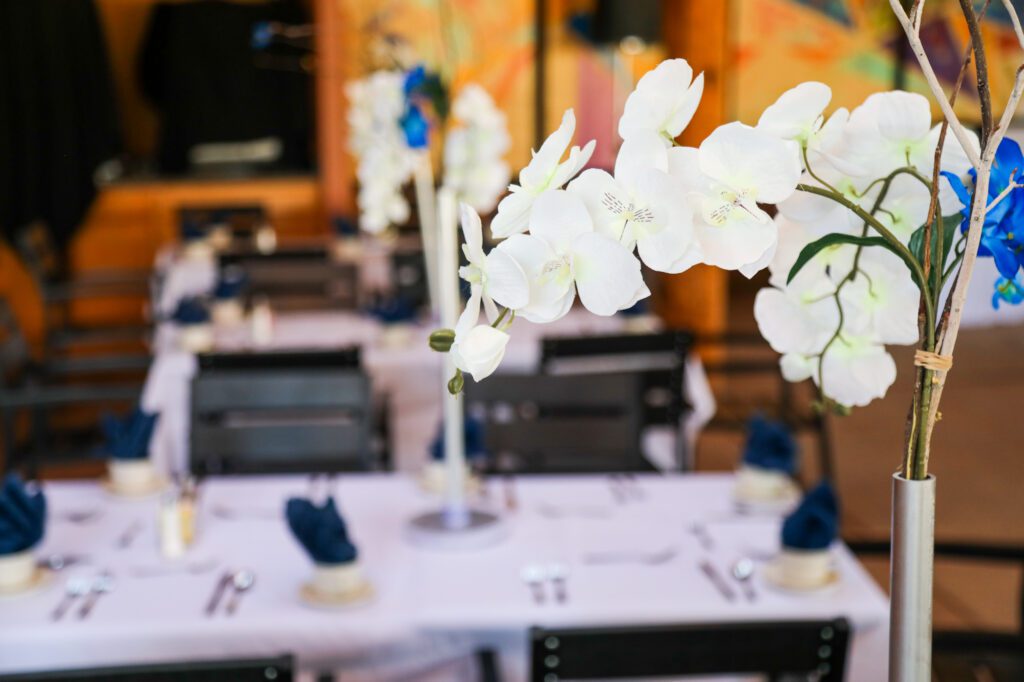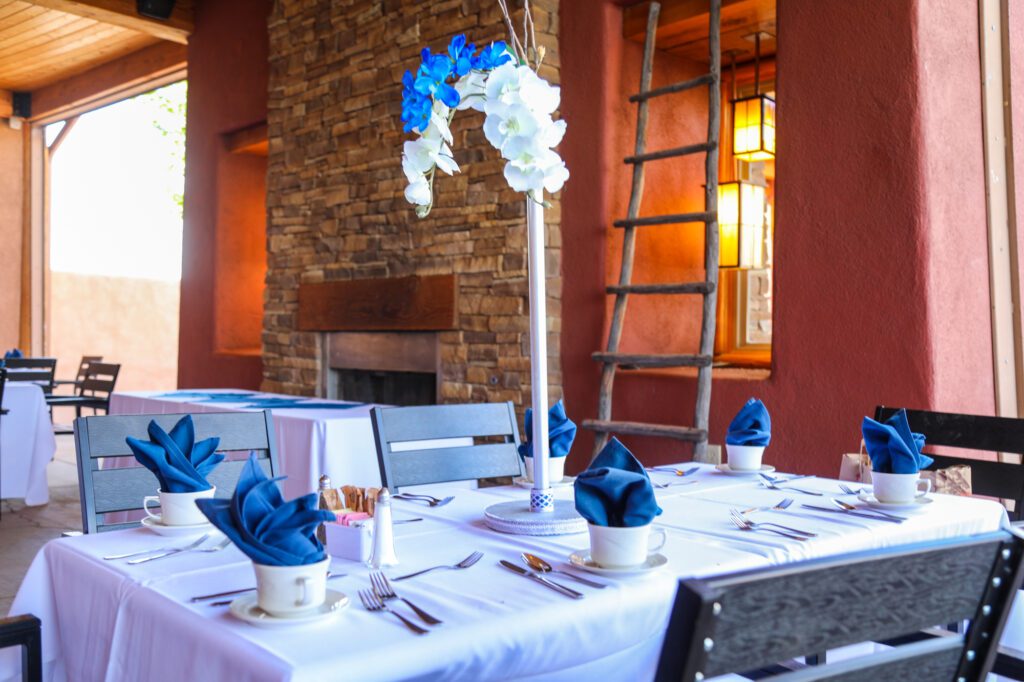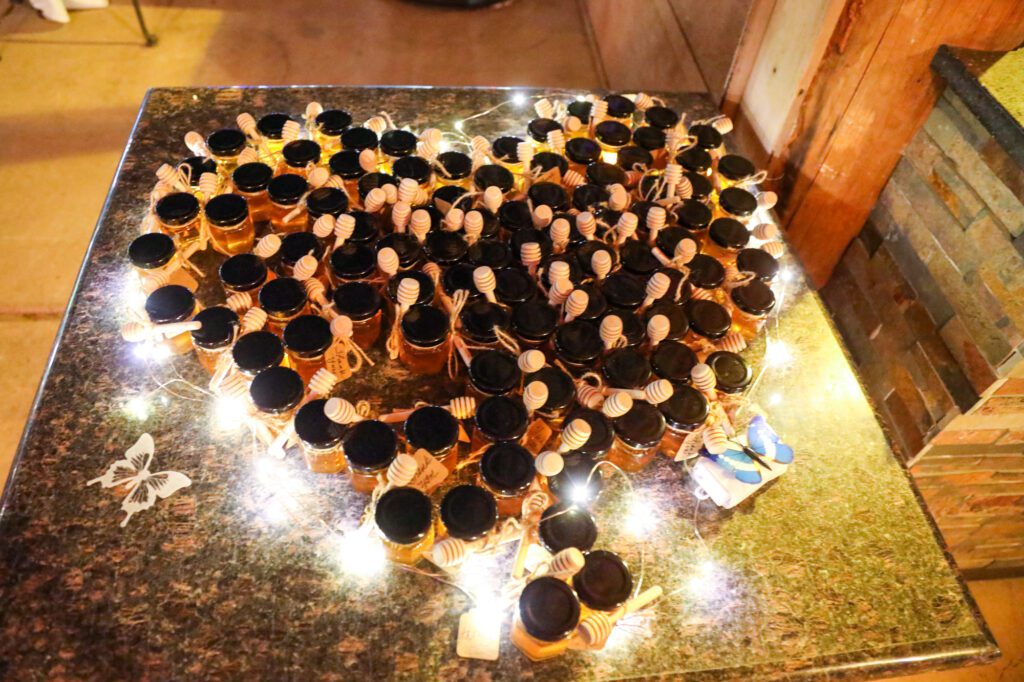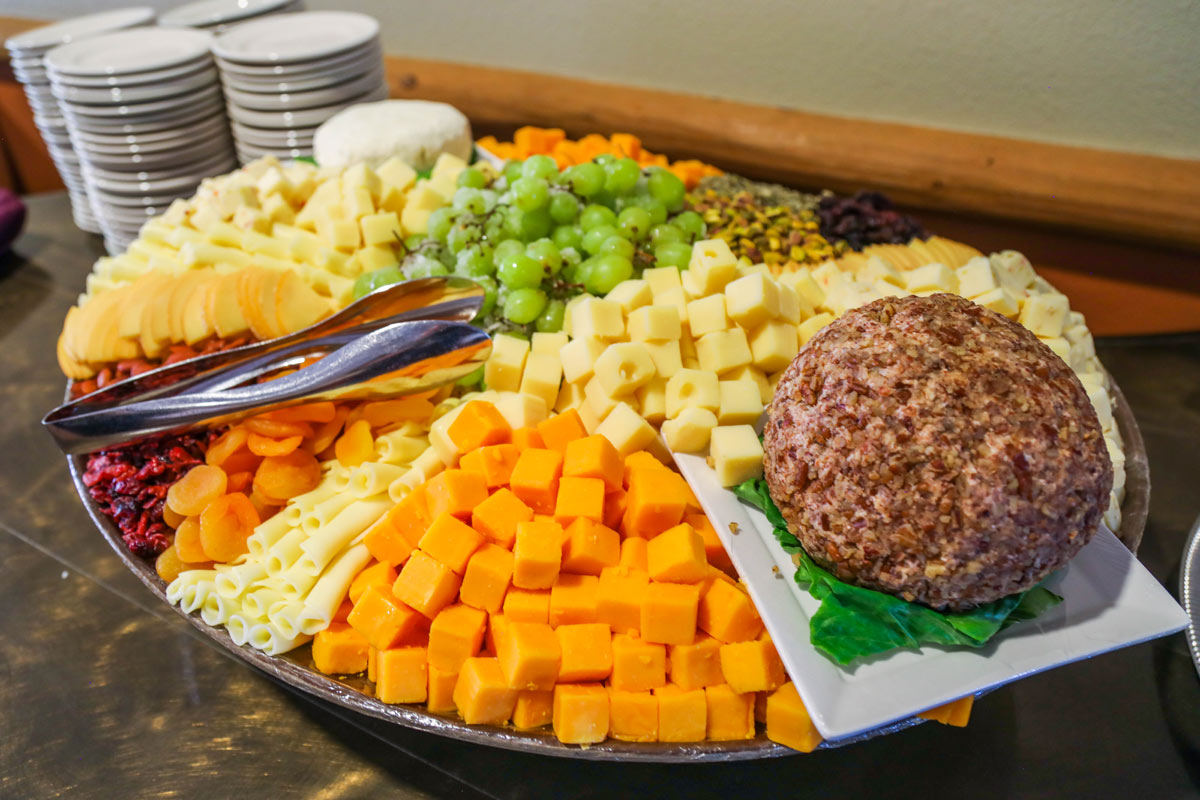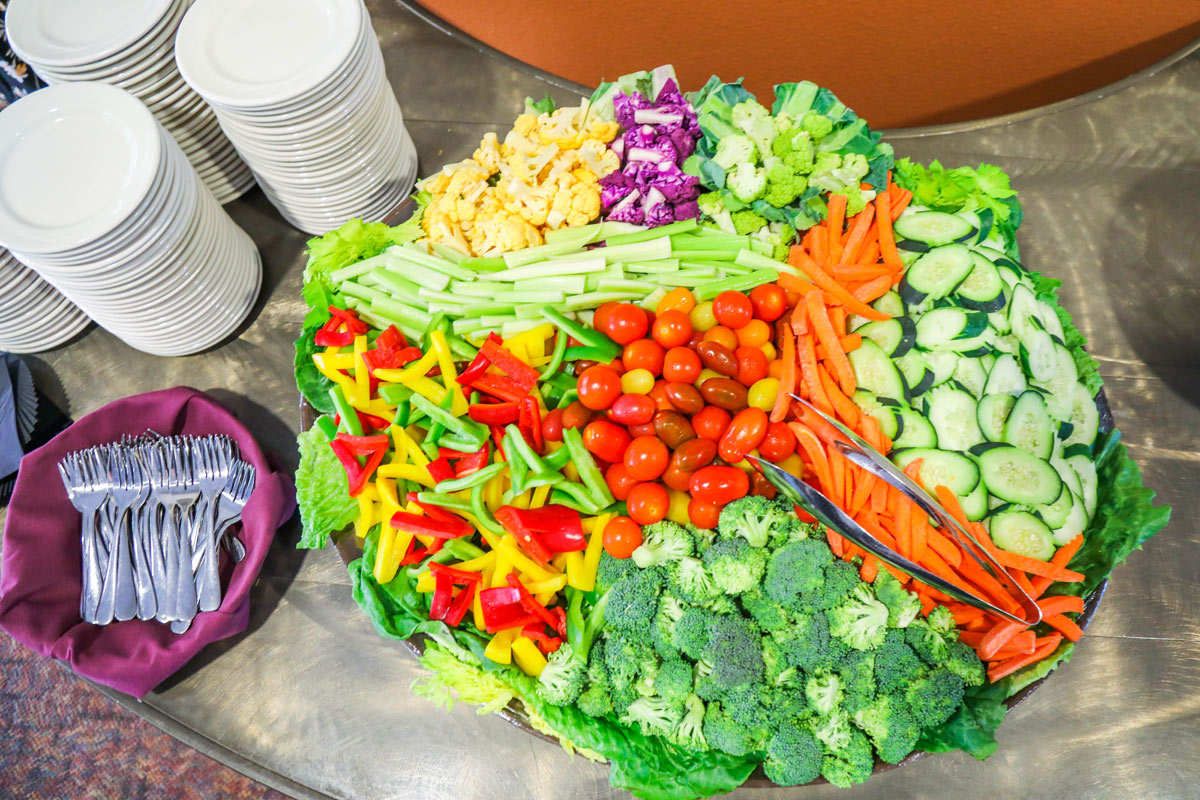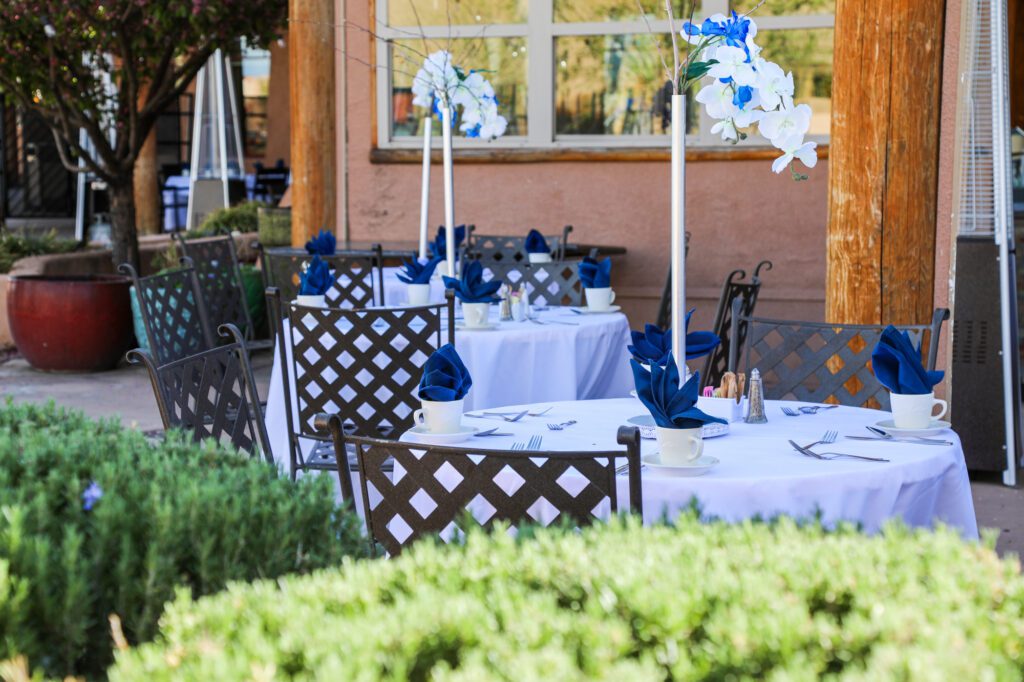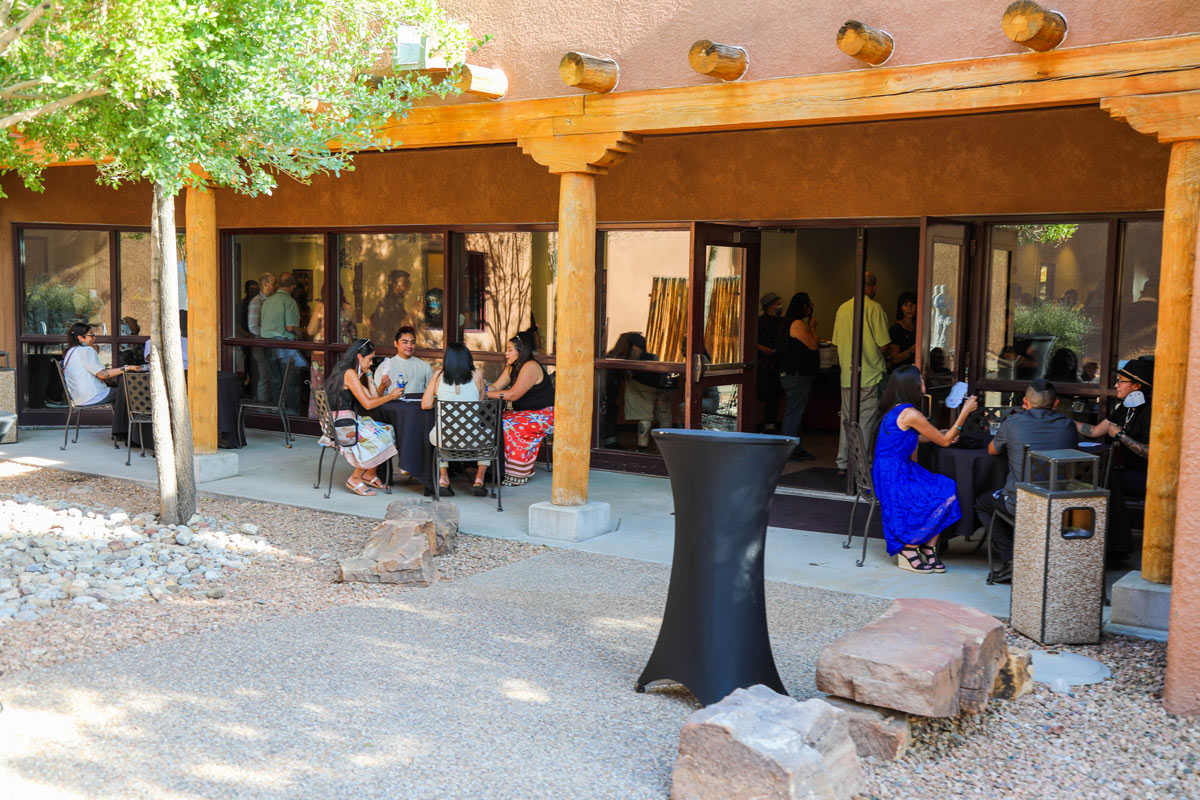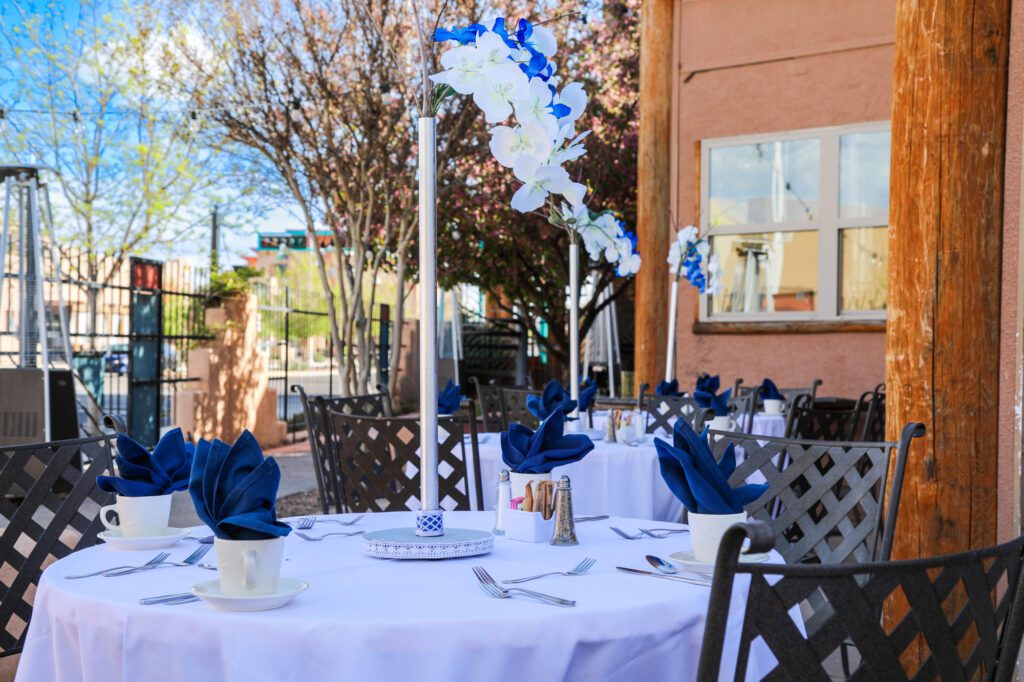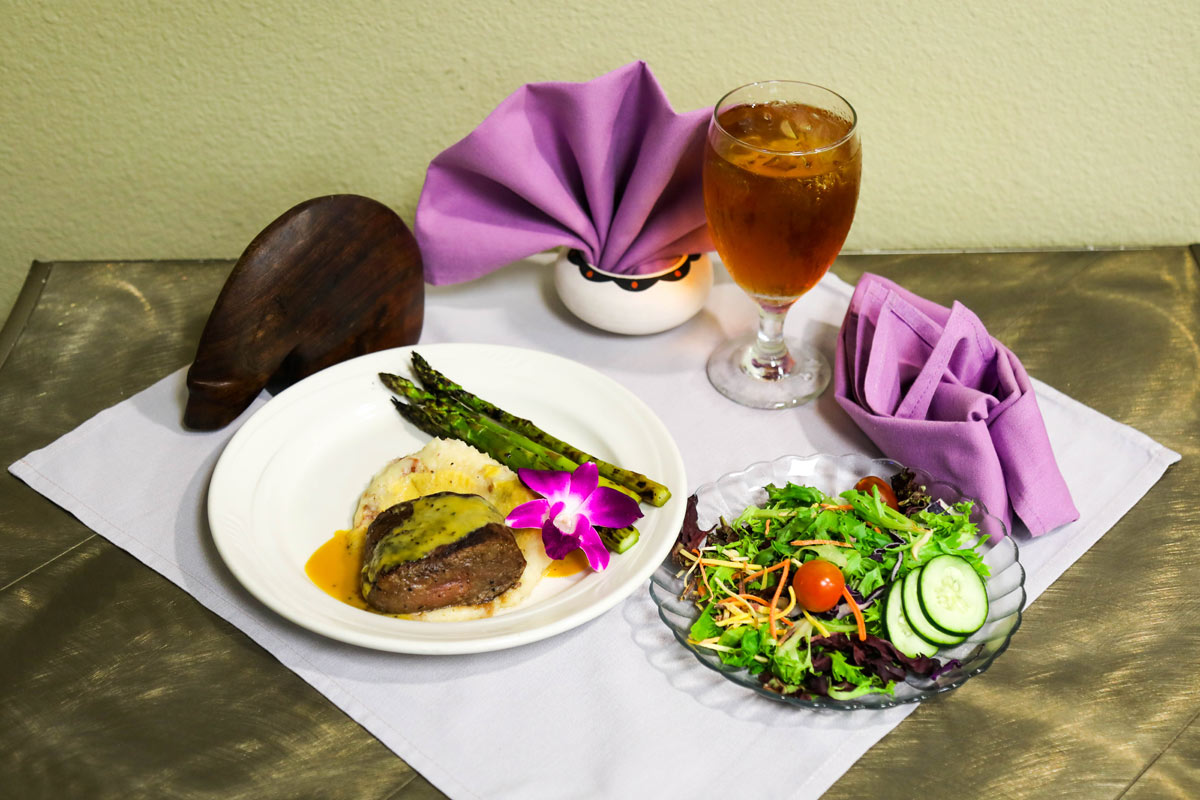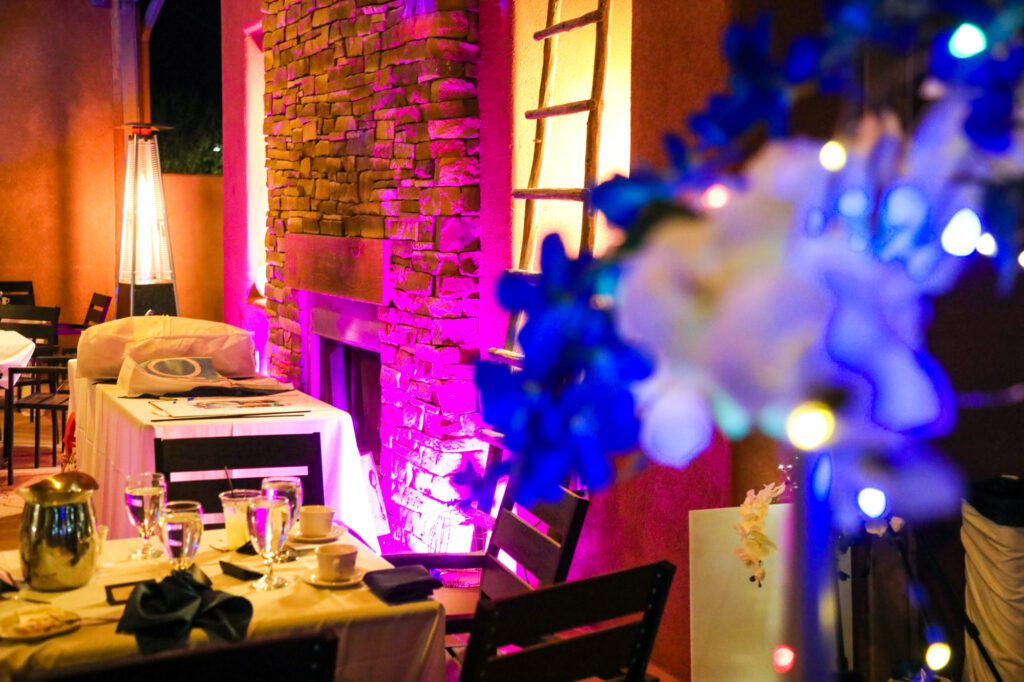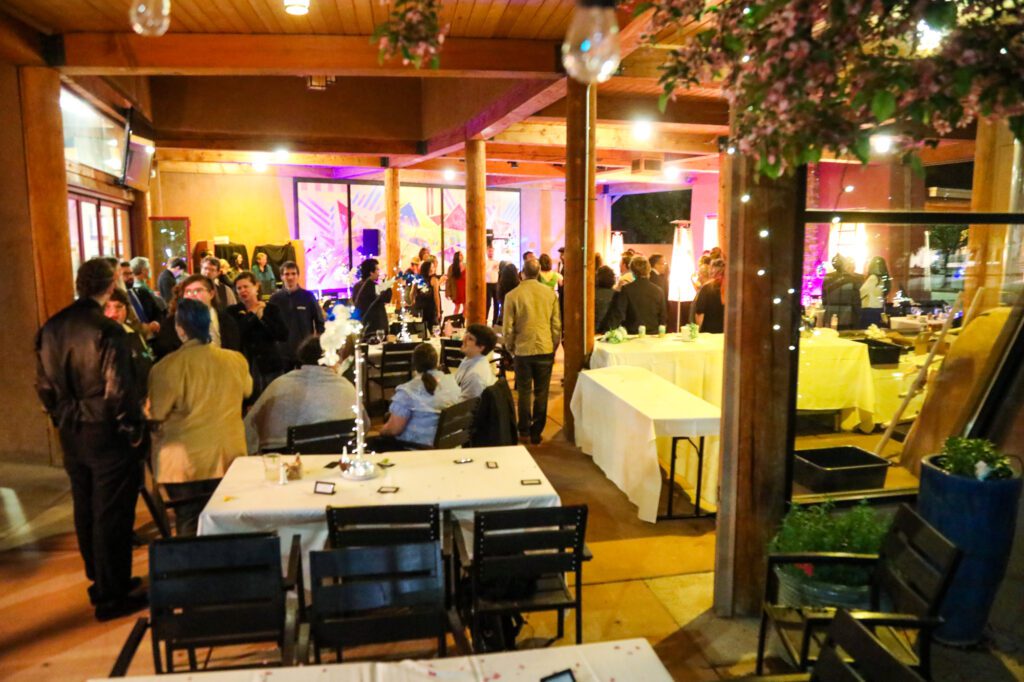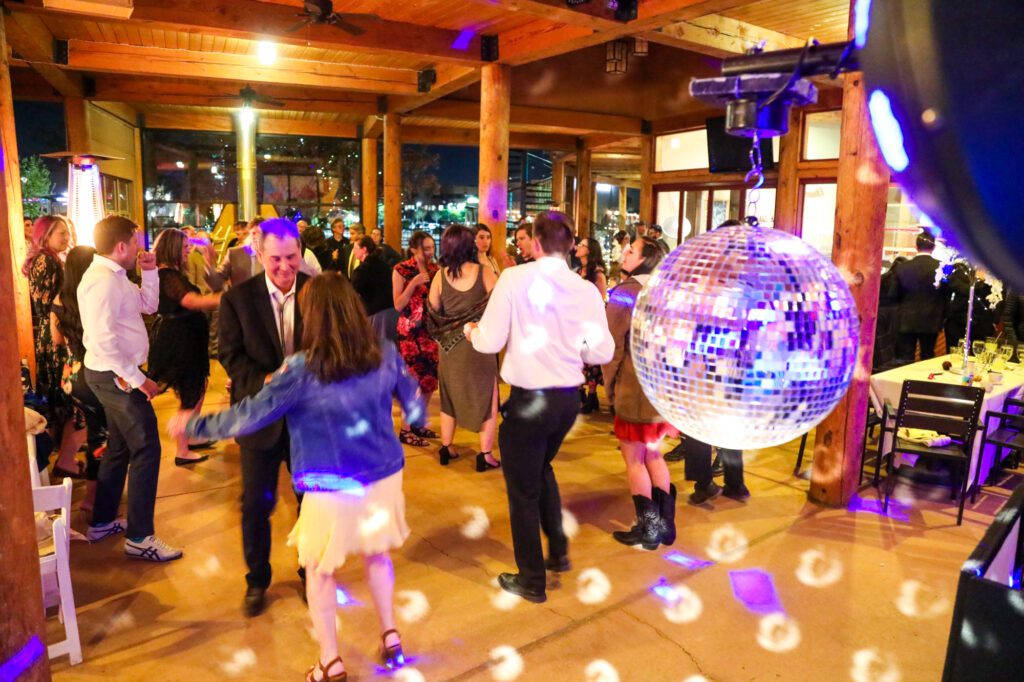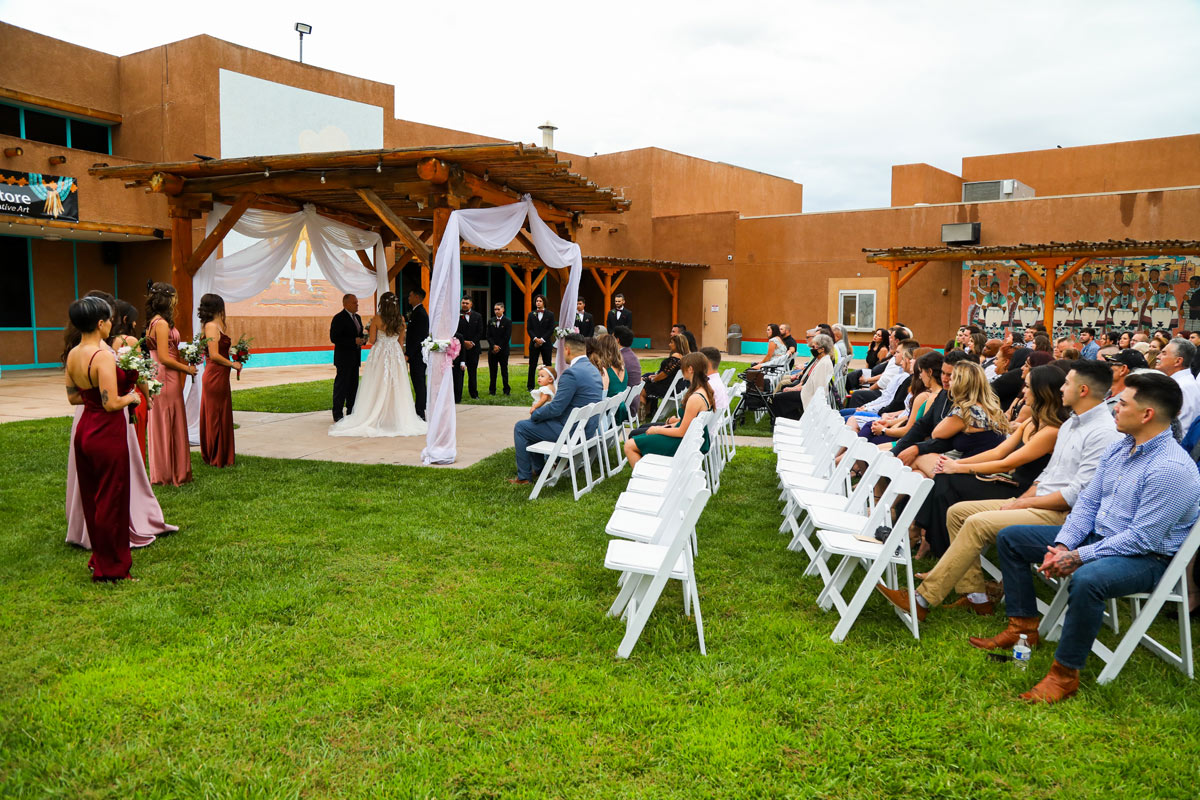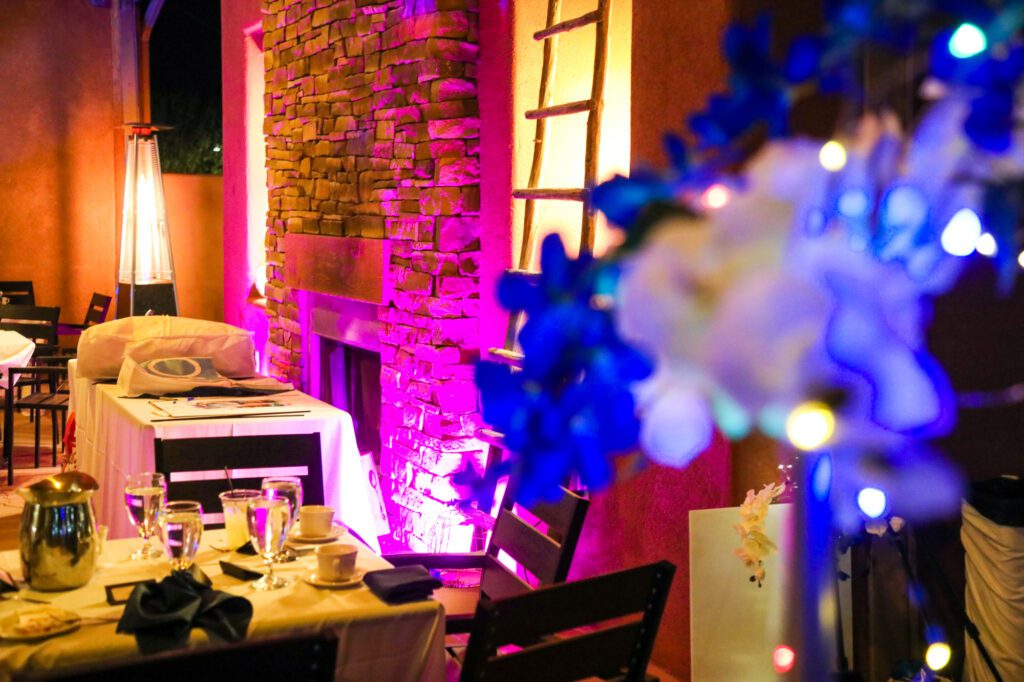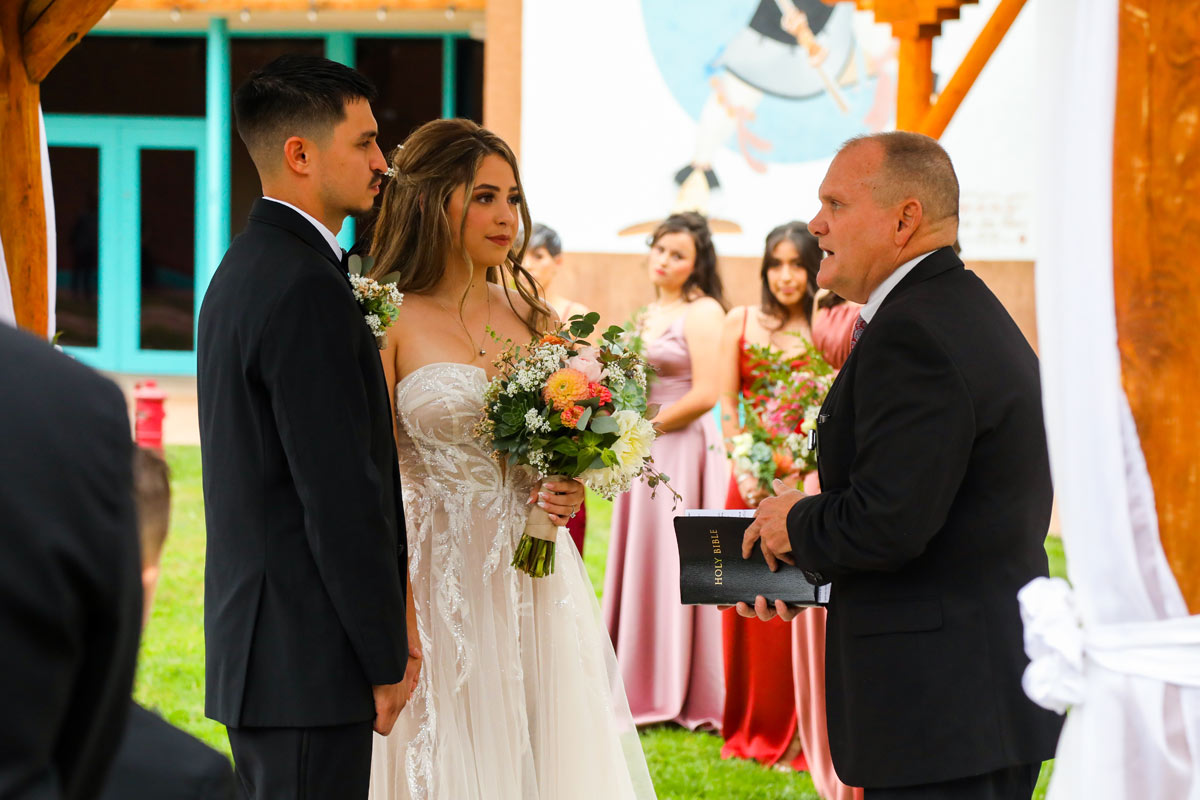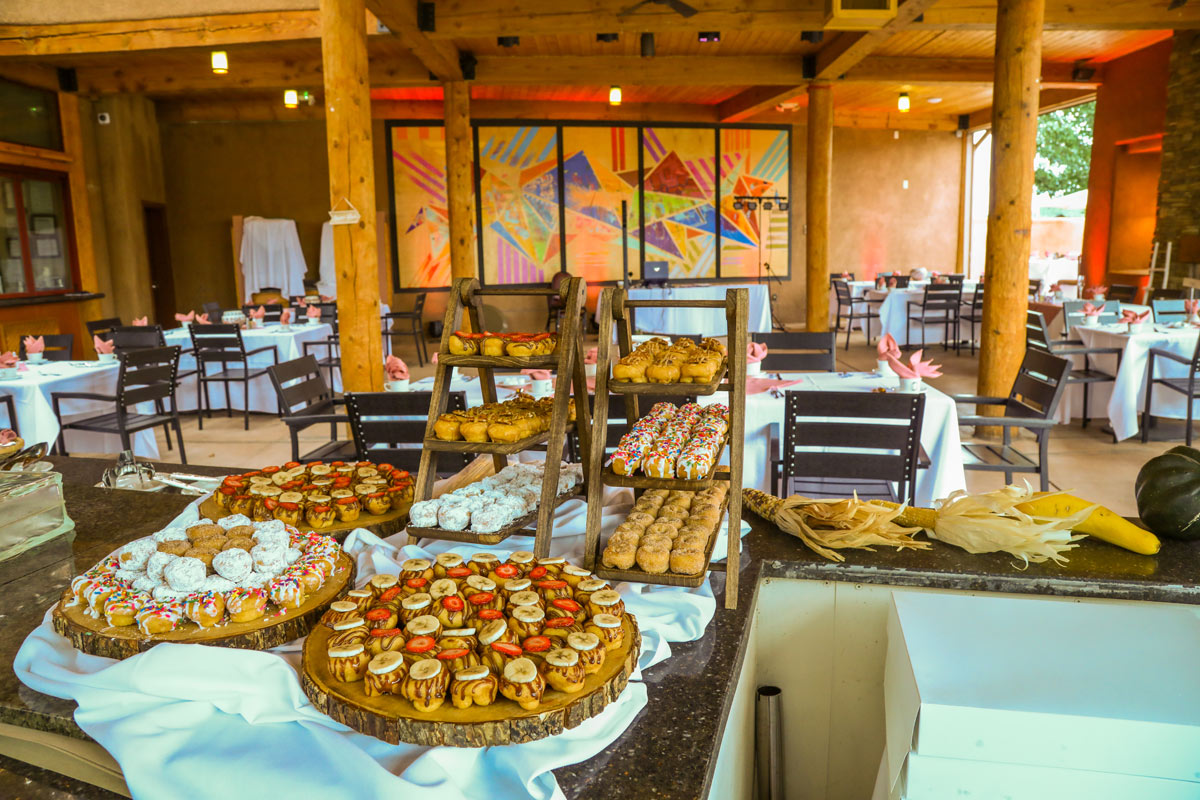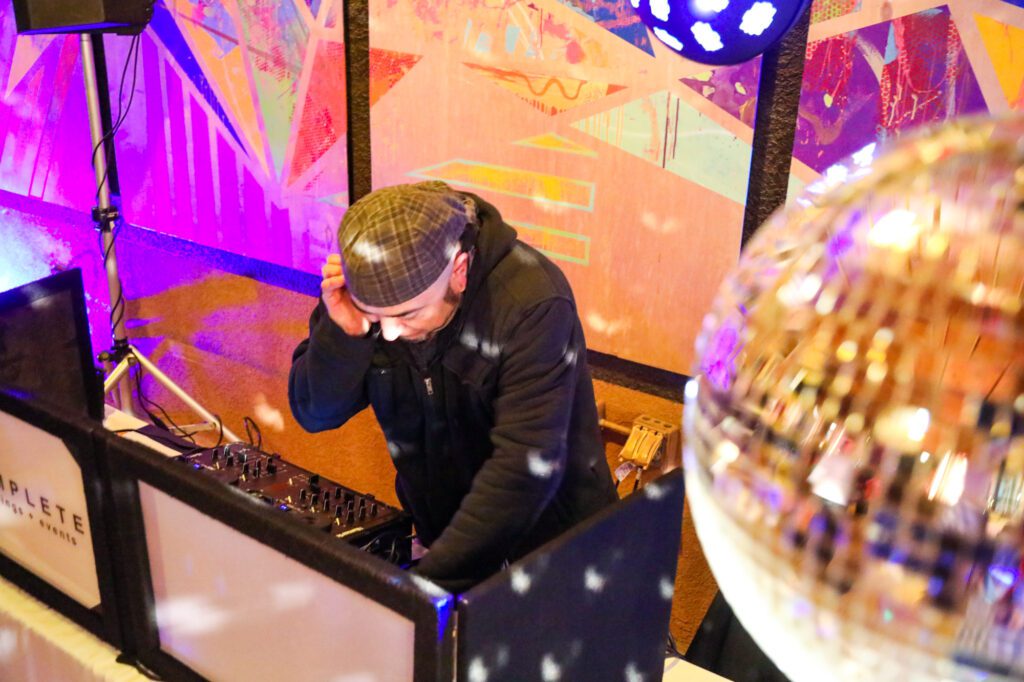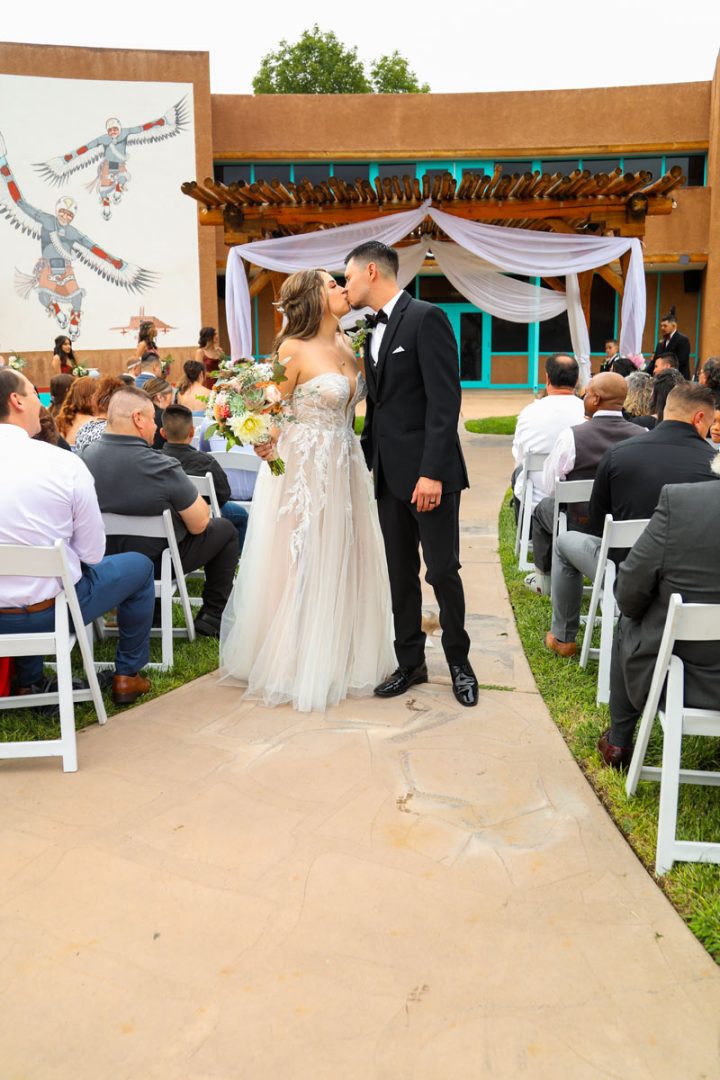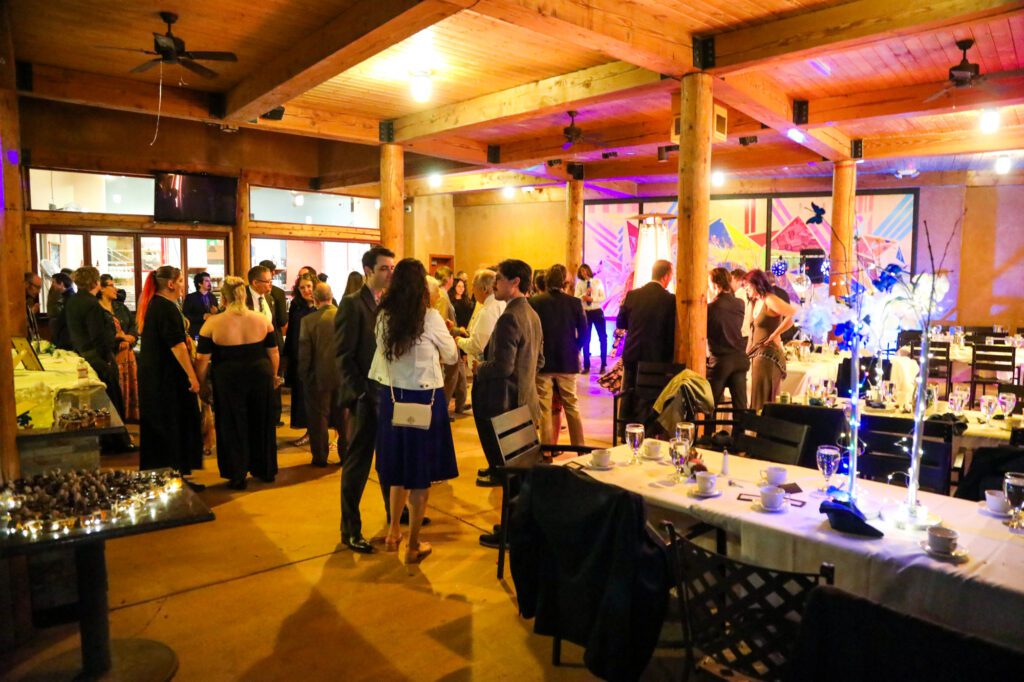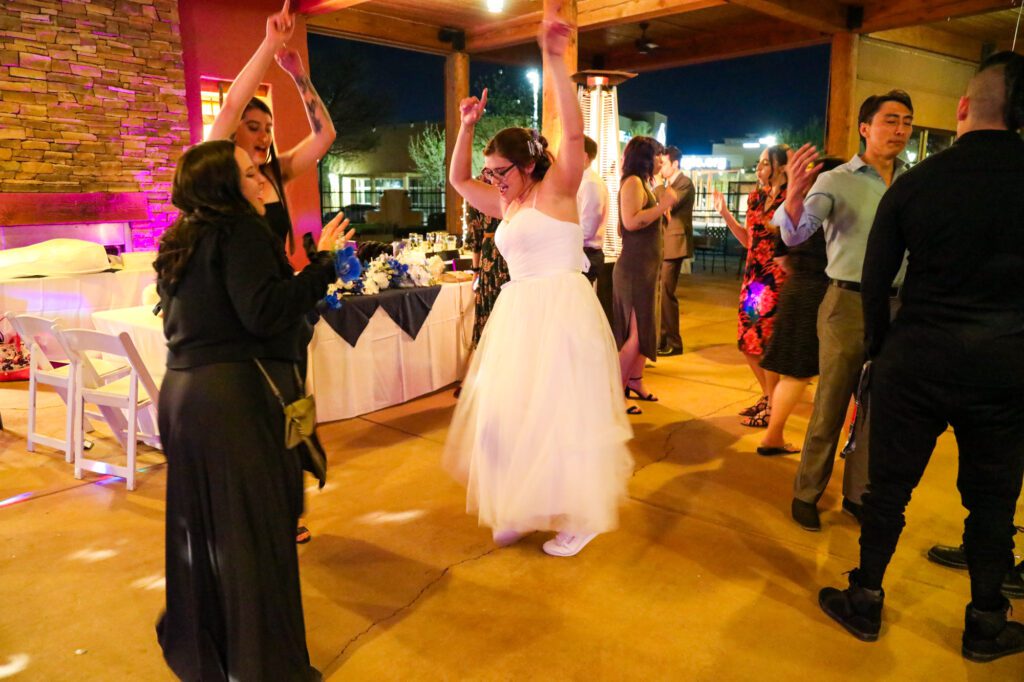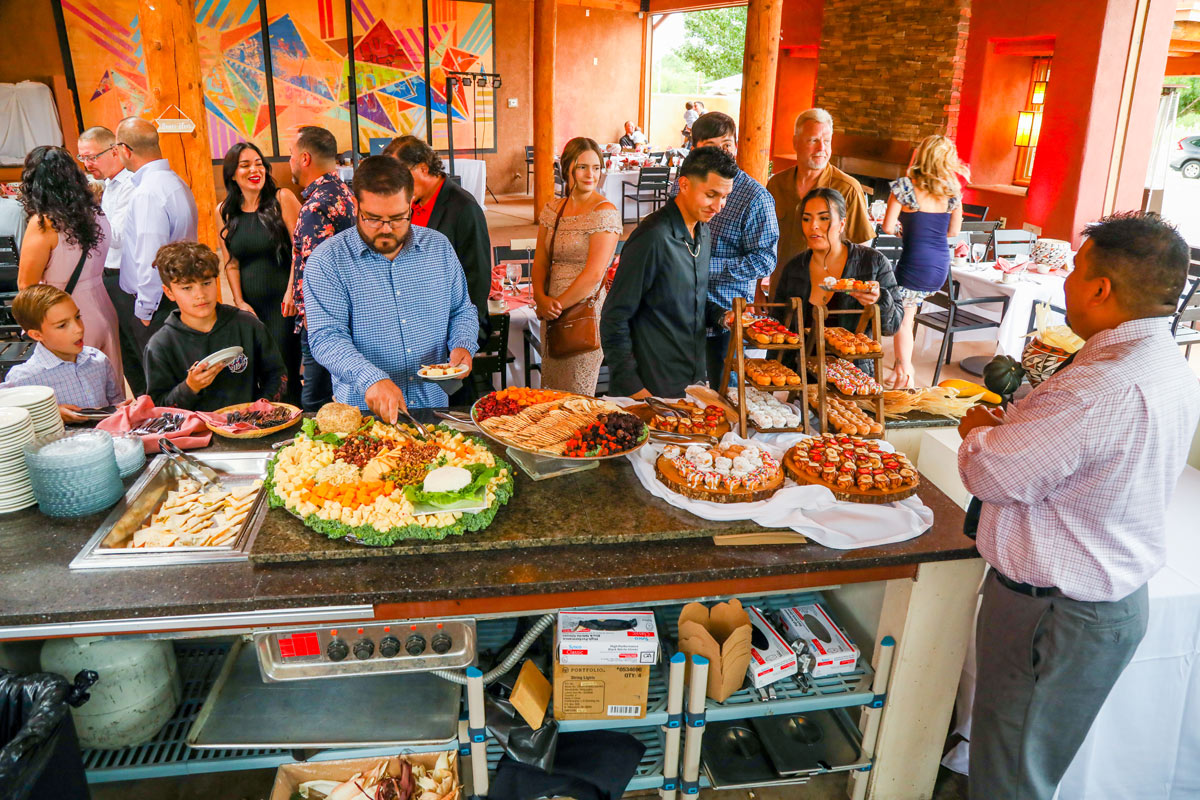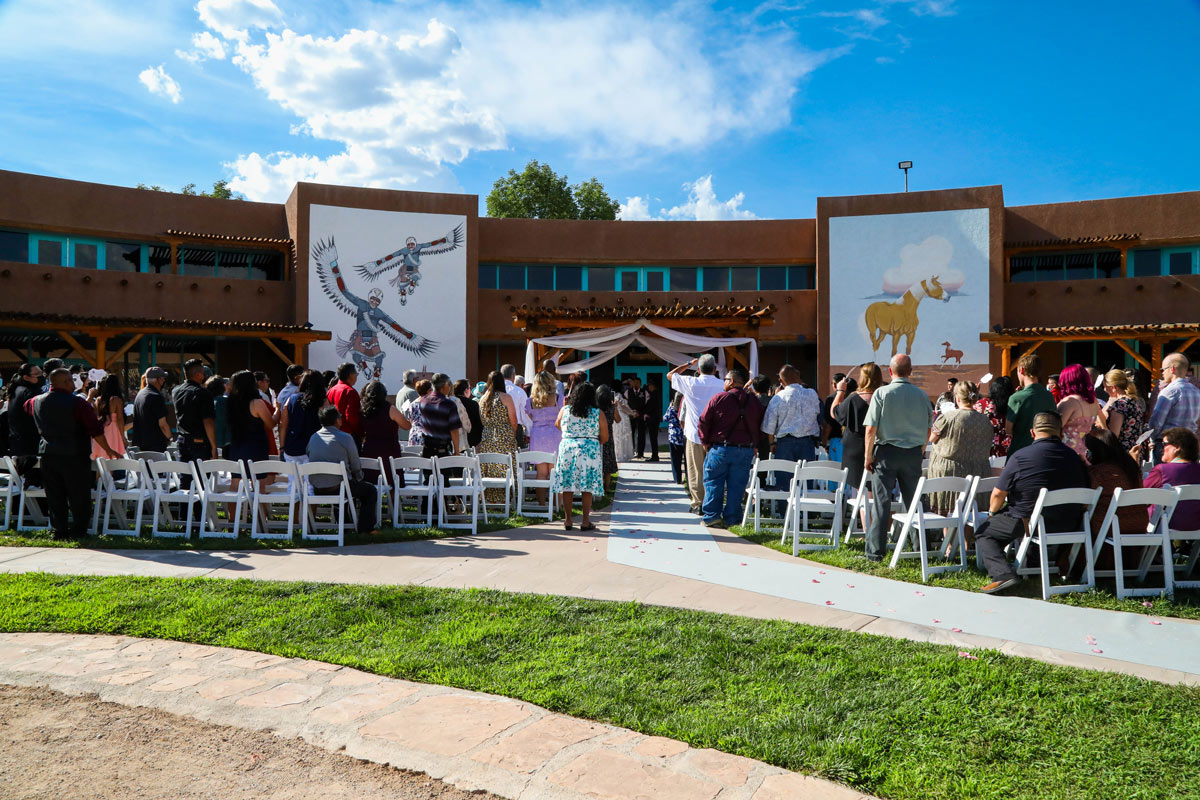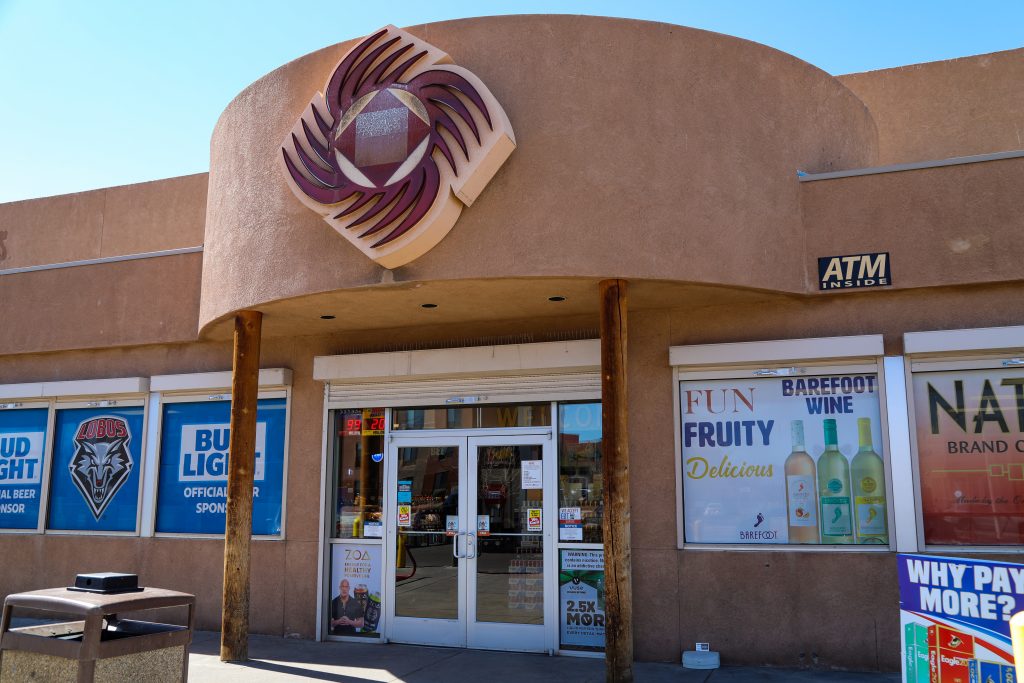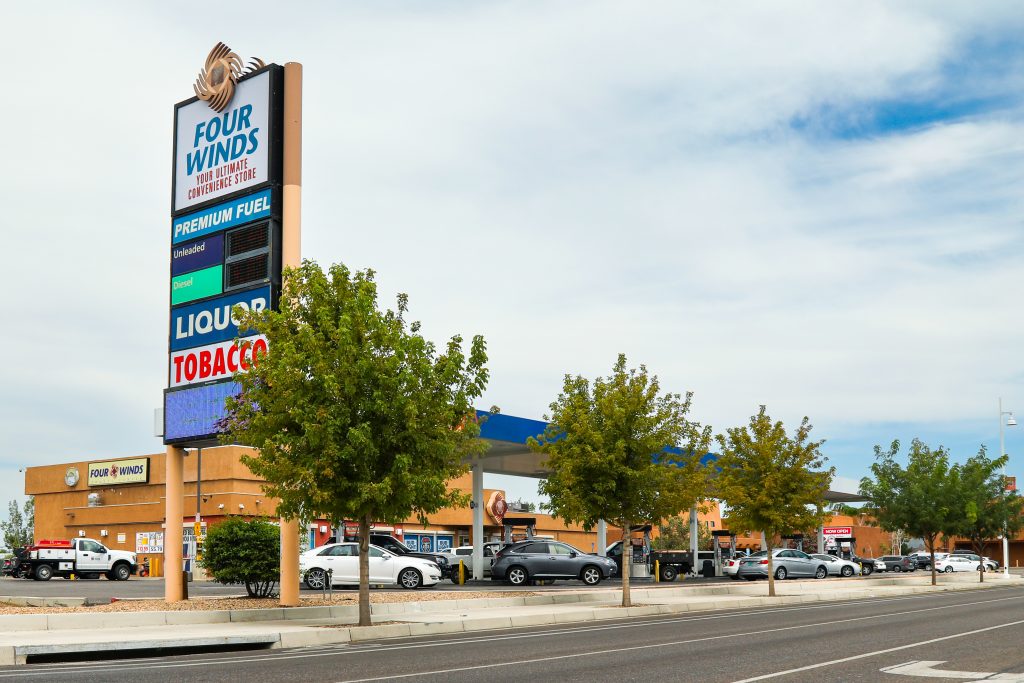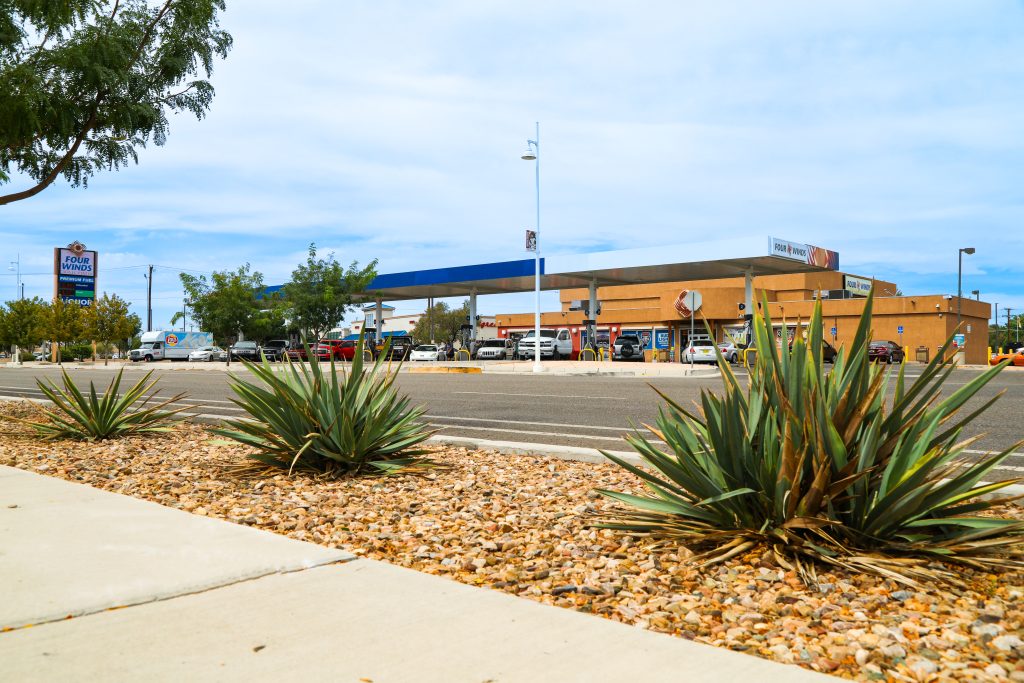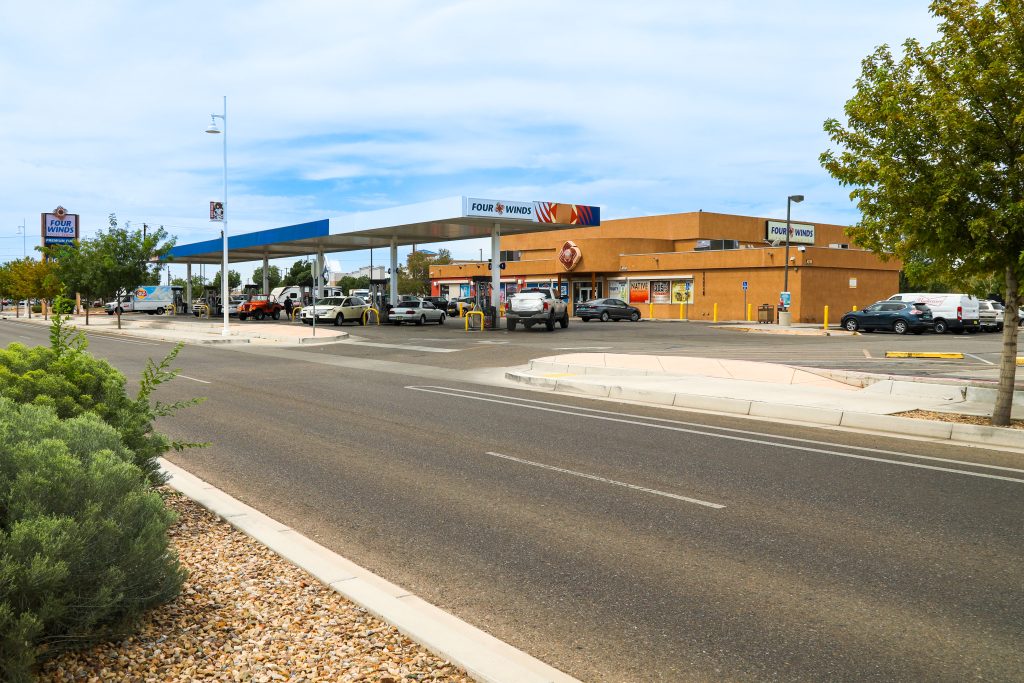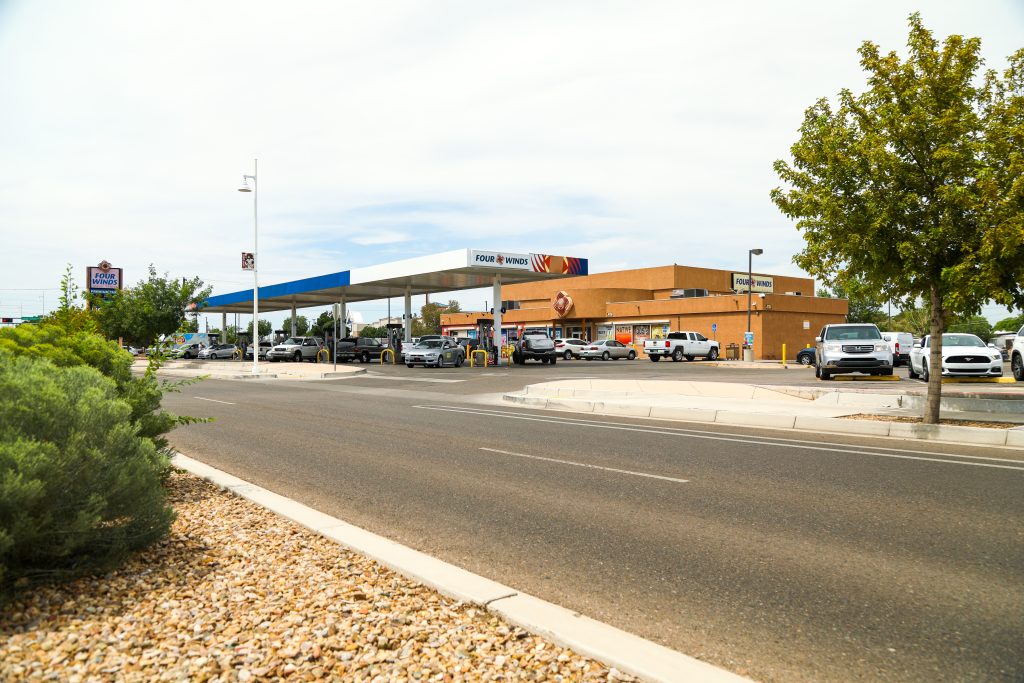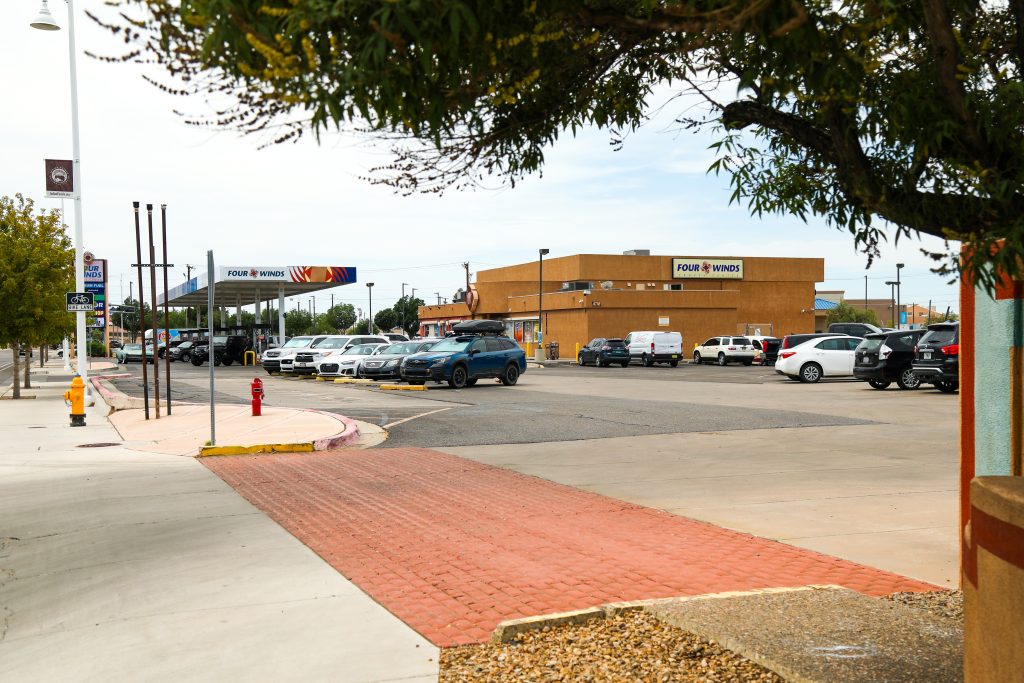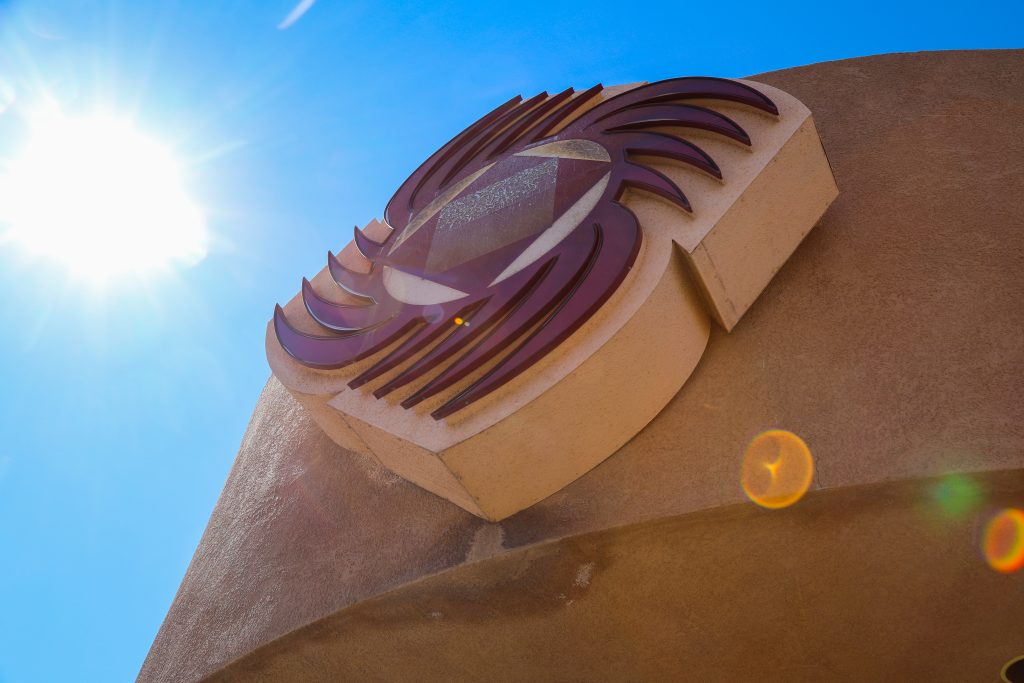Highlighting Native Women in the Library Field
Indigenous Connections & Collections
This blog aspires to connect readers to Indigenous* resources, information, and fun stuff at the Indian Pueblo Cultural Center (IPCC) and online. Each month, new content will be shared on various themes.
March 9, 2024
New Mexico tribal libraries and librarians have served their communities for over fifty years. Established in 1968 by Vista volunteers, the Laguna Pueblo Library was one of the first to open. In 1974, Elizabeth “Liz” Wacondo(Laguna Pueblo) was hired as the first librarian at Laguna.
A Library Services and Technology Act (LSTA) grant in 1975 established tribal libraries at the Pueblos of Acoma, Cochiti, Jemez, Laguna, San Ildefonso, Santa Clara, Santo Domino, Zia and Zuni with Library Aides. Today, each of the 19 Pueblos has a library, as well as the Navajo Nation, Mescalero and Jicarilla Apache libraries. Tribal libraries are more than just a place for books and academic learning. They are intergenerational community centers to learn traditional arts and language, experience other cultural traditions, check out musical instruments, with field trips to places like the Santa Fe opera, to name a few.
From Historypin are videos highlighting Jemez, Laguna, Mescalero, Santa Clara, and Santo Domingo in “Deep Dive: New Mexico Tribal Public Libraries” featuring Pueblo librarians Cynthia Aguilar (Santo Domingo; retired), Janice Kowemy (Laguna Pueblo), Maureen Wacondo (Jemez/Laguna; retired), and Teresa Naranjo (Santa Clara).
In recognition of Women’s History Month, the ICC blog will highlight several of my Pueblo librarian and archivist colleagues and the work that they do. Each is dedicated to improving information services to and about tribal communities, and to ensuring proper respect of our tribal peoples and history while promoting our proud history and resilience.
Brittany Garcia – Zuni Pueblo
Brittany Garcia is the Archivist at the Pueblo of Zuni Tribal Archives. She has worked for the Pueblo of Zuni since 2016, previously as a Legal Advocate for the New Beginning Program, a Domestic Violence Program and as the Administrative Assistant for the Governor’s office.
In 2014, Brittany graduated from Dartmouth College with a Bachelor of Arts, majoring in Native American Studies. She has certification as a Tribal Court Legal Advocate from the National Tribal Trial College and the University of Wisconsin Law School.
Brittany loves the Harry Potter series and the Sigma Force novels by James Rollins. She loves playing games (video, board and card) with family. Some of her favorite movies (influenced by her one-year-old grandson) are Moana, Coco, and Ratatouille. She also enjoys crocheting, sewing, quilting, and designing.
Q: Why did you become an archivist?
A: To be truthful, I got started in archives when I needed a career change, I previously worked as a Legal Advocate for a Domestic Violence program, which can be very heavy and is mentally demanding work. I was dealing with depression and needed to transition into something that would allow me to heal myself. An Archives and Records Management position opened up and, with my past experience as an Administrative Assistant, I was able to secure the position. I quickly fell in love with archives. Given my aspirations earlier in my life—I wanted to be an Egyptologist or an archaeologist, in addition to my love of books, and with my degree in Native American Studies—Archives, especially a tribal archives, seemed to be wonderful fit for me.
Delving into and learning how to steward the tribe’s recent history, in addition to learning how to use technology in supplementing the preservation and generation of new records, has captured me. I’m looking at how we can use the archives to help community members to care for the Pueblo of Zuni’s Tribal organizations records, but also diving more into community archiving by teaching classes and really becoming a cultural archive for the Pueblo of Zuni. There is so much opportunity for the future, and so much to accomplish to get us to that point. I’m a little intimidated by everything that still needs to be accomplished in order to get to what I, and others envision. Knowing it’s for a community that is rich in history and culture and knowing that it’s for my grandson who is Zuni, I know I can do it! It’s a labor of love and commitment.
Q: As an archivist, what services do you provide?
A: Right now, we provide research and help in processing information requests. We are working on expanding operations to include more records management for the tribal organization, with plans for document disposition and a repository in the future. Additionally, we are setting up an AV room for use in preservation and digitization and hope to have that up and running by the end of the year. Our hope is that the AV room can be used not only for preservation and digitization, but also in the creation of other digital media- podcasts, videos, photos, etc., both by Tribal programs and by the community.
Q: What does your service to your community mean to you?
A: To me, service to my community means using my resources—including, but not limited to my education and abilities—to help further my community and to contribute towards a better future for all, no matter how big or small the contribution may be perceived to be. I believe that if all are working/contributing towards the betterment of the community, each step will bring us closer to the community that we want. Some services are more visible, like picking up trash or cleaning ditches or building and staffing a hospital. Other activities are less visible, but every bit as important—like helping to care for records and history.
Q: As a tribal archivist, what is your hope for what you want to accomplish for your community?
A: Short answer: I just hope to help the Pueblo of Zuni steward their own records, both those currently in existence and those that will be created, in a way that will help the community, both now and in the future.
Longer answer: There is so much that I want to accomplish! I want to help grow the archives and the Zuni Cultural and Educational Resources Center to really be a powerhouse of cultural learning and preservation for the community. I envision the Cultural Center becoming the heart of the community, where learning and culture happen daily—language learning, community archiving (photos, audio and video the community is interested in preserving), preservation of textual/governmental records, as well as traditional arts and crafts preservation. We dream of having workshops for artists with space for them to teach and share their craft before it dies out. The Archives would be at the heart of this and would grow to also include a repository for the tribal organization programs. We are growing in that direction with the start of AV room and exploring how we can use the archives in unexpected ways to help the community in retaining and helping Zuni culture.
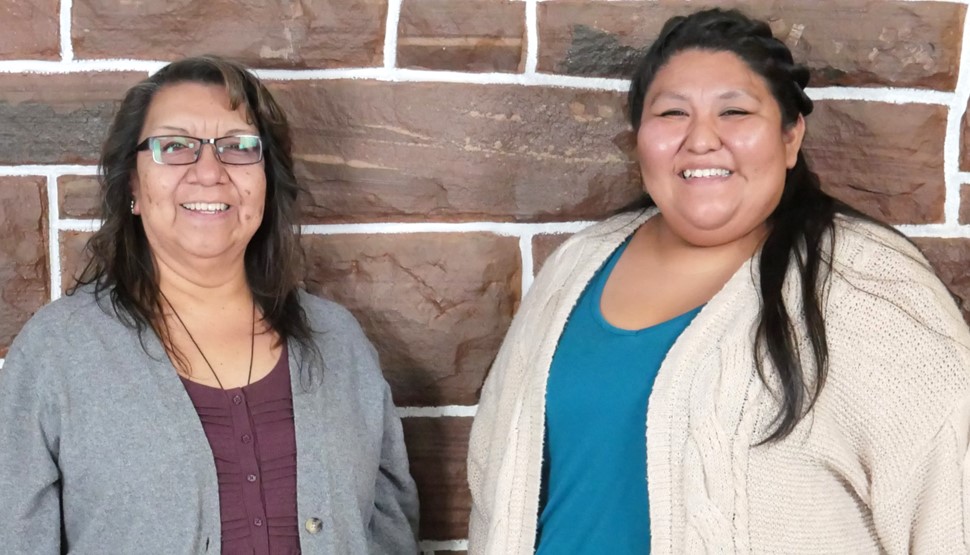
Codi Home – Zuni Pueblo
Cordelia Hooee is currently in her second year of a four-year term as Lieutenant Governor of Zuni Pueblo. Previously, she served as the Archivist and Cultural Resources Manager of the Cultural Resources Center, which includes the Zuni Tribal Archives, Zuni Public Library, A:shiwi A:wan Museum and Heritage Center and Census Program. She has more than 30 years of experience working in libraries and archives. Cordelia has twice been honored with the Community Achievement award from the New Mexico Library Association.
Cordelia is a lifelong learner and has been a college student since 1985. In different degree programs, of course. As a Knowledge River Scholar, Cordelia received her Master of Library and Information Science (MLIS) from the University of Arizona School of Information and is currently enrolled online in the Master of Fine Arts in Cultural Administration program at the Institute of American Indian Arts.
Cordelia believes in the power of education. For her, it’s not a matter of earning a degree, but rather learning and passing on what she’s learned to others. Her motivation for learning is to be knowledgeable so that when people come to her for help—whether it’s for assistance or for information, whether she’s the librarian or archivist or Lt. Governor—she can provide that knowledge. Her motto is: When you limit yourself, you limit the people you serve.
Q: As a tribal archivist, what do you hope to accomplish for your community?
Although I now serve as the Lt. Governor, my passion is still tribal archives and libraries. I hope with this position I can be a louder voice in advocating for the needs of tribal archives and libraries and that I can bring more awareness that will, perhaps, improve the situations of each. As the Lt. Governor, I still use my skills as an archivist to organize all the information and records into collections that our office receives.
Q: What made you decide to run for the position of Lt. Governor?
A: My motivation to run for office was that I saw many things that needed to change, especially for our tribal organization and the education of our children. The Governor and Lt. Governor run as a team. When I was first asked, I was hesitant. I loved what I was doing as the Archivist and Cultural Resources Manager, but at the same time, I was experiencing firsthand things that made me see there were needed changes in our tribal organization. So, I could either keep complaining or take the challenge to really try and change things. I accepted the challenge and decided to run for office. And here I am…the Lt. Governor for the Zuni Tribe!
I never imagined that I would one day serve as Lt. Governor for my tribe. It’s different, for sure, than being an archivist. I will always remember my very first All Pueblo Council of Governor’s meeting. I looked around the room at the Pueblo leadership and I suddenly realized I was the only woman present. It was intimidating, to tell the truth. There’s so much to learn and it’s overwhelming at times, but I remind myself that I’m in it for my people.
I’ve accomplished a lot both professionally and academically. I’ve had support and encouragement from so many people and I owe a part of my success to them. I was recognized by my tribal organization for my work as the tribal librarian. My career in library and archives has spanned over 30 years and I’m proud of that.
Cordelia was one of twenty women interviewed for the Journeys and Pathways: Contemporary Pueblo Women in Leadership, Service, and the Arts oral history project. She and her mentor, Marnella Kukate-Yepa (Zuni Pueblo) discuss the importance of mentorship in their interview, “Mentors and Mentoring: Continued Success in Life’s Journey.”
Sarah Kostelecky – Zuni Pueblo
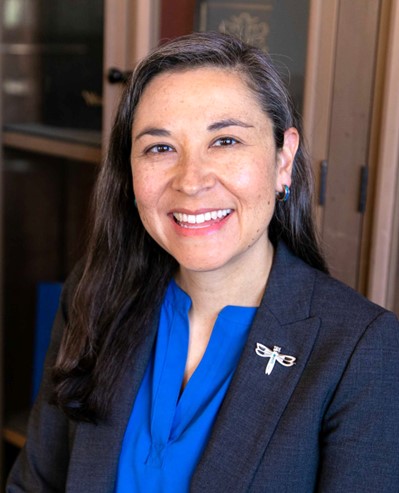
Sarah Kostelecky works at the University of New Mexico (UNM) University Libraries and is the Director of Digital Initiatives and Scholarly Communication and an Associate Professor. Previously, she served as the Education Librarian and Access Services Librarian in the Indigenous Nations Library Program (INLP). Before working at UNM Libraries, Sarah was the Library Director at the Institute of American Indian Arts (IAIA) and a children’s librarian at the Albuquerque/Bernalillo County libraries.
Sarah was a Spectrum Scholar and earned an MA in Information Resources and Library Science and a BA in Sociology from the University of Arizona.
Along with David A. Hurley and Paulita Aguilar (Santo Domingo Pueblo), she co-edited “Sharing Knowledge and Smashing Stereotypes: Representing Native American, First Nation, and Indigenous Realities in Library Collections,” a special double issue of the journal, Collection Management. She co-authored “Cultural Humility” with David A. Hurley and Lori Townsend (Shoshone-Paiute Tribes of Duck Valley).
Sarah’s work is a great example of the various positions one can do within the library field.
Q: What does your job as Director of Digital Initiatives and Scholarly Communication entail?
A: As the Director of Digital Initiatives and Scholarly Communication, my department works to support the digital publication of research and educational materials created on the UNM campus and from partners at libraries/archives/museums in the state of New Mexico. That includes scanning physical items, describing the materials so they can be found by users, and publishing them for researchers.
I focus on supporting 1) the open digital publication of research from the UNM campus and 2) the digitization of physical collections about New Mexico history and culture with partners in libraries and archives across the state. This work is grounded in the idea of providing free access to information for researchers wherever they are (campus and community).
Q: What do you teach?
A: As an assistant professor and librarian, I teach people about engaging in their own research and how to use the resources at UNM. I also engage and publish my own research, much of which is focused on Native American library collections and services.
A couple of highlights from my career are co-authoring and co-editing two books on the use of cultural humility in libraries from ALA Editions; and coordinating the digitization and digital publication of language learning materials from my tribal community.
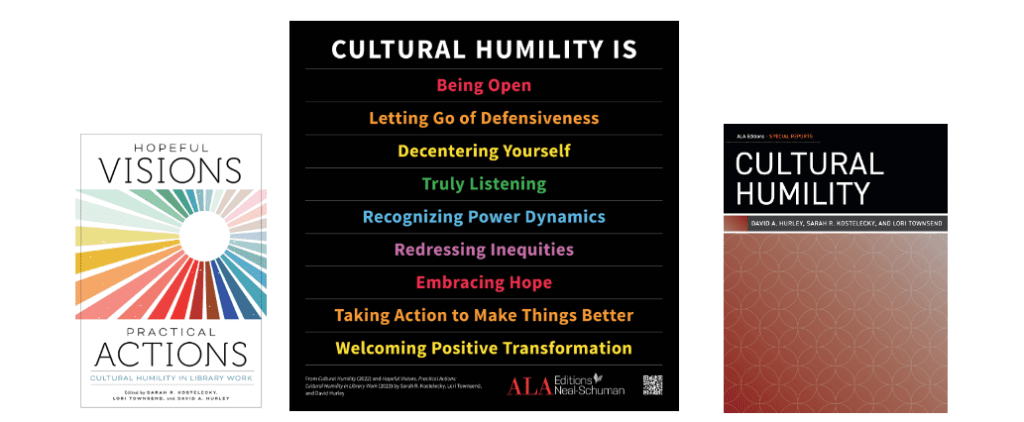
From: Cultural Humility: Elements of Practice at ALA
https://www.ala.org/news/member-news/2023/04/cultural-humility-library-work
Q: How do you hope your work impacts your tribal community?
A: Being a Native librarian from Zuni Pueblo in New Mexico, I center my work in advocating for and highlighting the knowledge and contributions of Native people and perspectives in libraries and archives. I hope to positively impact my tribal community by advocating for the respectful stewardship of library collections and materials about us so other Zuni people can find empowering and accurate information about us and written by us. Through education and sharing stories with my non-Native colleagues, I work to get libraries and the individuals who work in them to acknowledge the biases in library collections, policies, and processes and to move toward centering Indigenous knowledge.
I hope to see more Indigenous people join the field of librarianship so we can continue to increase Indigenous representation in these cultural institutions and improve the library experience for Native people, especially young people, now and in the future.
Q: Why did you decide to become a librarian?

A: I decided I wanted to be a librarian after a student job in college on a grant focused on engaging and building community among tribal libraries, archives, and museums. That was the start of what is now known as ATALM (Association of Tribal Archives, Libraries and Museums), the organization and grant that brings tribal people together who work in those cultural organizations. It was an amazing opportunity to meet and learn from other Native people in the field and to hear about issues affecting tribal cultural organizations, specifically. I had two supervisors in college (one was a Native woman) who both encouraged me to apply to library school and I did. I am so thankful for their encouragement. It has been the right path for me!
Q: How did you get to the current positions you currently have?
A: I have worked at different types of libraries (public, tribal college, university) and in different roles (children’s librarian, library director, education librarian). I enjoy learning and look for positions that will challenge me and provide opportunities to learn new skills or have different types of positive impact. My current role allows me to advocate for respectful access and description of Native American digital materials because I can implement policies that center Indigenous knowledge and expertise.
Q: What do you enjoy about what you do?
A: I enjoy engaging with people and listening to their stories, hearing the passion for their work and the reasons why they engage in their own particular research. Building relationships with library users and colleagues keeps me invigorated as I learn from them while also sharing my experiences and knowledge.
Janice Kowemy – Laguna Pueblo
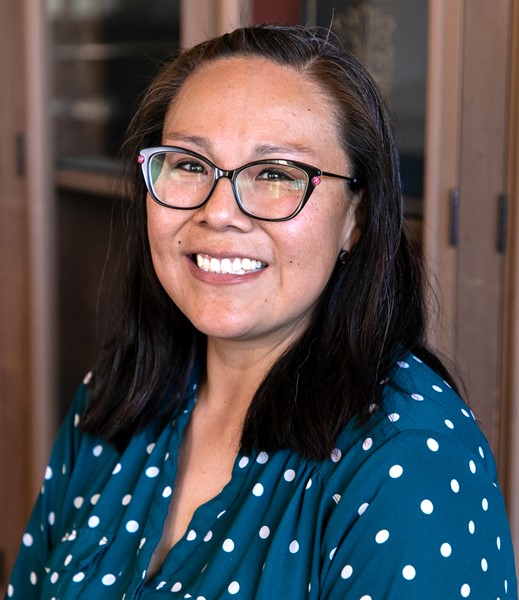
Janice Kowemy manages the Indigenous Nations Library Program (INLP), which is part of the University of New Mexico (UNM) University Libraries, located on the second floor of Zimmerman Library.
Janice succeeded Liz Wacondo as the Library Director for the Laguna Public Library. In 2017, the Association of Tribal Archives, Libraries and Museums (ATALM) recognized the Laguna Pueblo Library with the Library Institutional Excellence Award.
Janice obtained a master’s degree in Information Studies from the University of Texas at Austin. She received a bachelor’s degree in Business Administration (Marketing) from the University of New Mexico.
She has been involved with the New Mexico Library Association. From 2011-2013, Janice was the Vice-President/President elect of the American Indian Library Association. She also serves her tribal community in various capacities.
Janice loves cats, mint chocolate chip ice cream, the Backstreet Boys and New Mexican food. Her quote to live by is: Choose a job you love and you will never have to work a day in your life. (Confucius) I wholeheartedly agree with that!
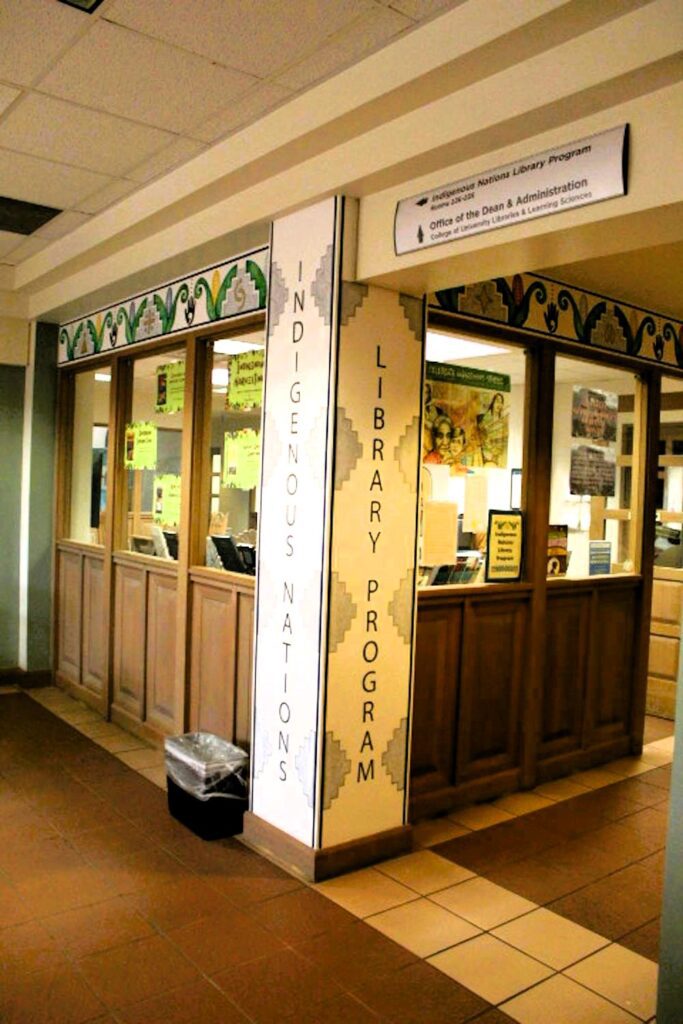
The Indigenous Nations Library Program (INLP) is located at the University of New Mexico, on the 2nd floor of Zimmerman Library. INLP provides a space for indigenous Leaning, promotes indigenous scholarship and cultivates indigenous creation. We provide culturally relevant information and research support, outreach and programming, and culturally safe learning spaces for studying and socializing. The space is also utilized by various student groups to host meetings and workshops.
Q: Why did you become a librarian?
My journey to becoming a librarian was unexpected. I never thought about being a librarian as a career choice. I am so grateful to have had the opportunity to get started on that path.
My high school librarian, Alana McGrattan told me about an opportunity to work the summer after graduation in 2000 at my tribal library through the Bill and Melinda Gates Foundation’s Native American Access to Technology Program. I was also trained through the Gates Foundation for the new technology and equipment given to the library. I had the opportunity to work with Elizabeth Wacondo at the Laguna Public Library. She taught me a lot. She encouraged me to take over after she retired.
I loved helping my community find information resources, find a book to read, help people learn how to use the new computers and software, troubleshoot technology, catalog materials, plan and implement summer reading programs, attend NALSIG meetings, and getting to know the community better.
In 2002, I attended the American Library Association annual conference where I met many librarians from various types of libraries. I met one of my mentors and professors, Dr. Loriene Roy (Anishnabe) from the University of Texas-Austin. She encouraged me to get my Master’s degree in Library Science. Her program, “Honoring Generations,” had received funding from the Laura Bush 21st Century Grant to fund six Indigenous Students to attend the University of Texas-Austin. I ended up going to graduate school in August of 2006. In December of 2007, I graduated and in January 2008 I became the Library Director of the Laguna Public Library. I was in that position for 14 years. Since 2022, I have been a librarian at the University of New Mexico’s Indigenous Nations Library Program.
Q: As a librarian, what services do you provide?
A: Basic library services that include programming, readers advisory, outreach, community collaboration, and research. A few things I am working on include creating display themes of collections on a monthly basis, increasing usage and awareness of collections including Indigenous periodicals, American Indian youth literature, and Indigenous research topics. Migrating Indigenous collections to INLP for increased visibility and circulation. Also, developing Indigenous collections by purchase new materials such as Indigenous graphic novels.
Q: What does your service to your community mean to you?
A: Having a tribal library in the community is important to me because it provides information resources, creates a space for socialization, brings fun and exciting programs to the community, and promotes literacy initiatives.
Q: As a librarian, what is your hope for what you wanted to accomplish (for your community)?
A: I have had the opportunity to work closely with many of the Tribal Libraries Coordinators from the New Mexico State Library since I first started at Laguna in 2000. I have seen the work they did with New Mexico tribes in helping to get a library established in their community. They often did site tours, helped with reports, and offered training in basic library skills. Doing all those things for New Mexico tribal libraries has been a dream of mine.
For the library in my community: To have a fully staffed and funded library, and a bigger library space to include meeting space and a Community Archive.
Debbie Reese – Nambé Owingeh
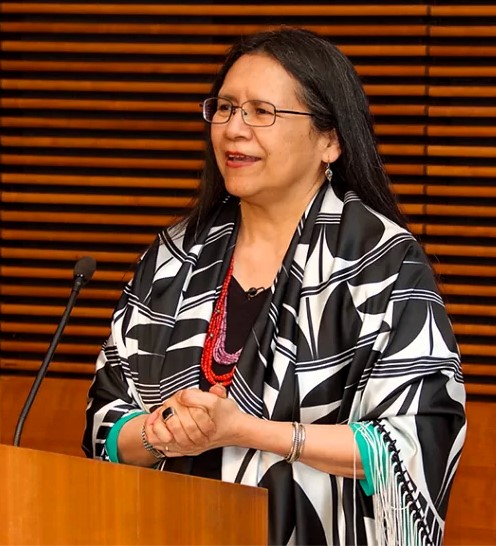
Debbie is a former schoolteacher and Assistant Professor at the University of Illinois, Urbana-Champagne where she helped start an American Indian Studies program.
Debbie earned a PhD in Education from the University of Illinois, Urbana-Champagne. As part of the Circle of Learningcohort, she has a Master of Library and Information Science from San Jose State University.
Debbie has studied representations of Native people in children’s and young adult books for over thirty years. She advocates for factually, historically and culturally accurate books. Her book chapters, articles, essays, and reviews have appeared in print and online academic journals, including publications that are used by teachers and librarians.

From her lesson, “Native Americans Today” at ReadWriteThink.org is a Present-Day Native American Book List and Teaching Native American Literature and Cultures: Additional Teacher Resources.

Established in 2006, American Indians in Children’s Literature (AICL) provides critical analysis of Indigenous peoples in children’s and young adult books. AICL was created to help people develop a critical stance for evaluating American Indians in children’s books. Dr. Jean Mendoza joined AICL as co-editor in 2016. AICL offers reviews of authors and books, as well as links to posts of Best Books for each year that will help you find appropriate books selected by Native people including members of the American Indian Library Association.
End note: There are tribal librarians and archivists of all types across North America working in tribal, public, special, and academic libraries, and community archives. Our number is small. Our resources are often small. We encourage and appreciate collaborations whether to assist with job duties through interns and sharing of skills and equipment. We welcome you to come learn about tribal our communities and history. We are there to help you find accurate information and books about us, especially those written by us.
If you are not sure if, or where, a tribal library is located in your community, reach out to ATALM, your state library, or tribal cultural center.
About the Author
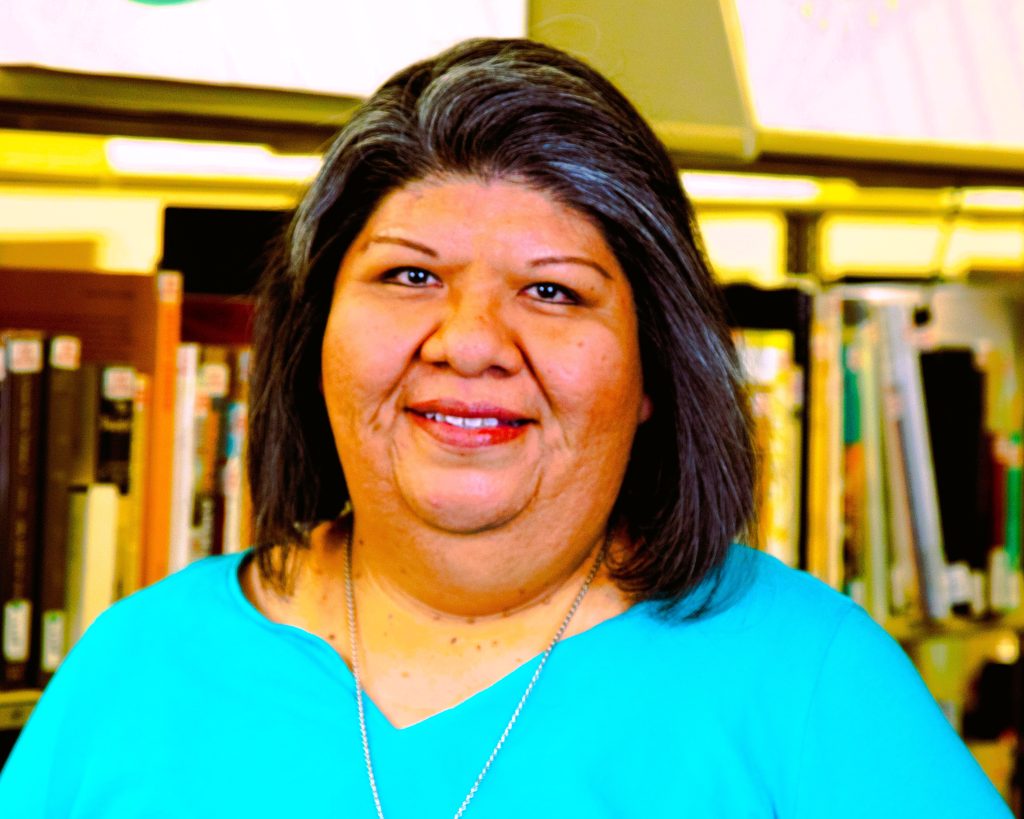
Jonna C. Paden, IPCC Archivist and Librarian, is a tribally enrolled member of Acoma Pueblo. A member of the Circle of Learningcohort, she holds a master’s in library and information science from San José State University where she focused on the career pathway of Archives and Records Management. She is the Vice-Present/President-elect of the American Indian Library Association, Archivist for the New Mexico Library Association (NMLA) and the past Chair for the New Mexico Library Association (NMLA) Native American Libraries–Special Interest Group (NALSIG).
